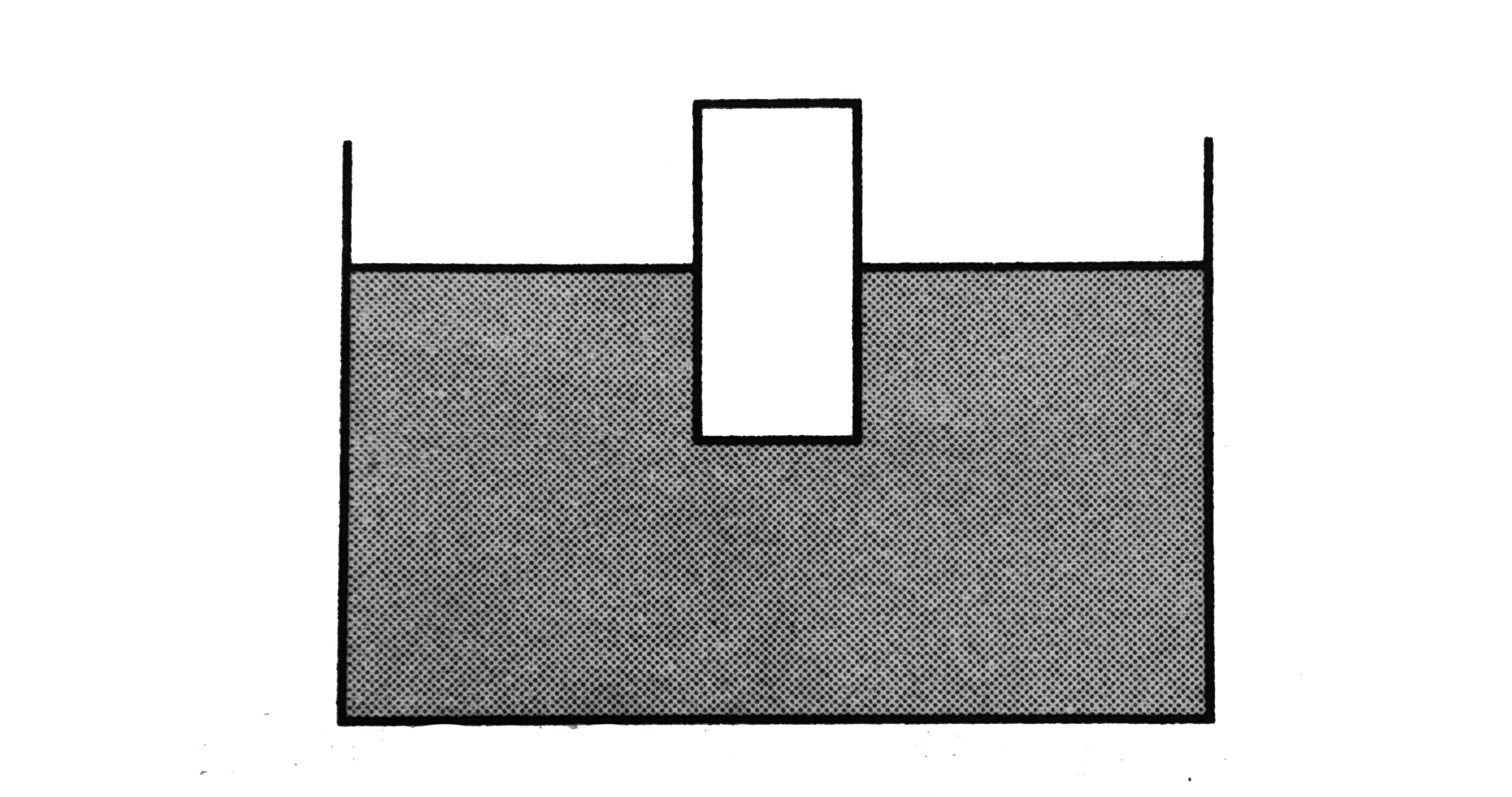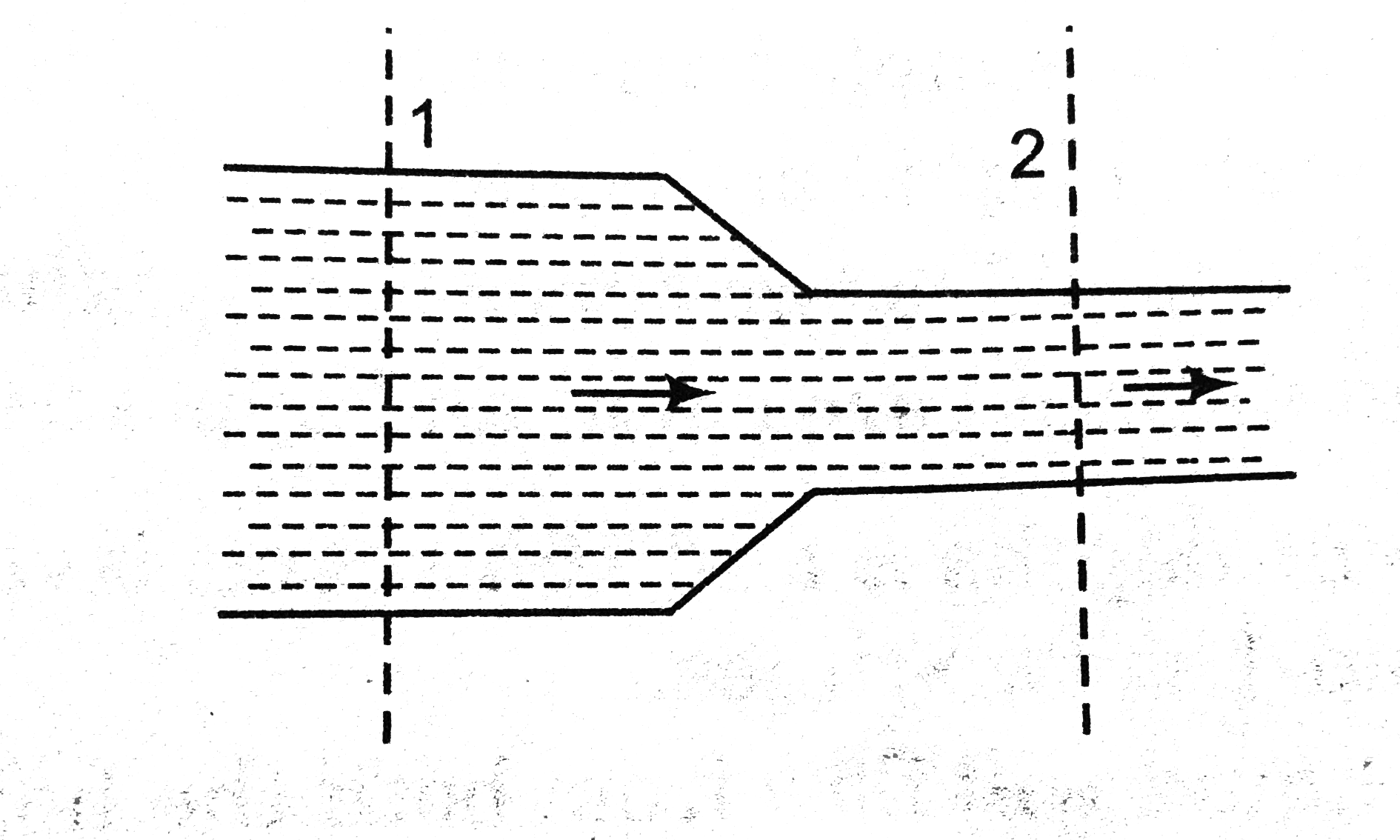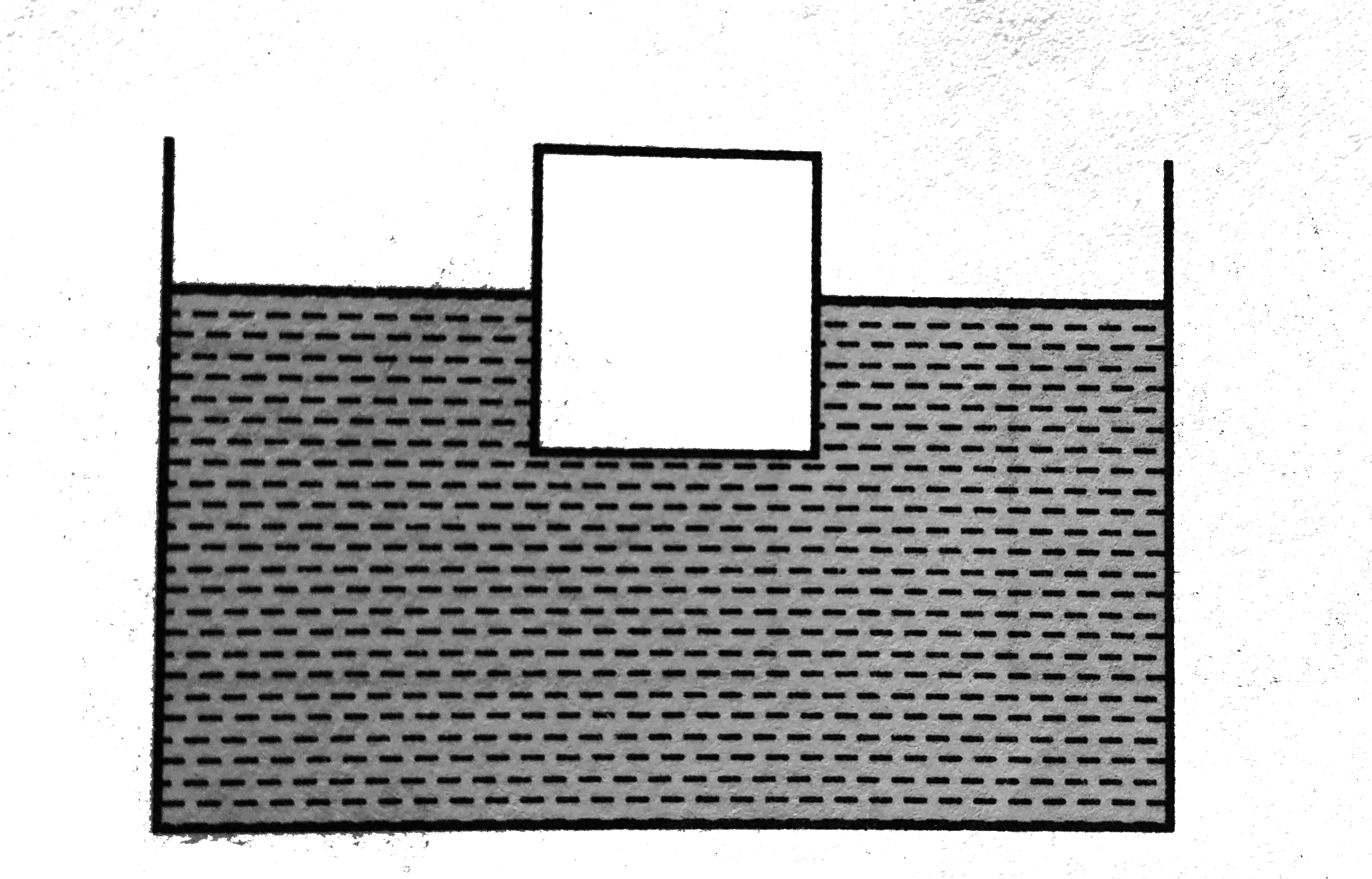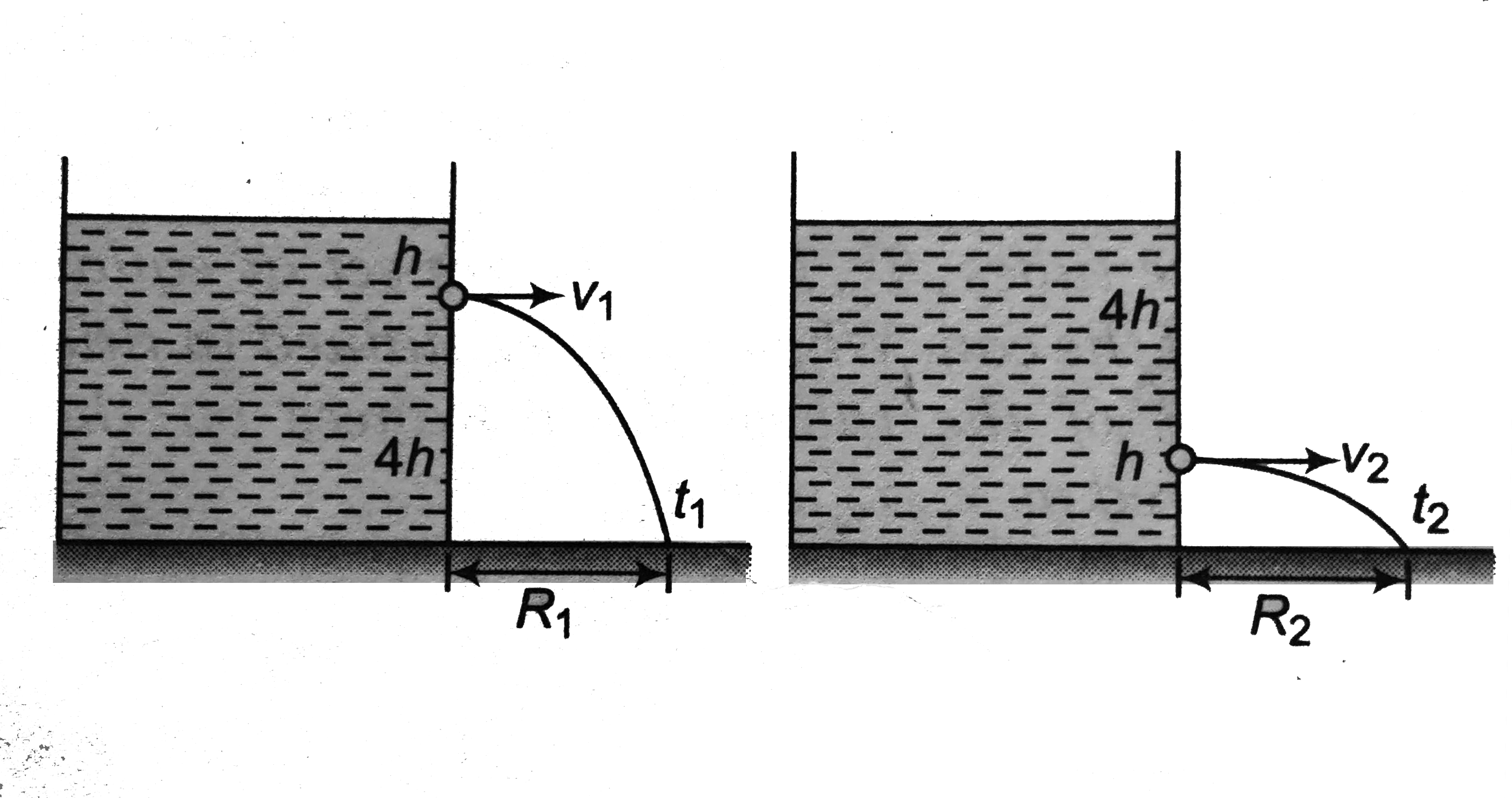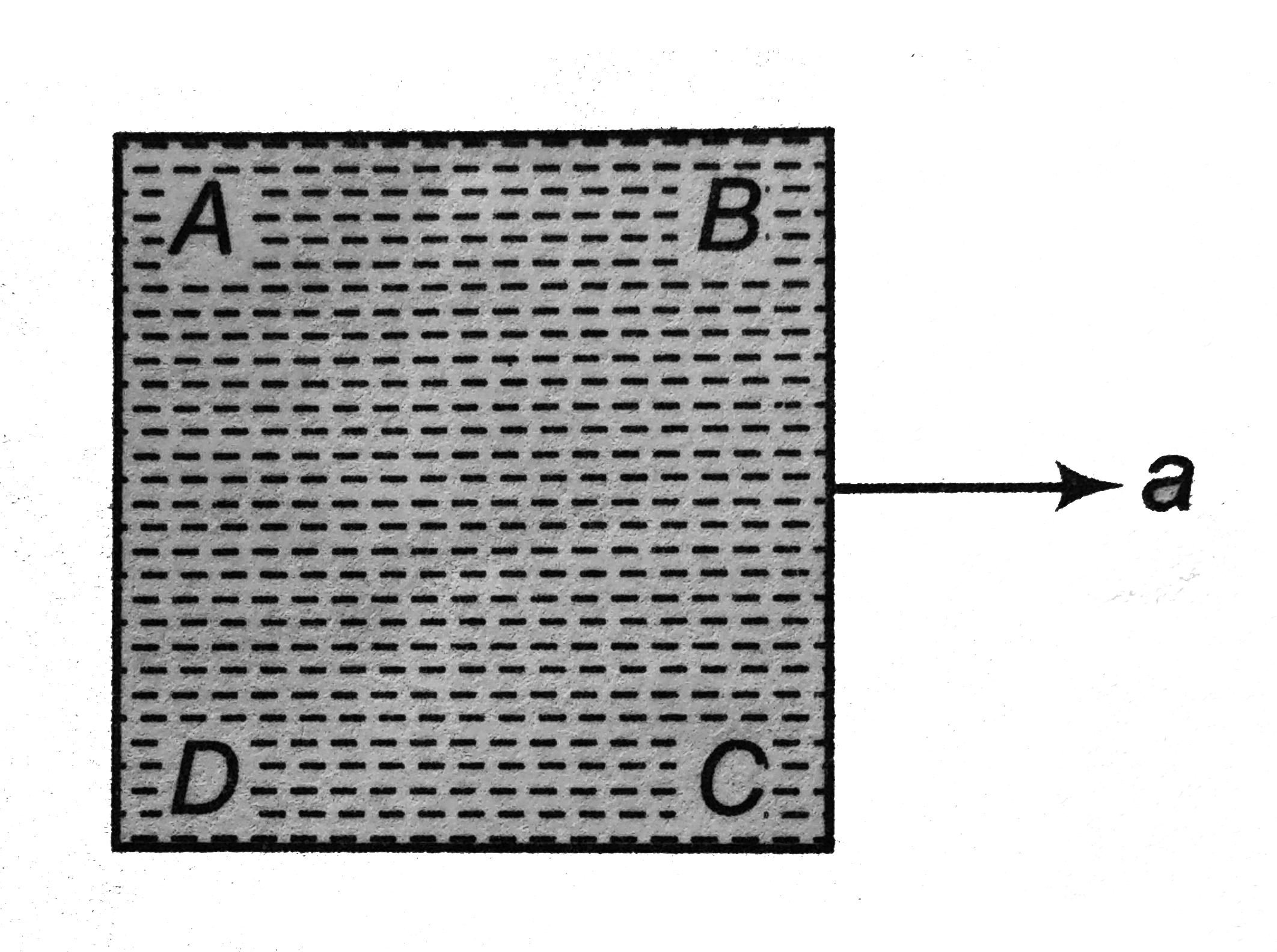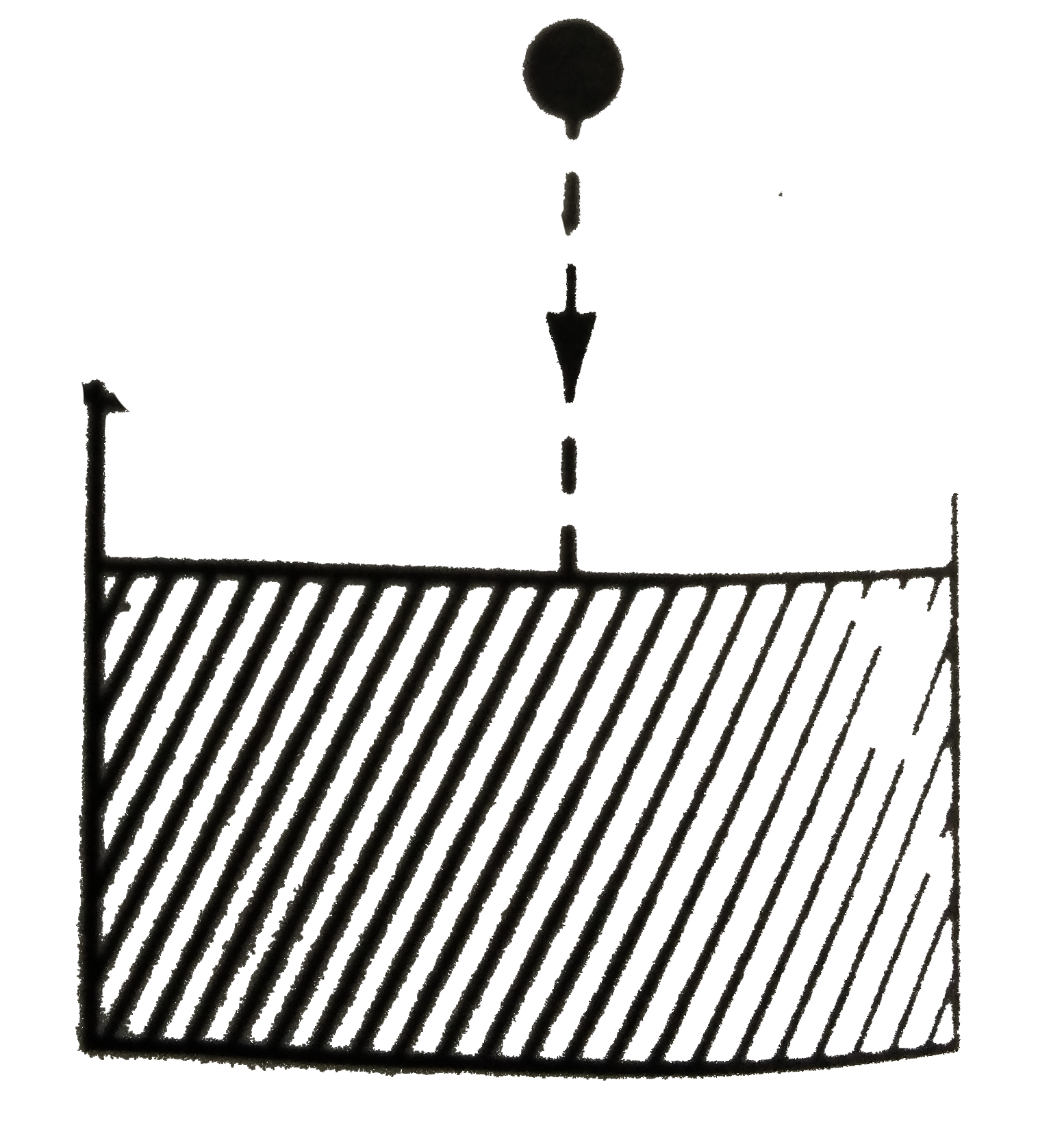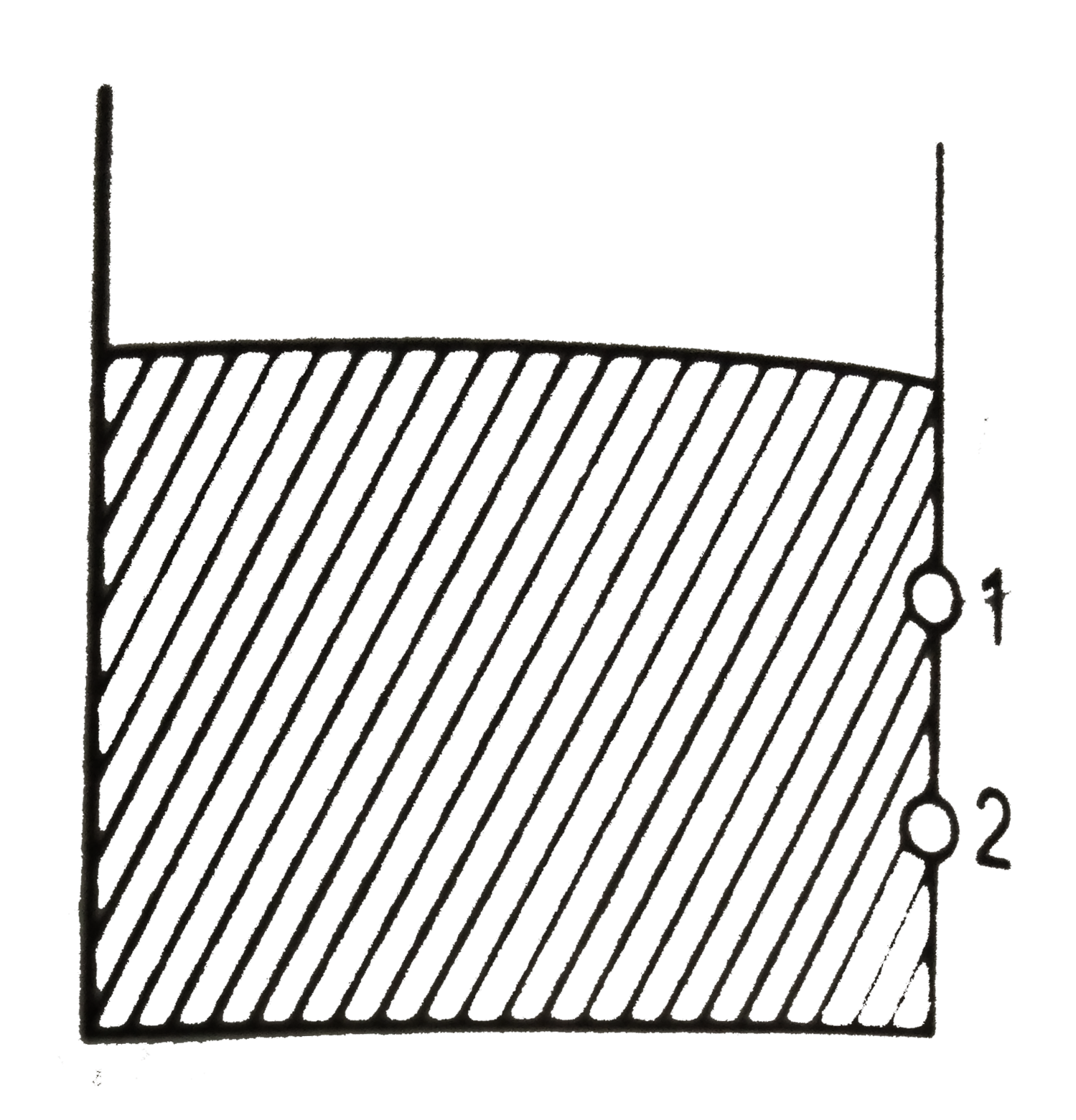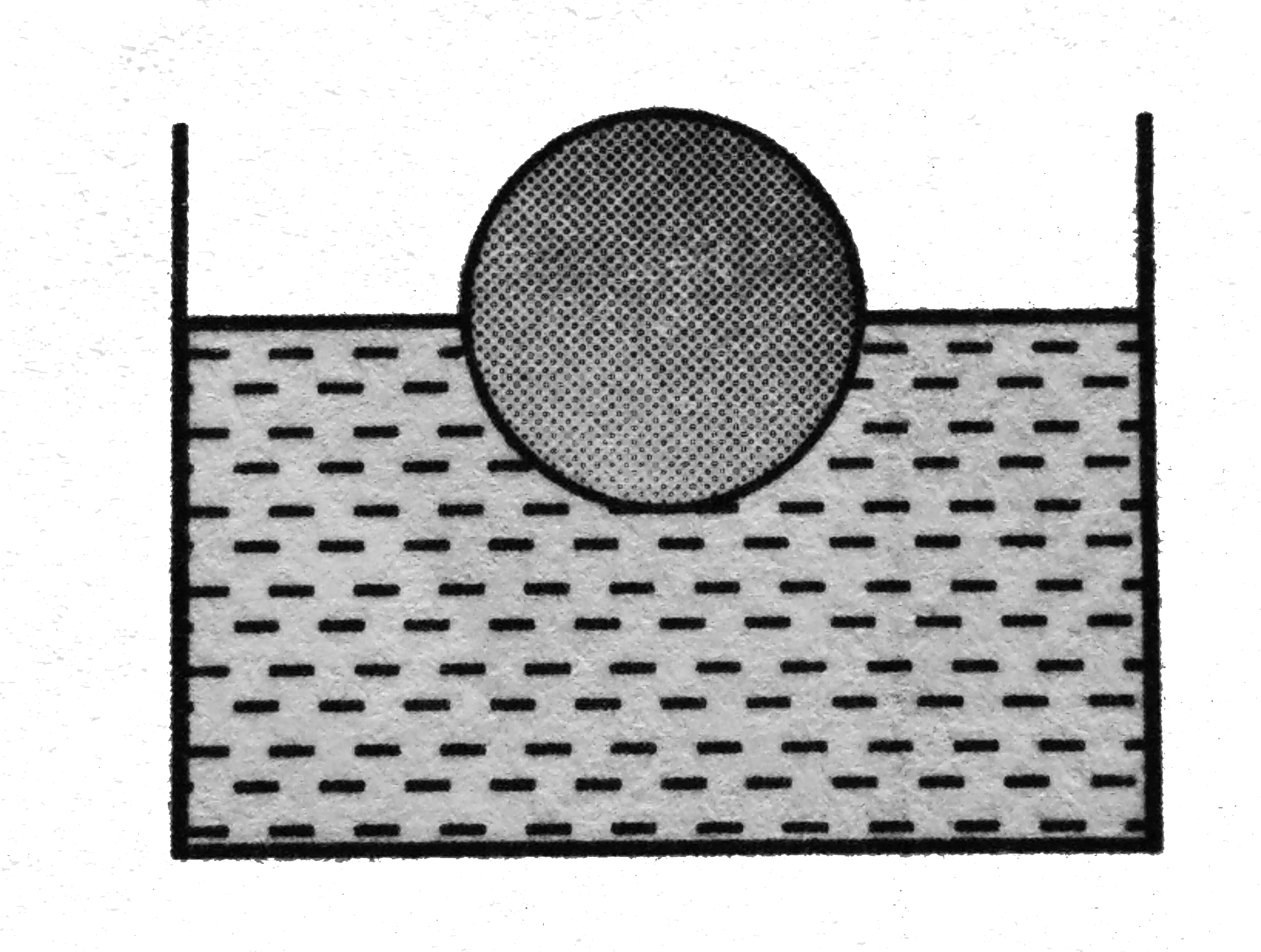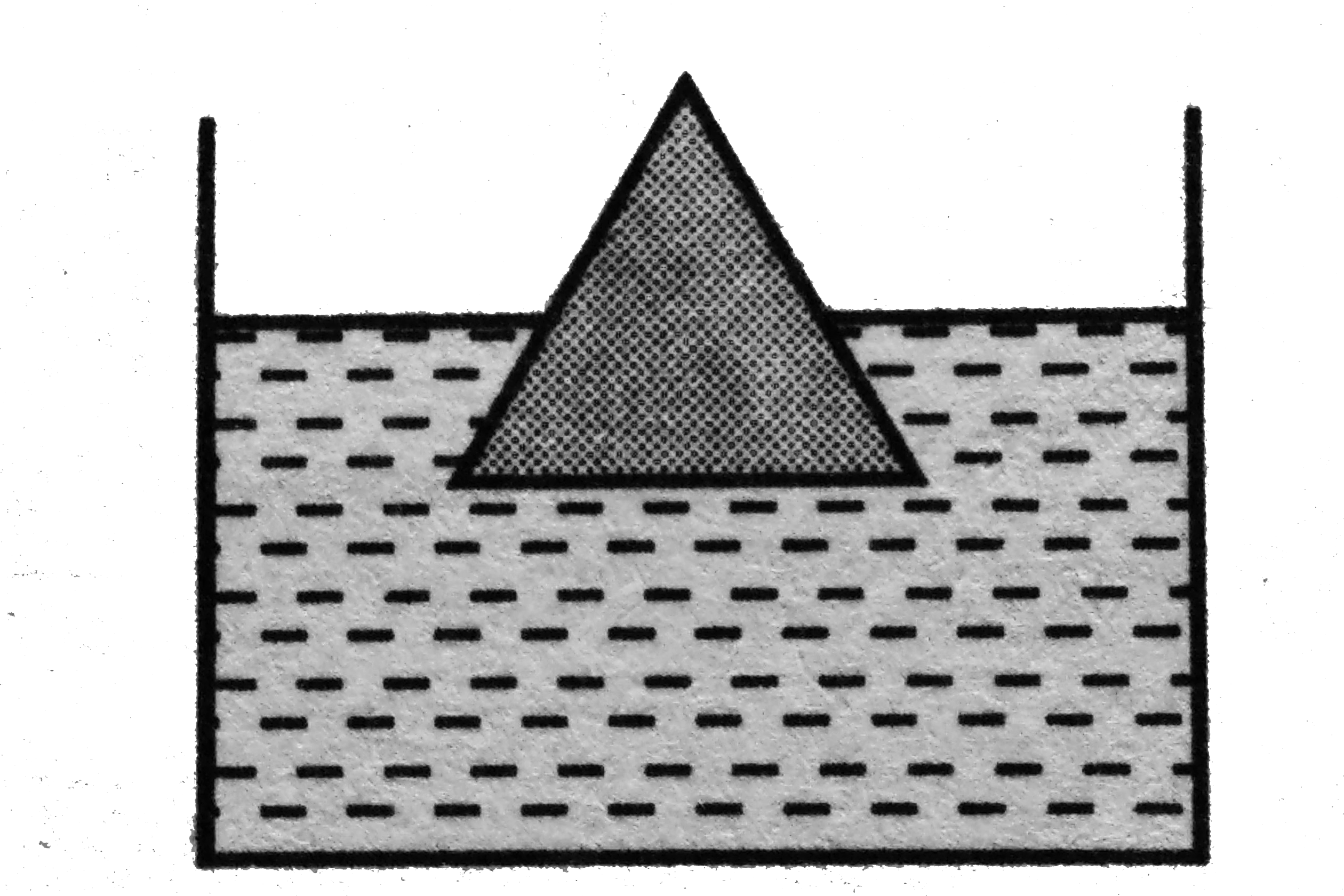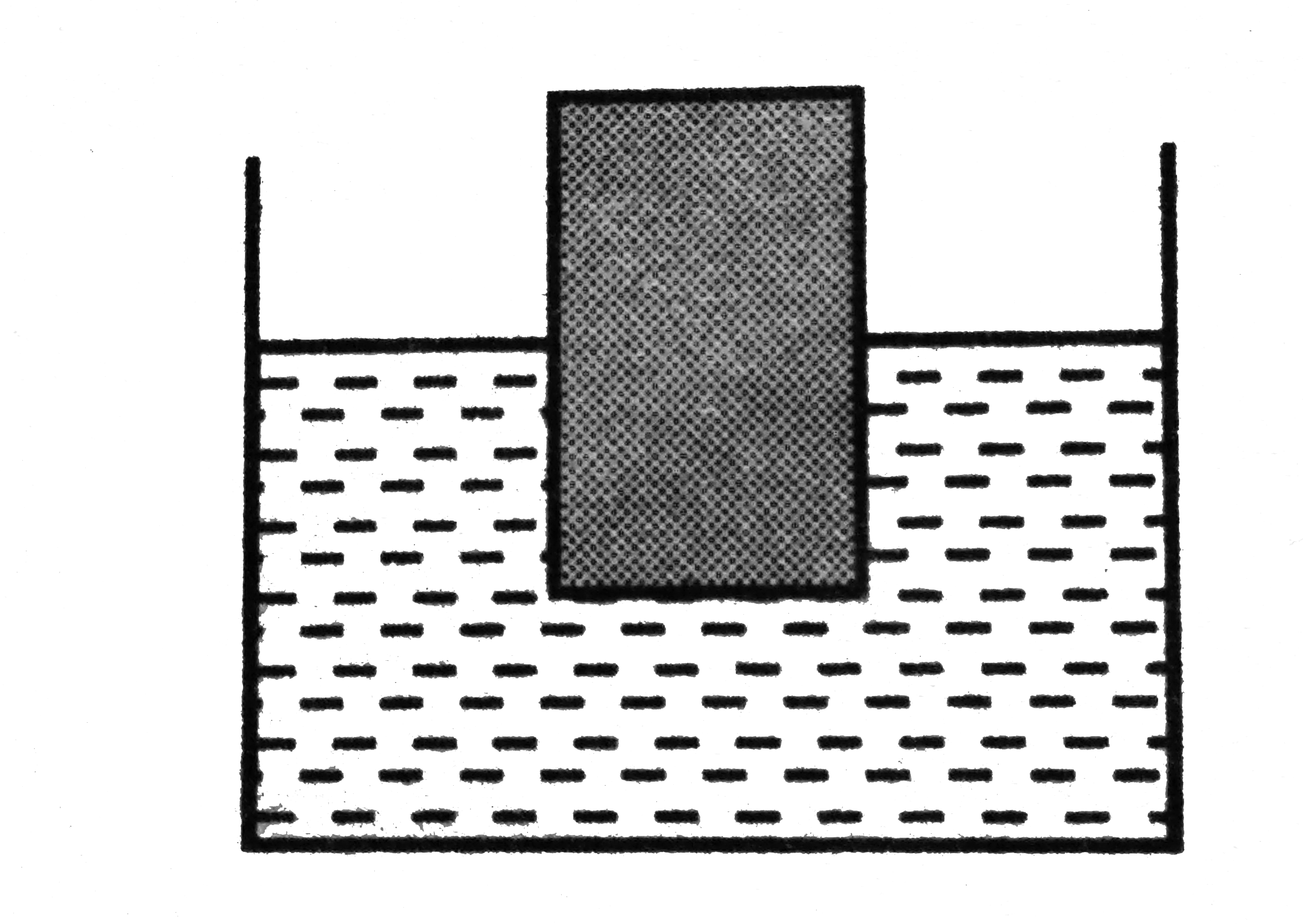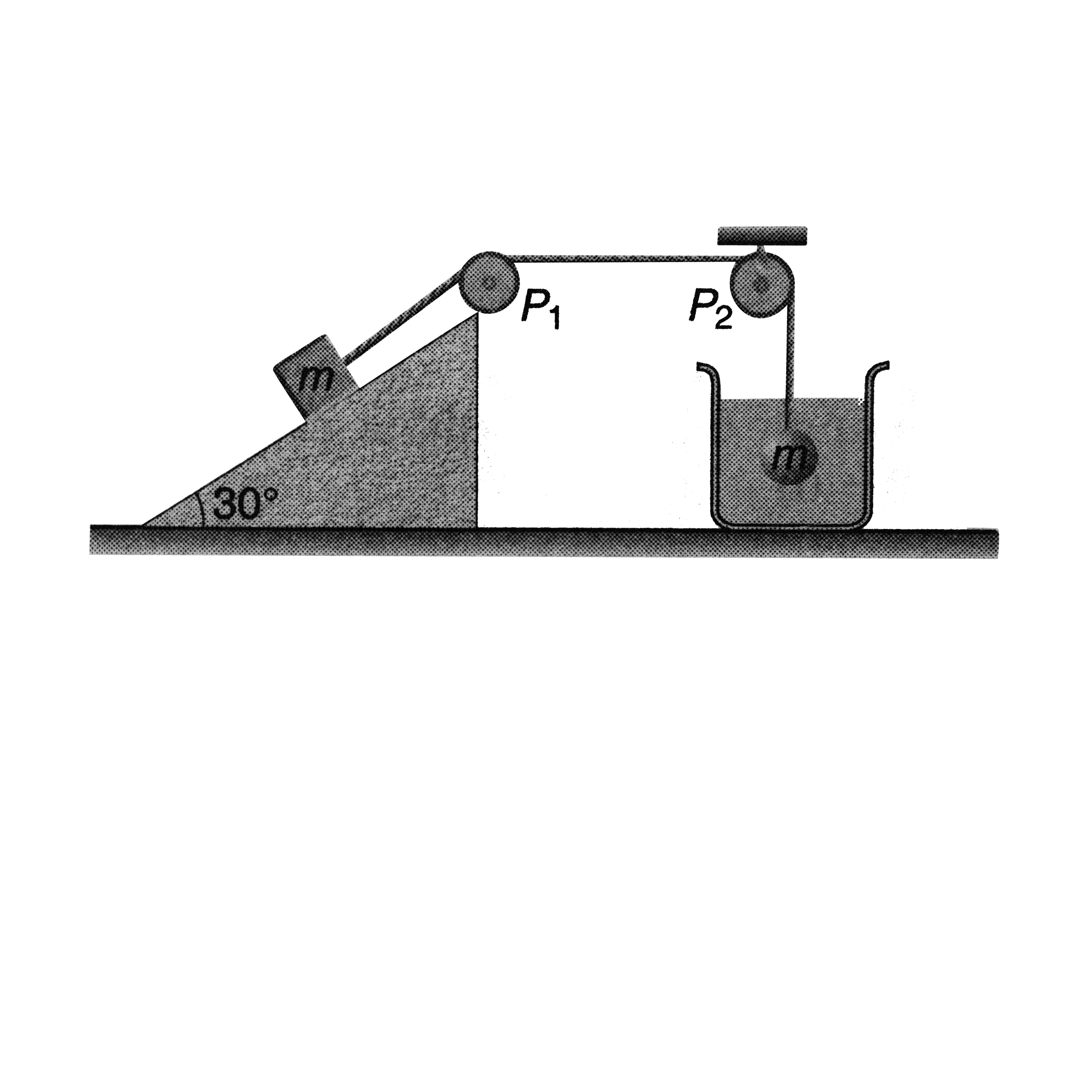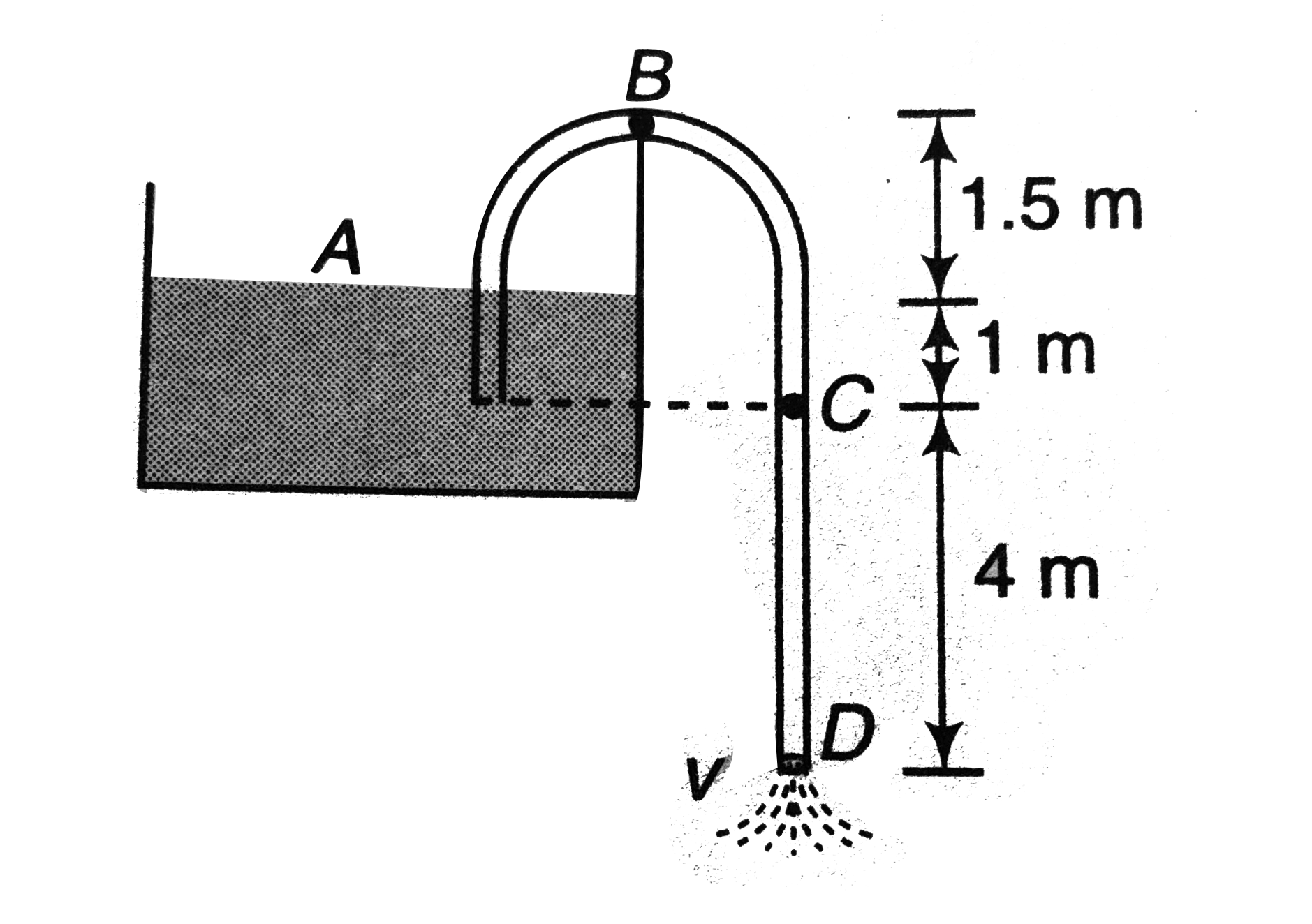Exercise16.6 from DC PANDEY ENGLISH FLUID MECHANICS for Class 11
| Class 11 | PHYSICS |
| Chapter | FLUID MECHANICS |
| DC PANDEY ENGLISH | Exercise16.6 |
| Medium | English |
| Academic Year | 2023-2024 |
Question 12
A beaker when partly filled with water has total mass 20.00g. If a piece of metal with density 3.00g/cm3 and volume 1.00cm3 is suspended by a thin string, so that it is submerged in the water but does not rest on the bottom of the beaker, how much dies the beaker then apper to weigh if it is resting on a scale?View SolutionQuestion 16
Water from a tap emerges vertically downwards with an initial spped of 1.0ms−1. The cross-sectional area of the tap is 10−4m2. Assume that the pressure is constant throughout the stream of water, and that the flow is steady. The cross-sectional area of the stream 0.15 m below the tap isView SolutionQuestion 17
A horizontal pipeline carries water in a streamline flow. At a point along the pipe, where the cross- sectional area is 10cm2, the water velocity is 1ms−1 and the pressure is 2000 Pa. The pressure of water at another point where the cross-sectional area is 5cm2, is........Pa. (Density of water =103kg.m−3)View SolutionQuestion 23
A large wooden plate of area 10m2 floating on the surface of river is made to move horizontally wilth a speed of 2ms−1 by applying a tangential force. If the river is 1m deep and the water contact with the bed is stationary, find the tangential force needed to keep the plate moving. Coefficient of viscosity of water at the temperature of the river =10−2poise.View SolutionQuestion 30
Water rises up in a glass capillary upto a height of 9.0cm, while mercury falls down by 3.4cm in the same capillary. Assume angles of contact for water glass and mercury glass 0∘ and 135∘ respectively. Determine the ratio of surface tension of mercury and water (cos135∘=−0.71).View SolutionQuestion 37
Assertion: Water is filled in a U-tube of different cross-sectional area on two sides as shown in figure. Now equal amount of oil (RD=0.5) is poured on two sides. Level of water on both sides will remain unchanged.
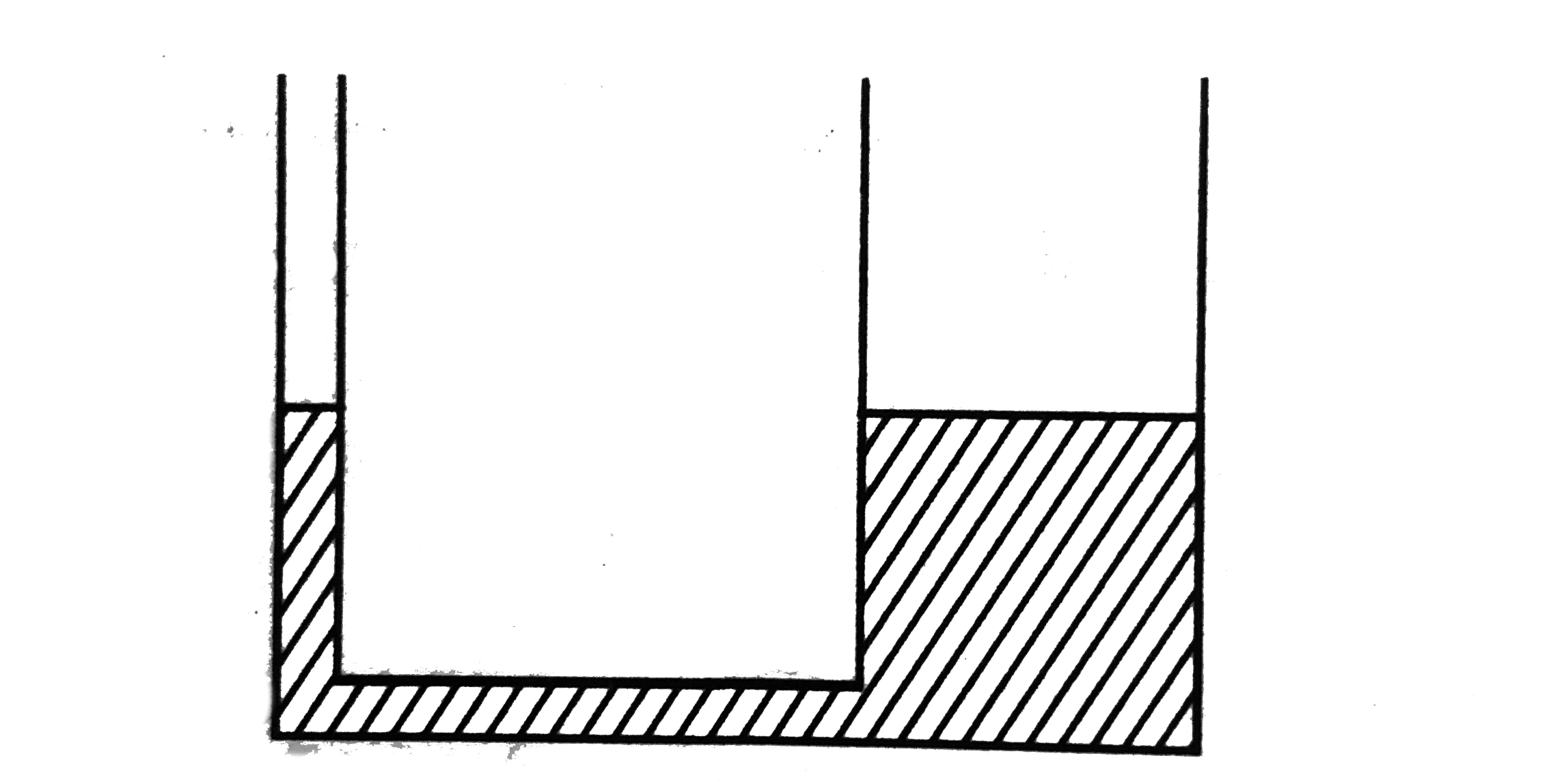
Reason: Same weight of oil poured on two sides will produce different pressures.
(A)Both Assertion and Reason are true and the Reason is correct explanation of the Assertion.
(B)Both Assertion and Reason are true but Reason is not the correct explanation of Assertion.
(C)Assertion is true, but the Reason is false.
(D)Assertion is false but the Reason is true.View SolutionQuestion 38
Assertion: An ideal fluid is flowing through a pipe. Speed of fluid particles is more at places where pressure is low.
Reason: Bernoulli's theoren can be derived from work-energy theorem.
(A)Both Assertion and Reason are true and the Reason is correct explanation of the Assertion.
(B)Both Assertion and Reason are true but Reason is not the correct explanation of Assertion.
(C)Assertion is true, but the Reason is false.
(D)Assertion is false but the Reason is true. View SolutionQuestion 68
For the arrangement shown in figure, initially the balance Aand B reads F1 and F2 respectively and F1>F2. Finally when the block is immersed in the liquid then the readings of balance A and B are f1 and f2 respectively. Indentify the statement which is not always (where, F is some force ) correct statement.
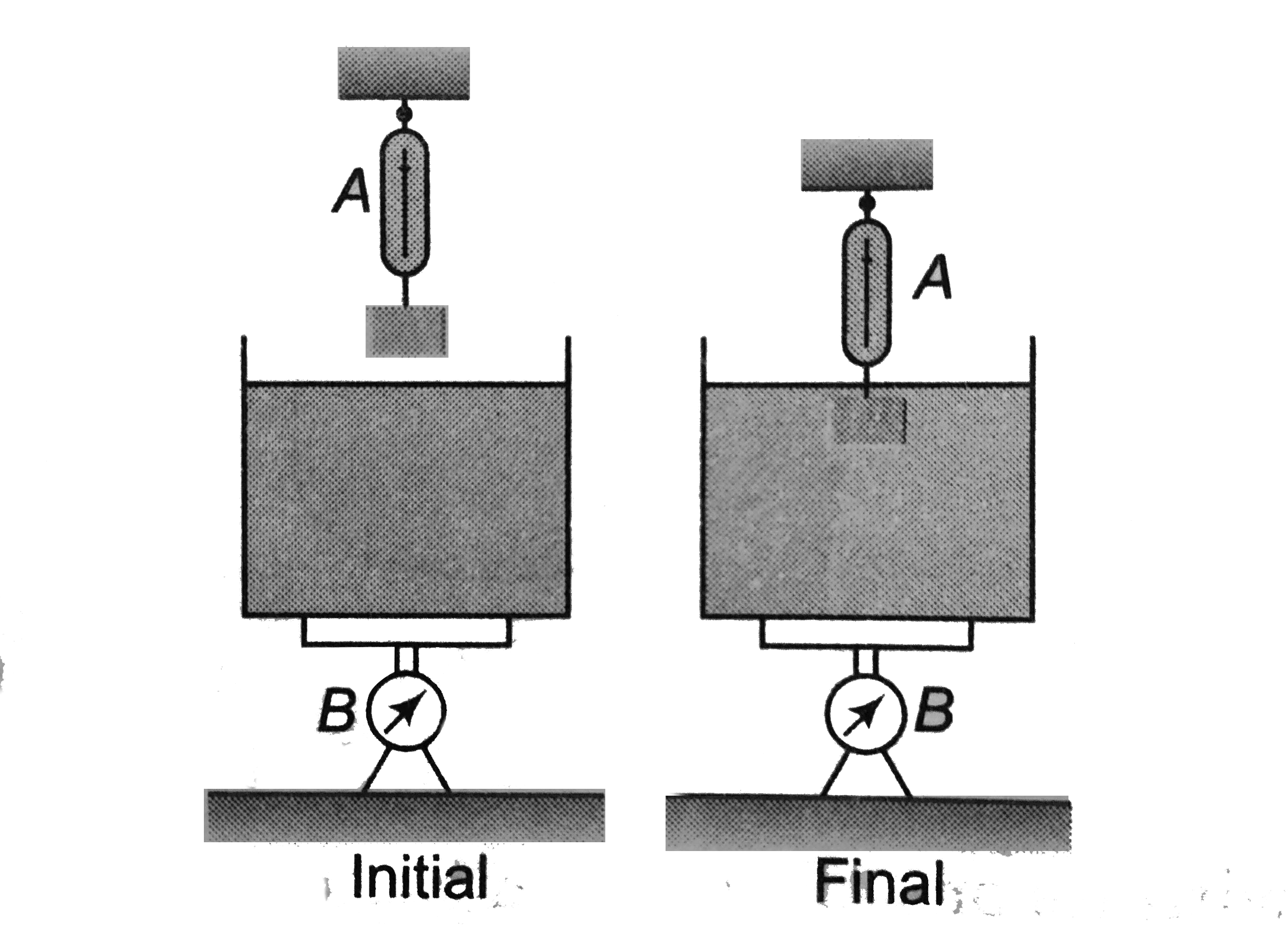 .View Solution
.View SolutionQuestion 79
Water rises to a height of 10cm in a capillary tube and mercury falls to a depth of 3.42cm in the same capillary tube. If the density of mercury is 13.6g/c.c. and the angles of contact for mercury and for water are 135∘ and 0∘, respectively, the ratio of surface tension for water and mercury isView SolutionQuestion 81
A cylindrical vessel open at the top is 20cm high and 10cm in diameter. A circular hole of cross-sectional area 1cm2 is cut at the centre of the bottom of the vessel. Water flows from a tube above it into the vessel at the rate of 102cm3/s. The height of water in the vessel under steady state is (Take g=10m/s2).View SolutionQuestion 87
A tube of fine bore AB is connected to a manomeer M as shown. The stop cock S controls the flow in air. AB is dipped into a liquid whosw surface tension is σ. On opening the stop cock for a while, a bubble is formed at B and the manometer level is recorded, showing a difference h in the levels in the two arms. If ρ be the density of manometer liquid and r the radius of curvature of the bubble, then the surface tension σ of the liquid is given by
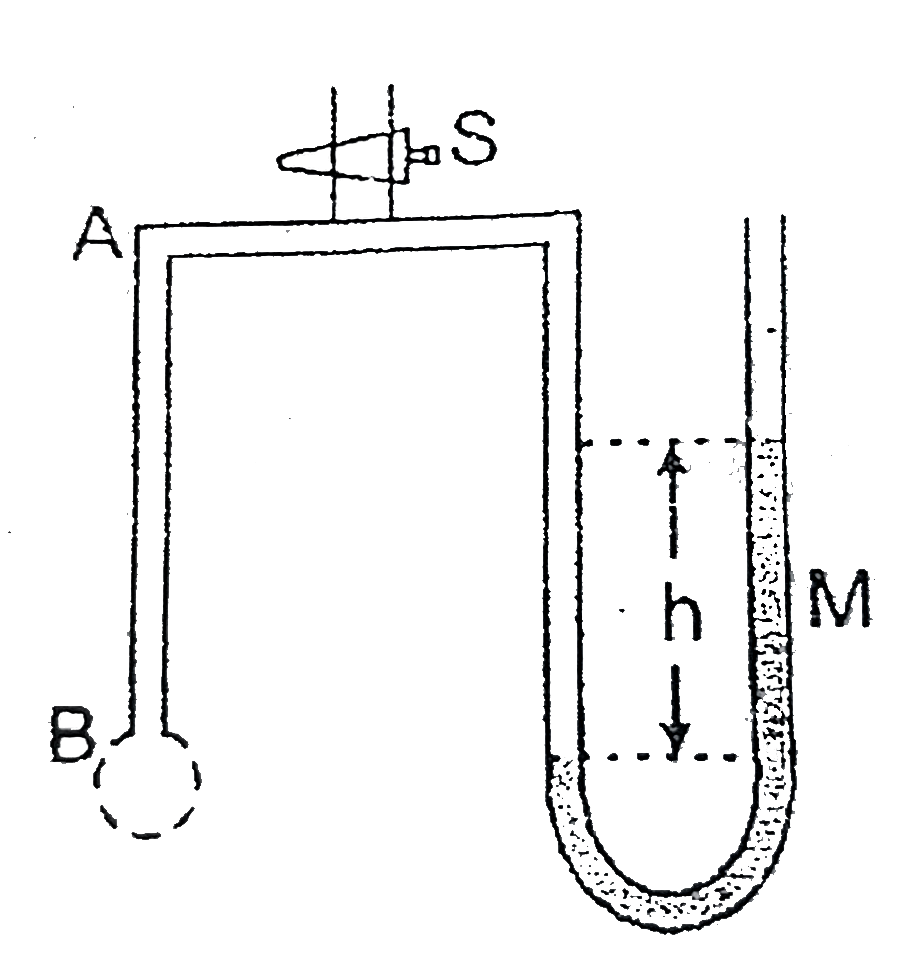 View Solution
View SolutionQuestion 90
A glass capillary tube (closed from tap) of inner diameter 0.28mm is lowered vertically into water in a vessel. The pressure in the capillary tube so that water level in the tube is same as that in the vessel is N/m2 is (surface tension of water =0.7N/m and atmospheric pressure =105N/m2.View SolutionQuestion 106
A u tube contains water and methylated spirit separated by mercury. The mercury columns in the two arms are at the same levels with 10 cm of water in one arm and 12.5 cm of spirit on the other arm as shown. If 15 cm of water and spirit each are further poured into the respective arms of the tube. Difference in the level of mercury in the two arms is (Take, relative density of mercury = 13.6, relative density of spirit=0.8)View SolutionQuestion 107
A manometer reads the pressure of a gas in a enclosure as shown in figure(a) When some of the gas is removed by a pump, the manometer reads as in (b). The liquid used in the manometers is mercury and the atmospheric pressure is 76cm of mercury.
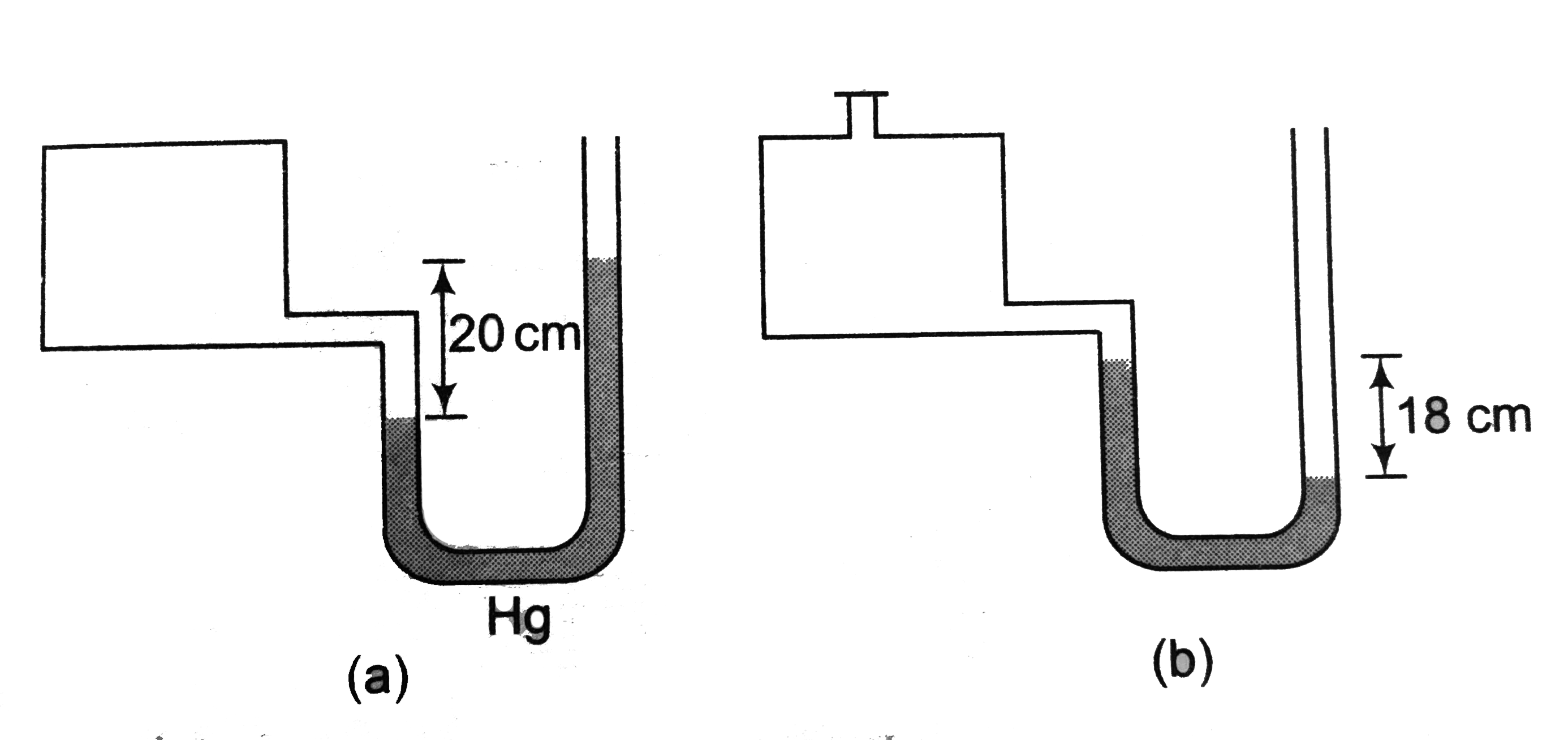
(i) Give the absolute and gauge pressure of the gas in the enclosure for cases (a) and (b) in units of cm of mercury .
(ii) How would the level change in case (b) if 13.6cm of water are poured into the right limb of the manometer?View SolutionQuestion 108
Water at 20∘ is flowing in a pipe of radius 20.0cm . The viscosity of water at 20∘C is 1.005 centipise. If the water's speed in the centre of the pipe is 3.00m/s, what is water's speed:
(a) 10.0cm from the centre of the pipe(half way between the centre and the walls)
(b) at the wall of the pipe?View SolutionQuestion 109
Water at 20∘C is flowing in a horizontal pipe that is 20.0m long.The flow is laminar and the water completely fills the pipe. A pump maintains a gauge pressure of 1400Pa, at a large tank at one end of the pipe. The other end of the pipe is open to the air, The viscosity of water at 20∘C is 1.005 poise
(a) If the pipe has diameter 8.0cm, what is the volume flow rate?
(b) What gauge pressure must the pump provide to achieve the same volume flow rate for a pipe with a diameter of 4.0cm?
(c) For pipe in part (a) and the same gauge pressure maintained by the pump, what does the volume flow rate become if the water is at a temperature of 60∘C (the viscosity of water at 60∘C is 0.469 poise?View SolutionQuestion 112
A uniform rod AB, 4m long and weighing 12 kg, is supported at end A, with a 6 kg lead weight at B. The rod floats as shown in figure with one-half of its length submerged. The buoyant force on the lead mass is negligible as it is of negligible volume. Find the tension in the cord and the total volume of the rod
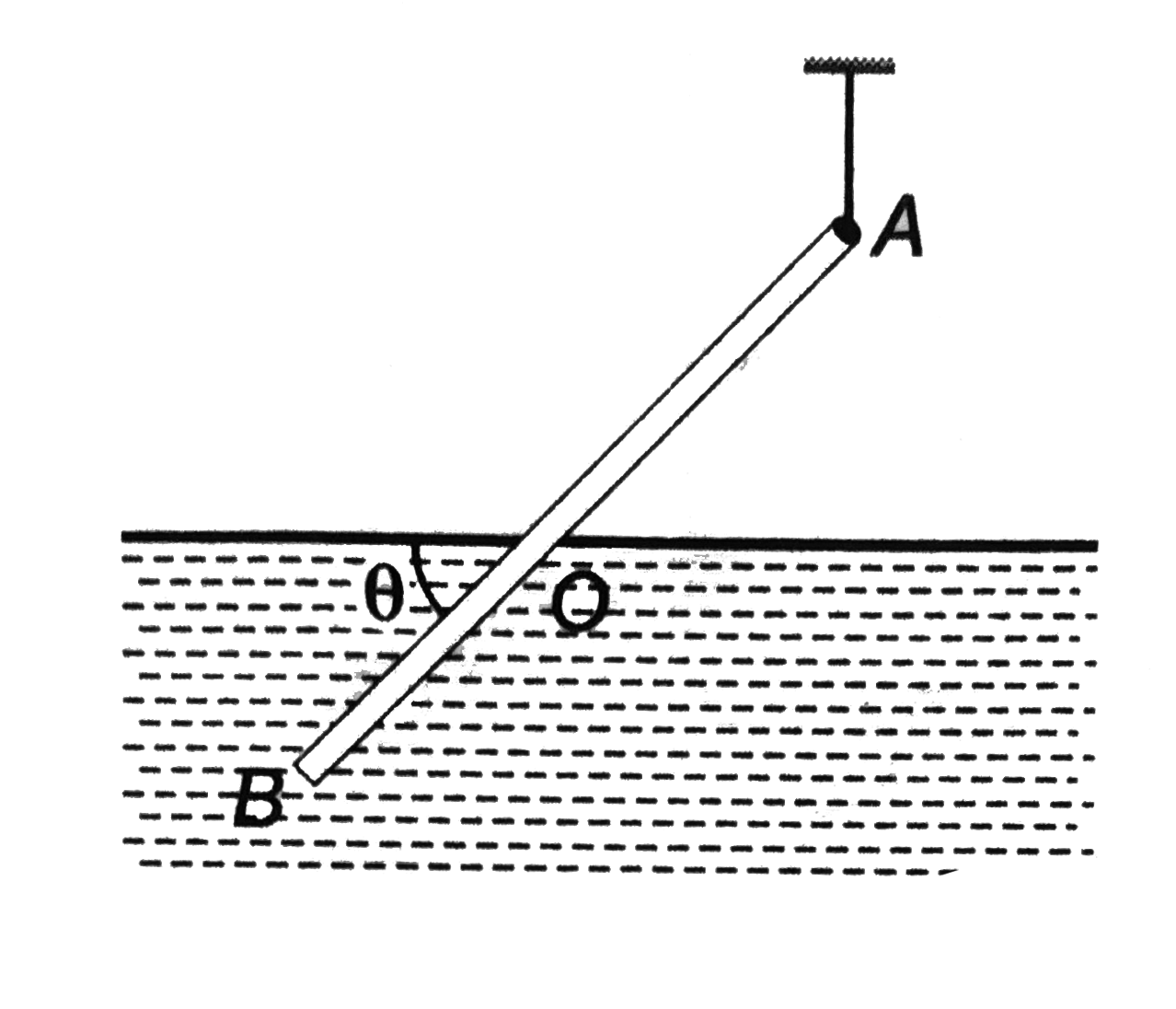 View Solution
View SolutionQuestion 113
A solid sphere of mass m=2kg and density ρ=500kg/m3 is held stationary relative to a tank filled with water. The tank is acceerating upward with acceleration 2m/s2. Calculate
(a) Tension in the thread connected between the sphere and the bottom of the tank.
(b) If the thread snaps, calculate the acceleration of sphere with respect to the tank. (Density of water=1000kg/m3,g=10m/s2)
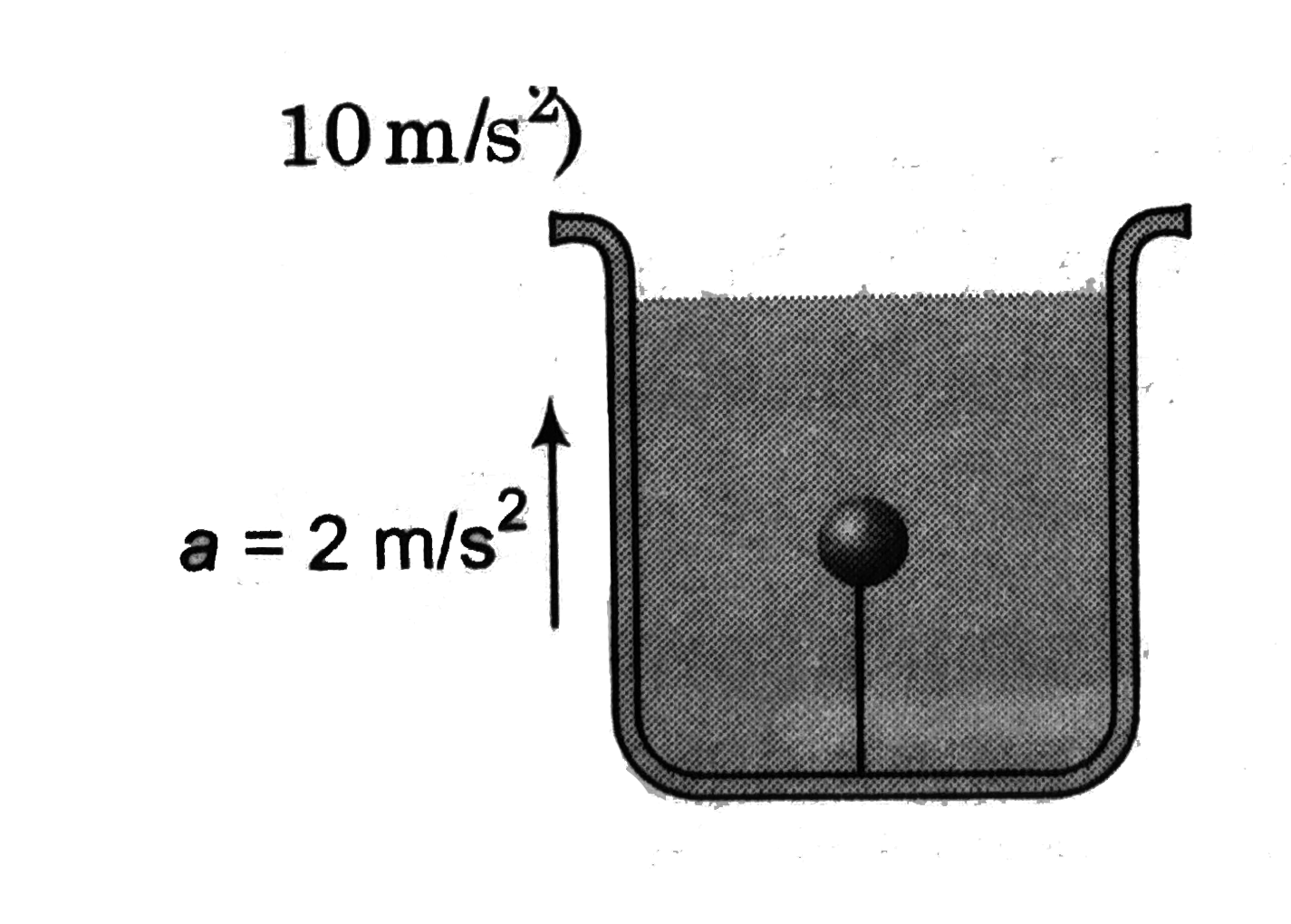 View Solution
View SolutionQuestion 114
The pressure gauge shown in figure has a spring for which k=60N/m and the area of the piston is 0.50cm2. Its right end is connected to a closed container of gas at a gauge pressure of 30kPa. How far will the spring be compressed if the region containing the spring is (a) in vacuum and (b) open to the atmosphere? Atmospheric pressure is 101kPa.
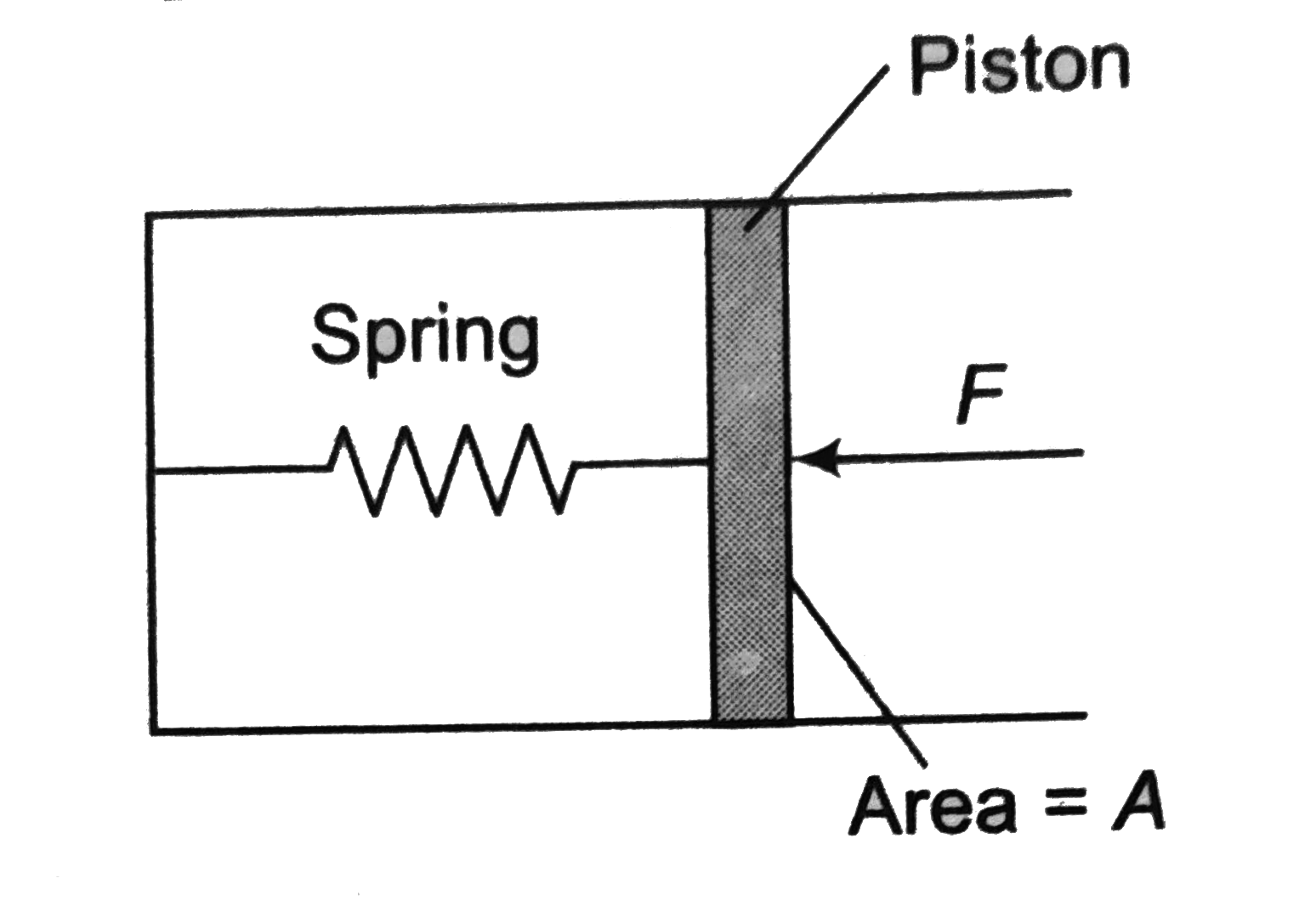 View Solution
View SolutionQuestion 115
Water stands at a depth h behind the vertical face of a dam. It exerts a resultant horizontal force on the dam tendibg to slide it along its foundation and a torque tending to overturn the dam about the point O. Find
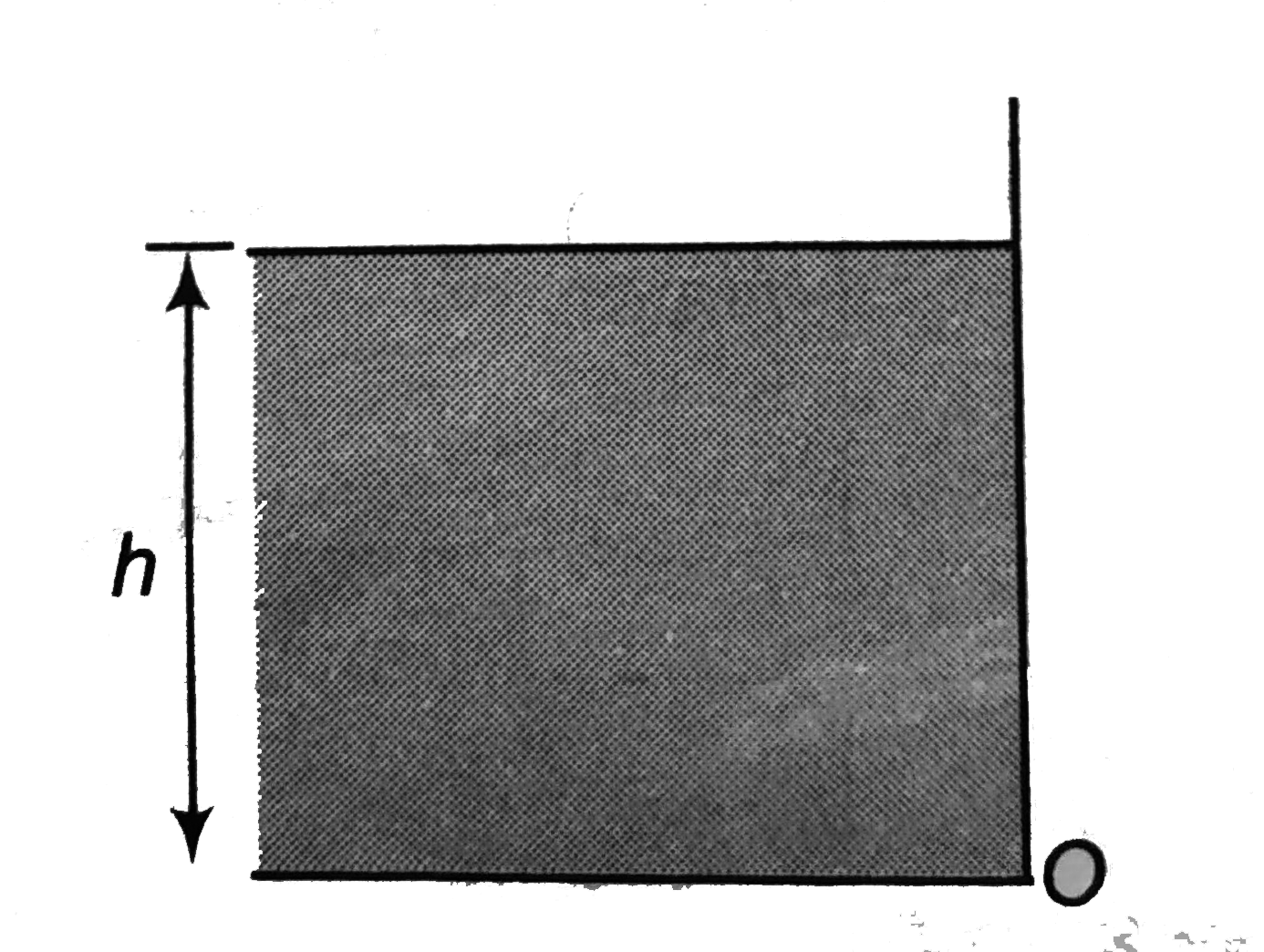
(a) Horizontal force,(b) torque about O, (c ) the height at which the resultant force would have to act to produce the same torque,l=cross-sectional length and ρ=density of water.View SolutionQuestion 116
Mercury is poured into a U-tube in which the cross-sectional area of the left-hand limb is three times smaller than that of the right one. The level of the mercury in the narrow limb is a distandce l=30cm from the upper end of the tube. How much will the mercury level rise in the right-hand limb if the left one is filled to the top with water?View SolutionQuestion 118
A pump is designed as a horizontal cylinder with a piston of area A and and outlet orifice of area a arranged near the cylinder axis. Find the velocity of out flow of the liquid from the pump if the piston moves with a constant velocity under the action of a constant force F. The density of the liquid is ρ.View SolutionQuestion 120
A area of cross section of a large tank is 0.5m2. It has an opening near the bottom having area of cross section 1cm2. A load of 20 kg is applied on the water at the top. Find the velocity of the water coming out of the opening at the time when the height of water level is 50 cm above the bottom. Take g=10ms−2View SolutionQuestion 122
A glass capillary sealed at the upper end is of length 0.11m and internal diameter 2×105m. The tube is immersed vertically into a liquid of surface tension 5.06×10−2N/m. To what length the capillary has to be immersed so that the liquid level inside and outside the capillary becomes the same. What will happen to water level inside the capillary if the seal is now broken?View SolutionQuestion 126
A glass U-tube is such that the diameter of one limb is 3.0mm and that of the other is 6.0mm. The tube is inverted vertically with the open ends below the surface of water in a beaker. What is the difference between the height to which water rises in the two limbs? Surface tension of water is 0.07Nm−1. Assume that the angle of contact between water and glass is 0∘.View SolutionQuestion 127
A minute spherical air bubble is rising slowly through a column of mercury contained in a deep jar. If the radius of the bubble at a depth of 100cm is0.1mm,Calculate its depth where its radius is 0.126mm, given that the surface tension of mercury is 567dy≠/cm. Assume that the atmosphere pressure is 76cm of mercury.View SolutionQuestion 131
_S01_054_Q01.png)
An open vessel full of water is falling freely under gravity. There is a small hole in one face of the vessel, was shown in te figure. The water which comes out from the hole at the instant when hole is at height H above the ground strikes the ground at a distance of x from P. Which of the followin is correct for the situation described?
(a). The value of x is 2√2hH3
(b). The value of x is √4hH3
(c). The value ofx can't be computed from information providec.
(d). The question is irrevalent as no water comes out from the hole.View SolutionQuestion 132
A uniform rod AB, 4m long and weighing 12 kg, is supported at end A, with a 6 kg lead weight at B. The rod floats as shown in figure with one-half of its length submerged. The buoyant force on the lead mass is negligible as it is of negligible volume. Find the tension in the cord and the total volume of the rod
 View Solution
View SolutionQuestion 133
A water hose pipe of cross-sectional area 5cm2 is used to fill a tank of 120L. It has been observed that it takes 2 min to fill the tank. Now, a nozzel with an opening of cross-sectional area 1cm2 is attached to the hose. The nozzel is held so that water is projected horizontally from a point 1m above the ground. The horizontal distance over which the water can be projected is (Take g=10m/s2).View SolutionQuestion 136
A liquid stands at the plane level in the U-tube when at rest. If areas of cross-section of both the limbs are equal, what will be the difference in height h of the two limbs of U-tube, when the system is given an acceleration a in horizontal direction towards right as shown?
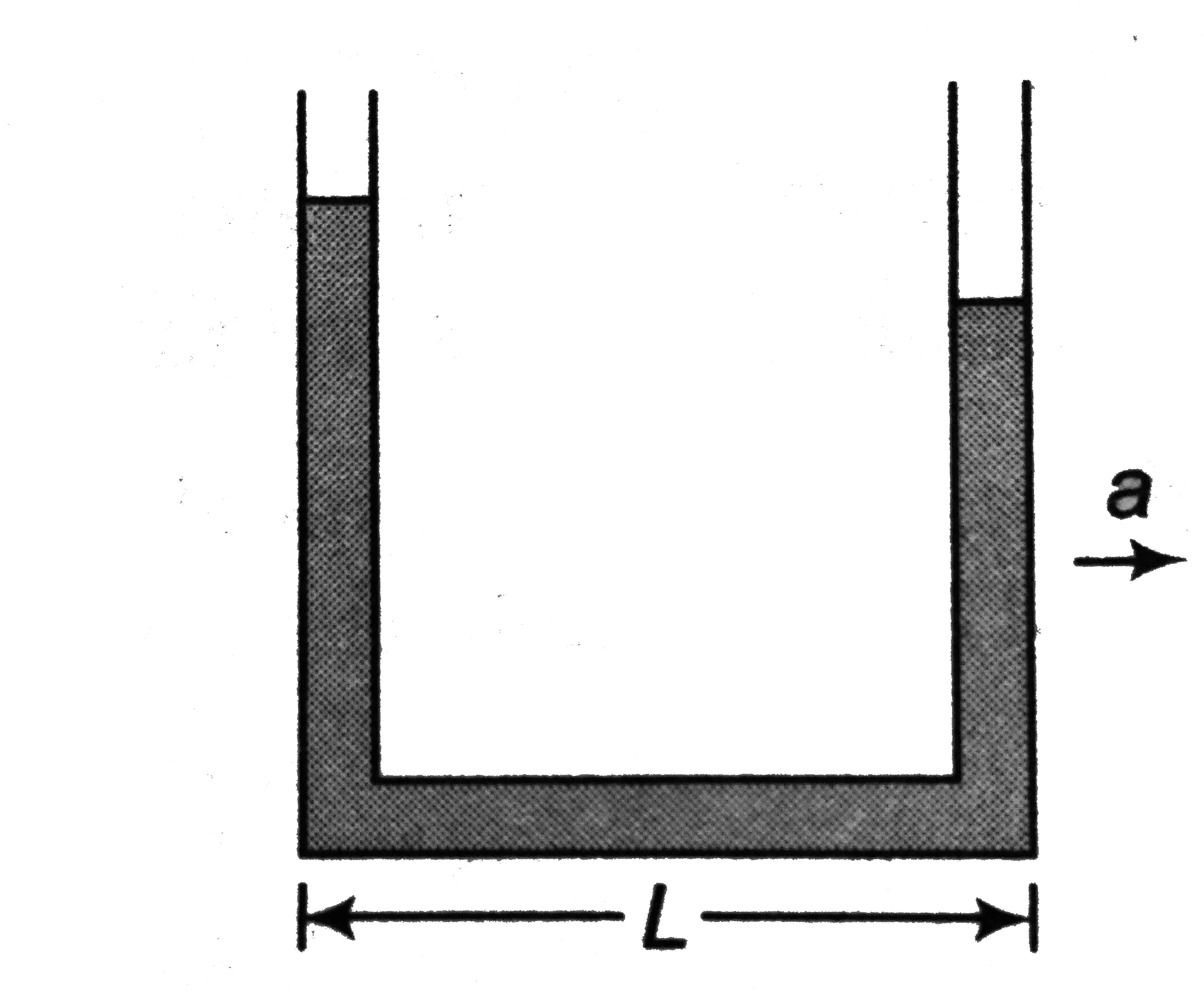 View Solution
View SolutionQuestion 137
A liquid of density ρ and surface tension σ rises in a capillary tube of inner raduis R. The angle of contact between the liquid and the glass is θ. The point A lies just below the maniscus in the tube and the point B lies at the outside level of liquid in the beaker as shown in figure. The pressure at A is
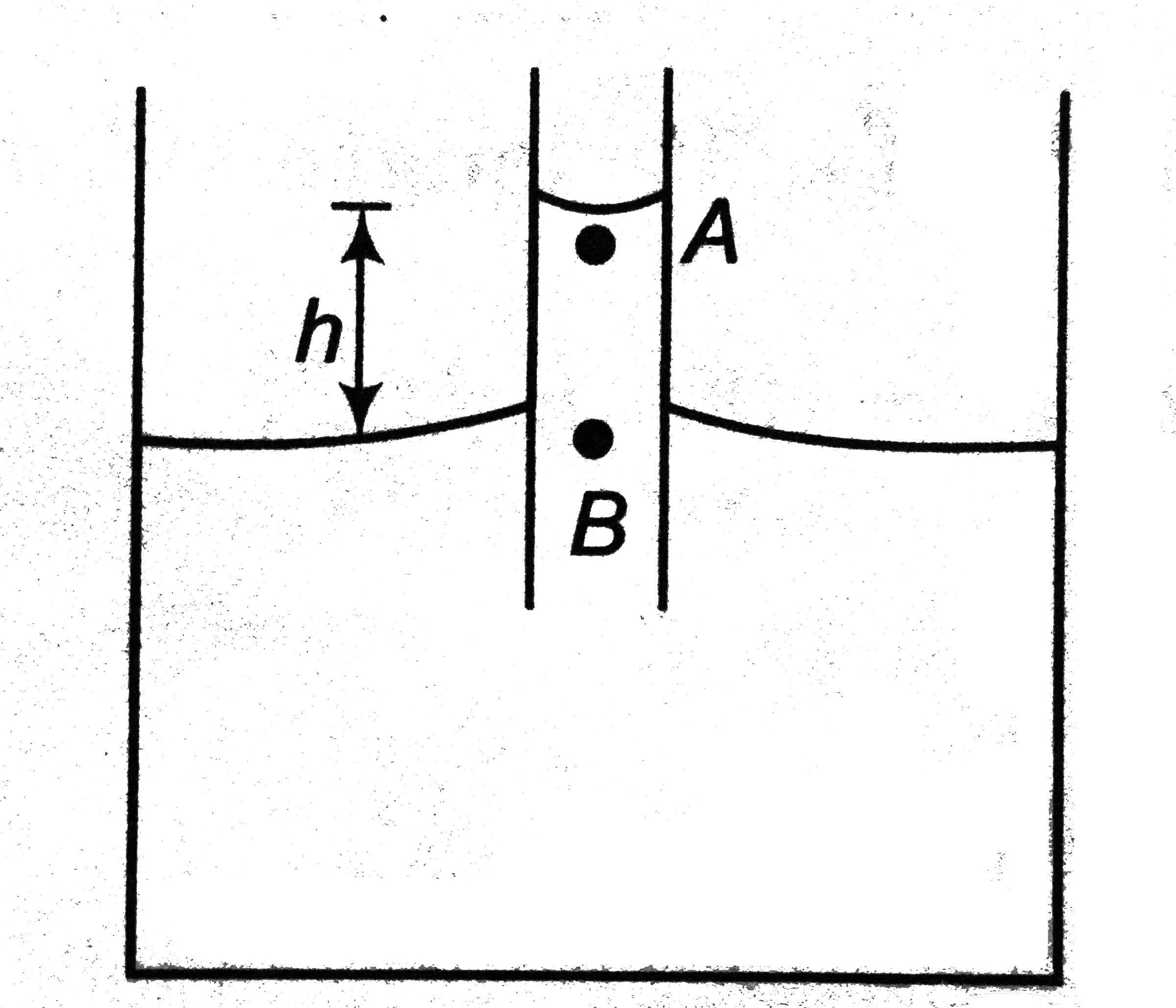 View Solution
View SolutionQuestion 138
A large open tank has two holes in the wall. One is a square hole of side L at a depth y from the top and the other is a circular hole of radius R at a depth 4y from the top. When the tank is completely filled with water, the quantities of water flowing out per second from both holes are the same. Then, R is equal to View SolutionQuestion 139
Two identical cylindrical vessels with their bases at the same level each, contain a liquid of density ρ. The area of either base is A but in one vessel the liquid heigth is h1 and in the other liquid height is h2(h2<h1). If the two vessel are connected, the work done by gravity in equalizing the level is View SolutionQuestion 146
A thin uniform circular tube is kept in a vertical plane. Equal volume of two immiscible liquids whose densites are ρ1 and ρ2 fill half of the tube as shown. In equilibrium the radius passing through the interface makes an angle of 30∘ with vertical. The ratio of densities (ρ1/ρ2) is equal to
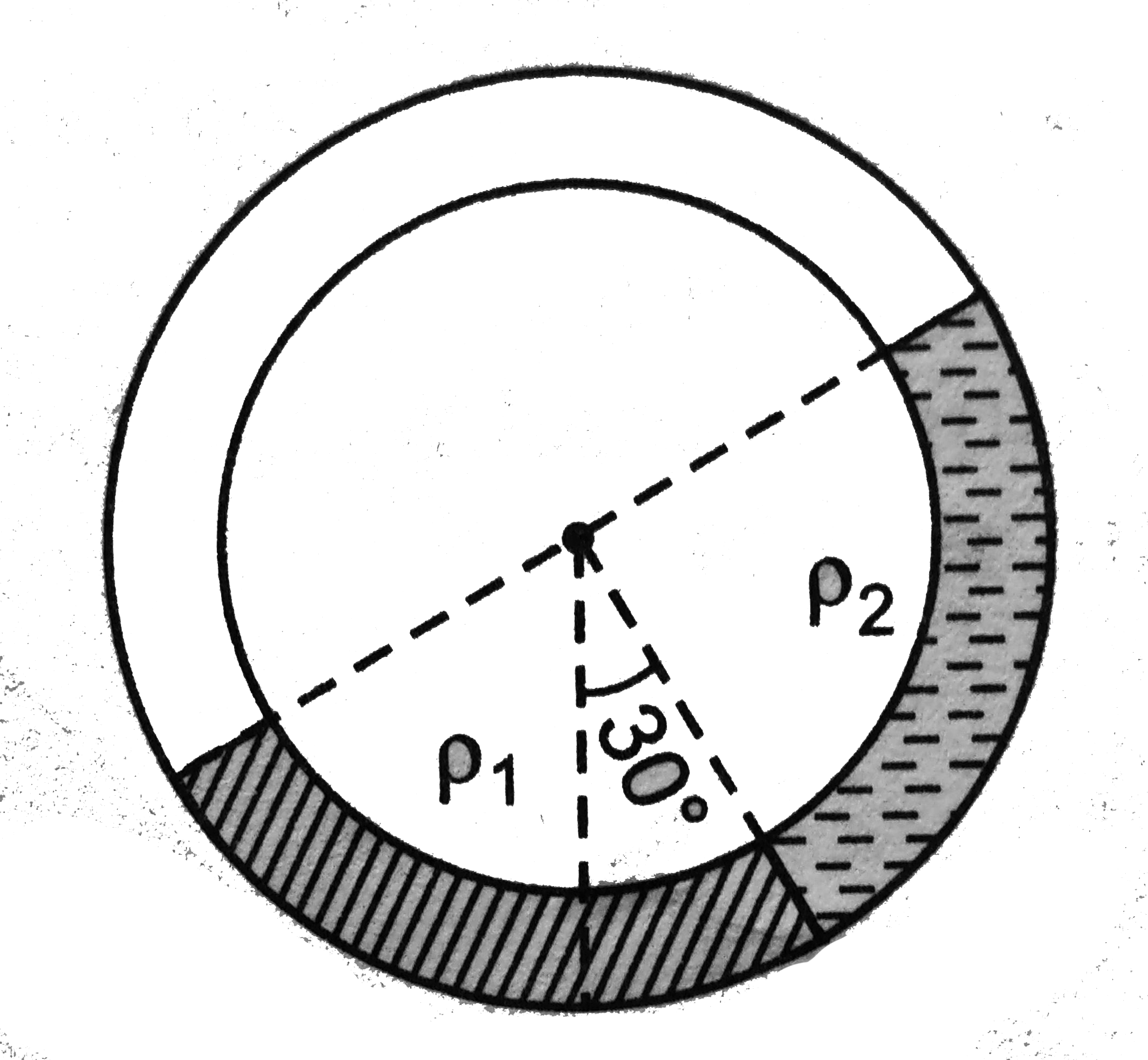 View Solution
View SolutionQuestion 147
A plate moves normally with the speed v1 towads a horizontal jet of uniform area of cross-section. The jet discharge water at the rate of volume V per second at a speed of v2. The density of water is ρ. Assume that water splashes along the surface of the plate ar right angles to the original motion. The magnitude of the force action on the plate due to the jet of water is View SolutionQuestion 148
A spherical ball of density ρ and radius0.003m is dropped into a tube containing a viscous fluid up to the 0 cm mark as shown in the figure. Viscosity of the fluid =1.26N−s/m2 and its density ρL=ρ2=1260kg/m3. Assume that the ball reaches a terminal speed at 10cm mark. The time taken by the ball to travel the distance between the 10cm and 20cm mark is (g=10m/s2)
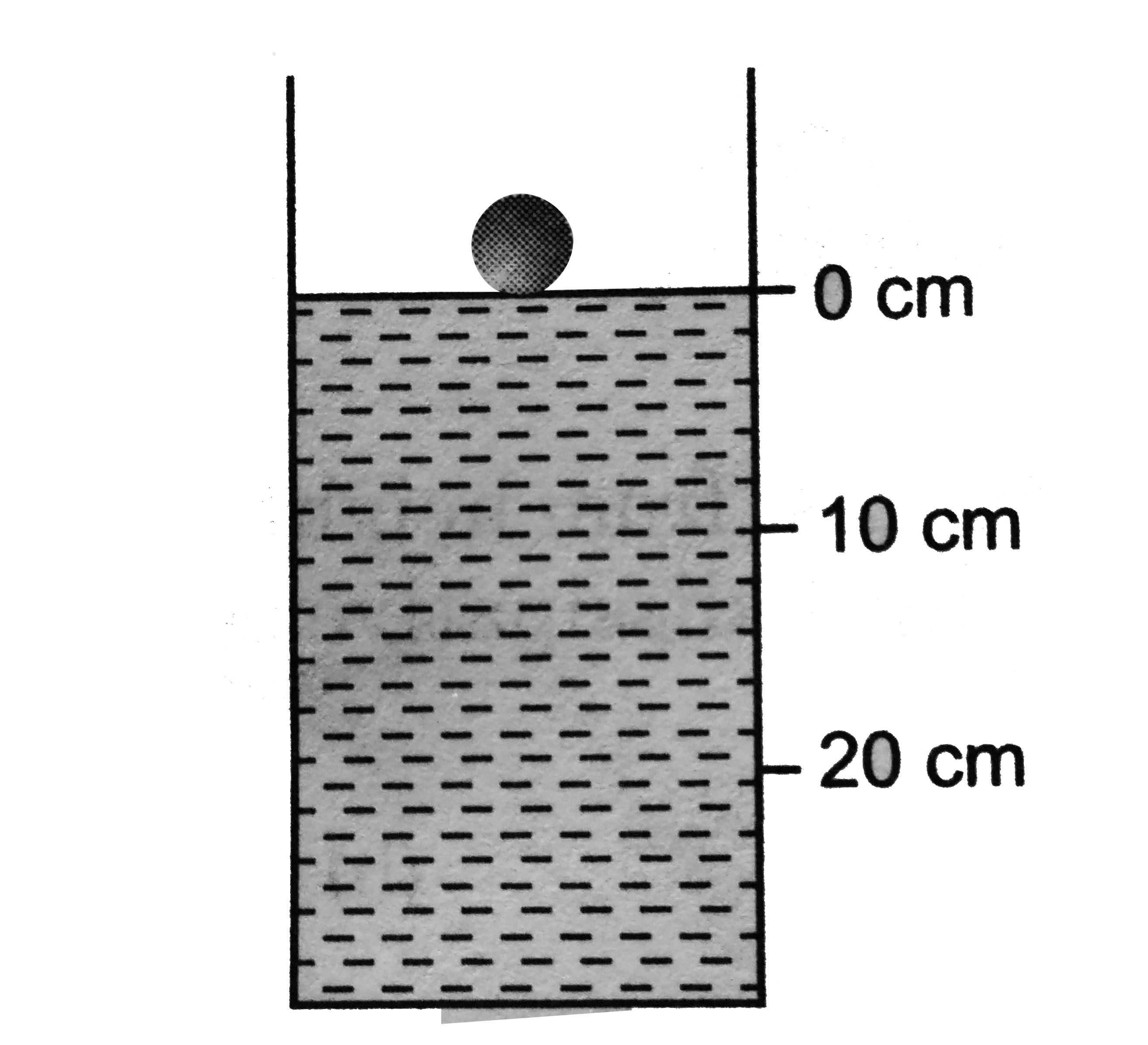 View Solution
View SolutionQuestion 150
A U-tube having horizontal arm of length 20 cm, has uniform cross-sectional area=1cm2, It is filled with water of volume 60 cc. What volume of a liquid of density 4g/ should be poured from one side into the U-tube so that no water is left in the horizontal arm of the tube? a) 60 cc b) 45 cc c) 50 cc d) 35 ccView SolutionQuestion 152
A spring balance reads 10kg when a bucket of water is suspened from it . What will be the reading of the balance when an iron piece of mass 7.2kg suspended by a string is immersed with half its volume inside the water in the bucket? Relative density of iron is 7.2 a) 10 kg b) 10.5 kg c) 13.6 kg d) 17.2 kgView SolutionQuestion 153
Three points A,B,and C on a steady flow of a non-viscon and inconpressible fluid are observed. The pressure, velocity and height of the point A,B and C are (2,3,1),(1,2,2) and (4,1,2) respectively.Density of the fluid is 1kgm−3 and all other parameters are given in SI unit. Then which of the following is correct?(g=10ms−2)View SolutionQuestion 164
A cylinder with a movable piston contains air under a pressure p1 and a soap bubble of radius 'r' . The pressure p2 to which the air should be compressed by slowly pushing the piston into the cylinder for the soap bubble to reduce its size by half will be (The surface tension is σ and the temperature T is maintained constant).View SolutionQuestion 165
A thin metal ring of internal radius 8 cm and external radius 9 cm is supported horizontally from the pan of a balance so that it comes in contact with water in a glass vessel. If is found that an extrea weight of 7.48g is required to pull the ring out of water. The surface tension of water is (g=10m/s2)View SolutionQuestion 166
A large wooden plate of area 10m2 floating on the surface of river is made to move horizontally wilth a speed of 2ms−1 by applying a tangential force. If the river is 1m deep and the water contact with the bed is stationary, find the tangential force needed to keep the plate moving. Coefficient of viscosity of water at the temperature of the river =10−2poise.View SolutionQuestion 176
The spouting can is something used to demonstrate the variation fo pressure with depth. When the corks are removed from the tubes in the side of the can, water flows out with a speed that depends on the depth. In a certain can, three tubes T1,T2 and T3 are set at equal distance 'a' above the base of the can. When water contained in this can is allowed to came out of hte tubes, the distance on the horizontal surface are measured as (x1),(x2) and (x3) .
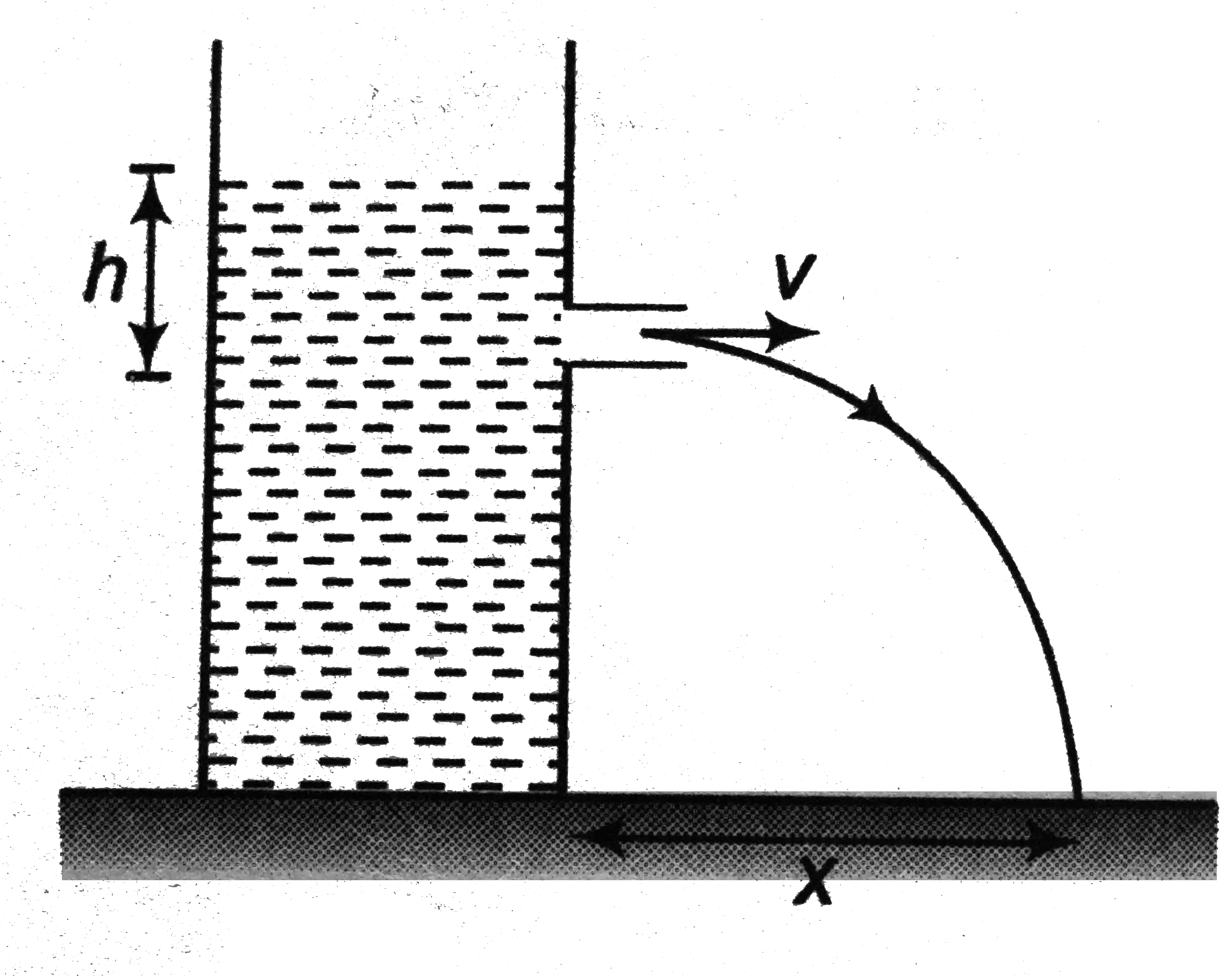
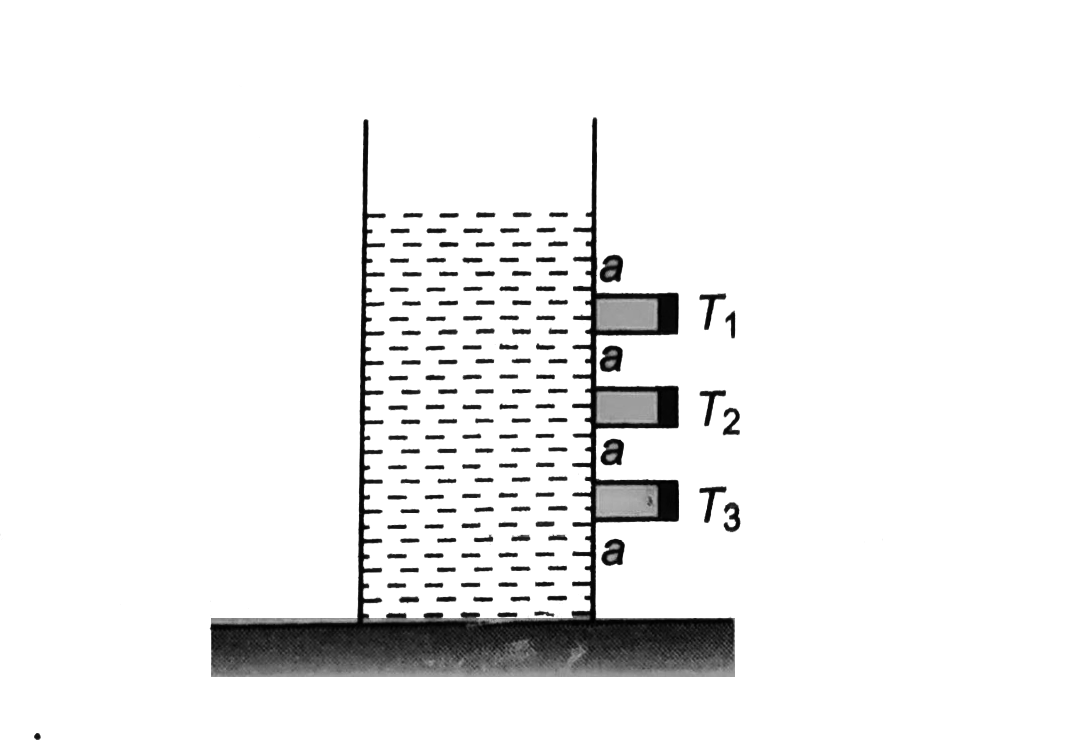
1. speed of efflux is View SolutionQuestion 177
The spouting can is something used to demonstrate the variation fo pressure with depth. When the corks are removed from the tubes in the side of the can, water flows out with a speed that depends on the depth. In a certain can, three tubes T1,T2 and T3 are set at equal distance 'a' above the base of the can. When water contained in this can is allowed to came out of hte tubes, the distance on the horizontal surface are measured as x1,x2 and x3 .
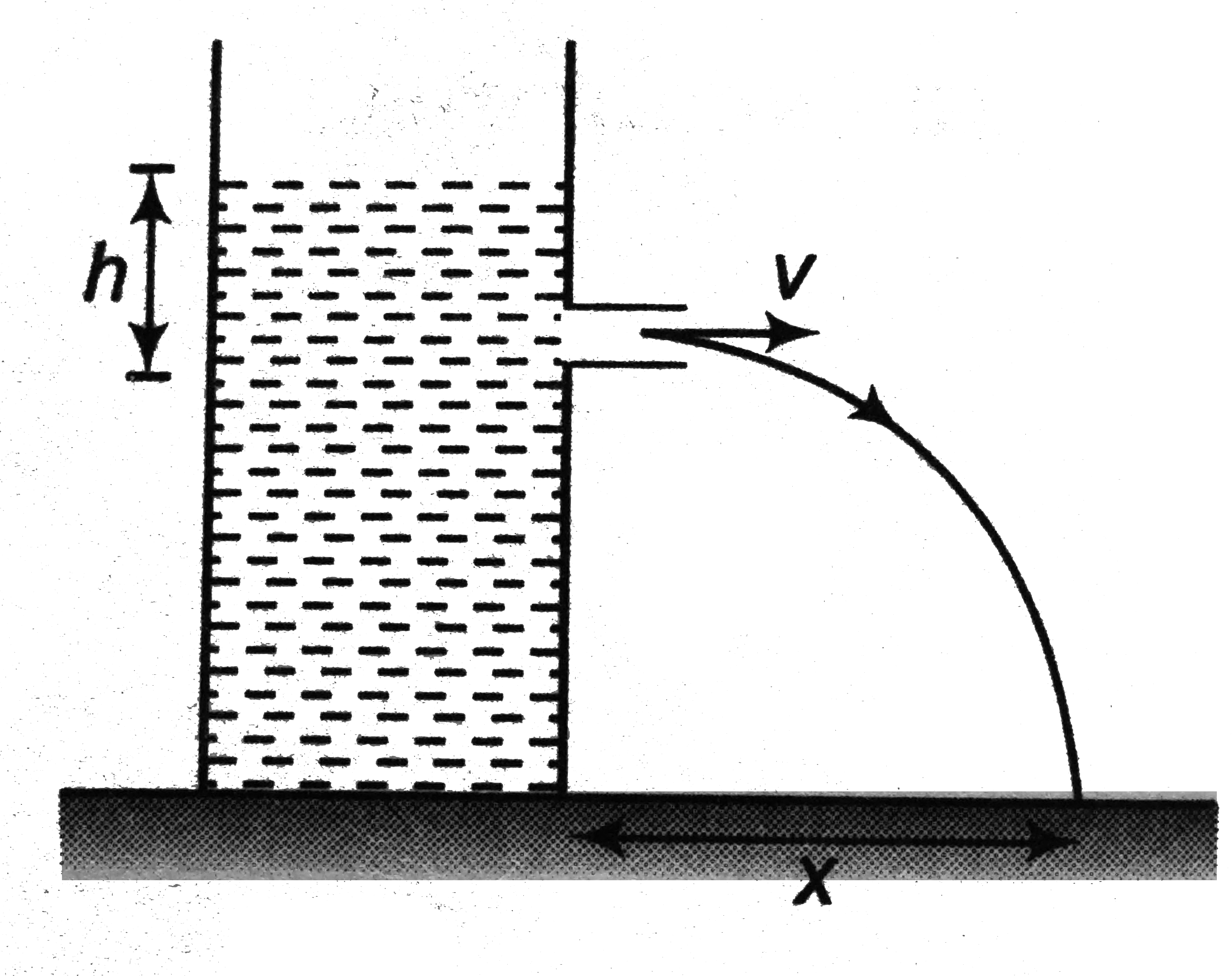
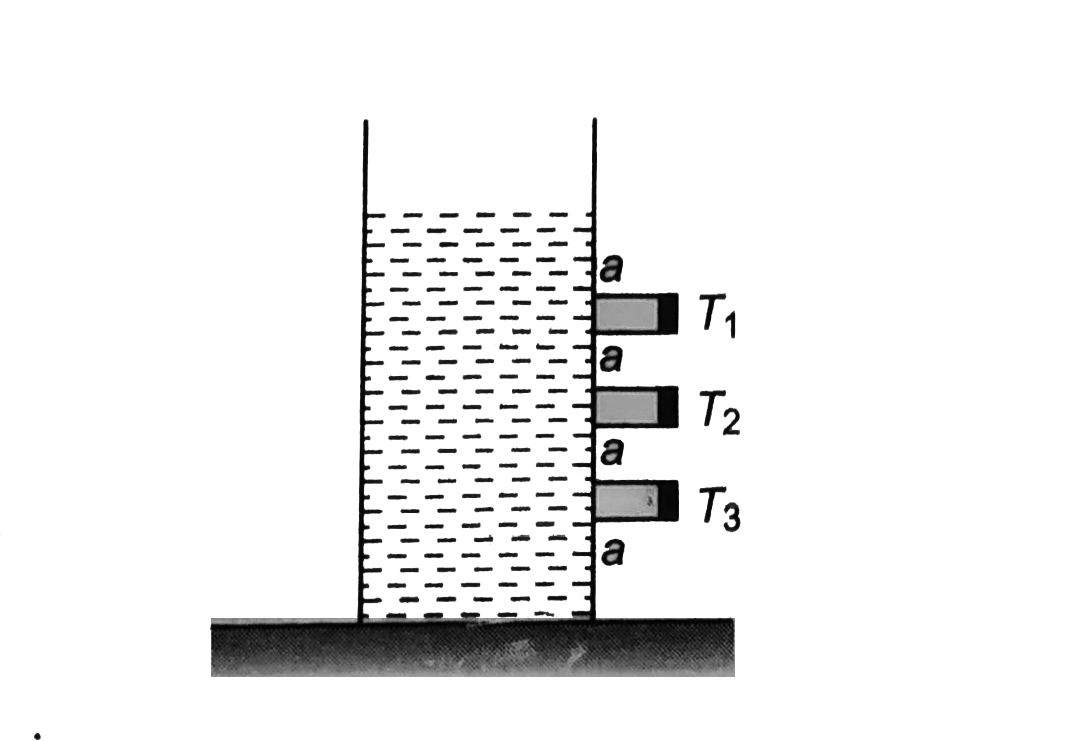
Distance x3 is given by View SolutionQuestion 178
The spouting can is something used to demonstrate the variation fo pressure with depth. When the corks are removed from the tubes in the side of the can, water flows out with a speed that depends on the depth. In a certain can, three tubes T1,T2 and T3 are set at equal distance 'a' above the base of the can. When water contained in this can is allowed to came out of hte tubes, the distance on the horizontal surface are measured as x1,x2 and x3 .
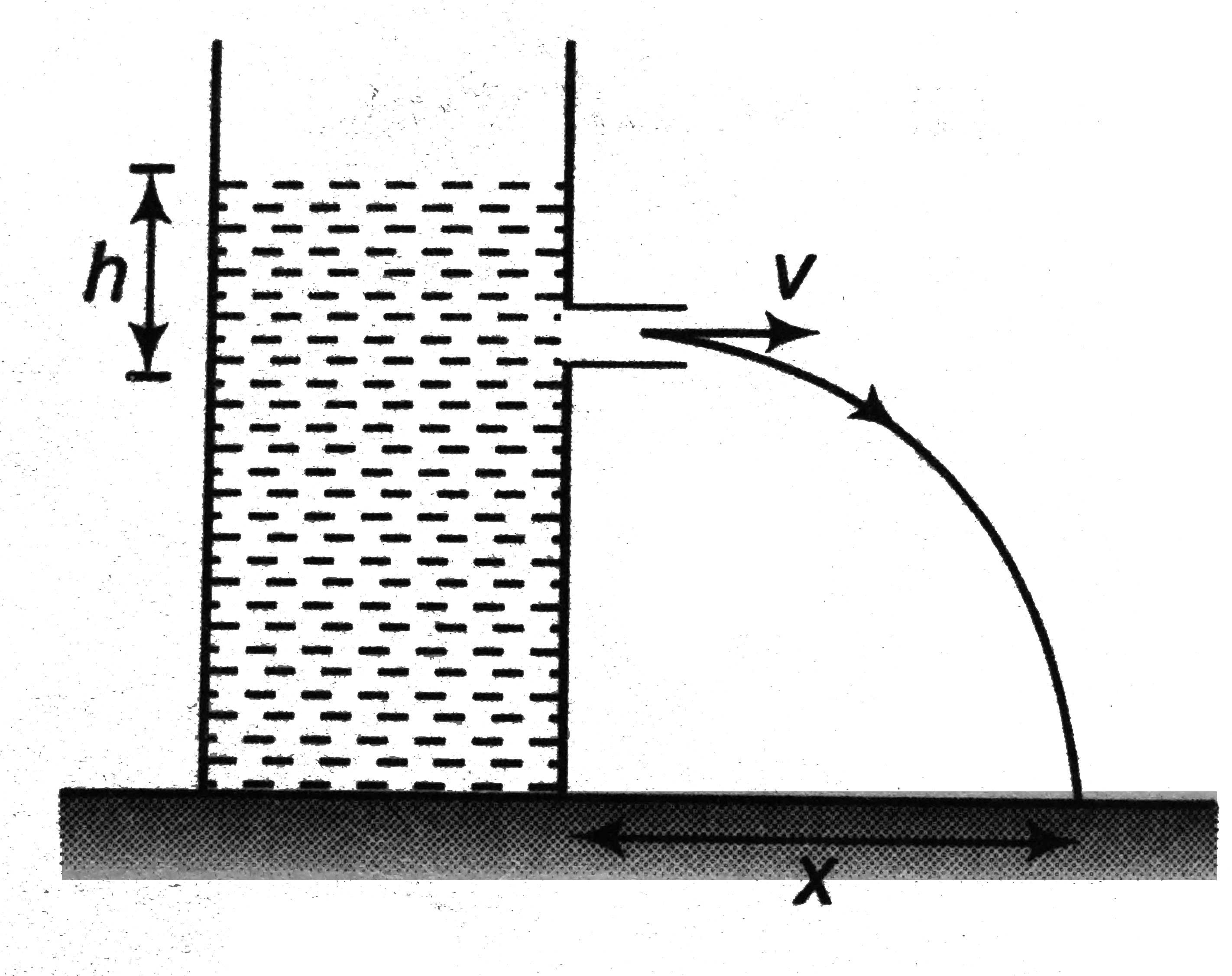
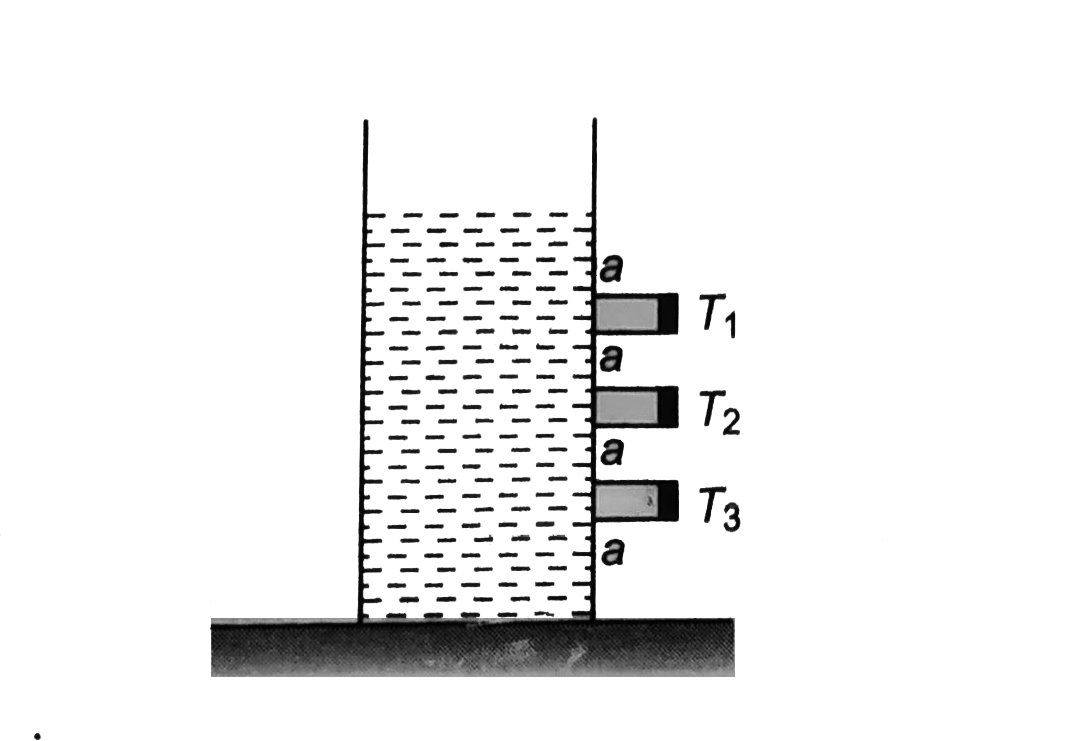
The correct sketch is View SolutionQuestion 179
A container of large uniform cross-sectional area A resting on a horizontal surface, holes two immiscible, non-viscous and incompressible liquids of densities d and 2d each of height H/2 as shown in the figure. The lower density liquid is open to the atmosphere having pressure P0. A homogeneous solid cylinder of length L(L<H/2) and cross-sectional area A/5 is immersed such that it floats with its axis vertical at the liquid-liquid interface with length L/4 in the denser liquid,
The density D of the material of the floating cylinder is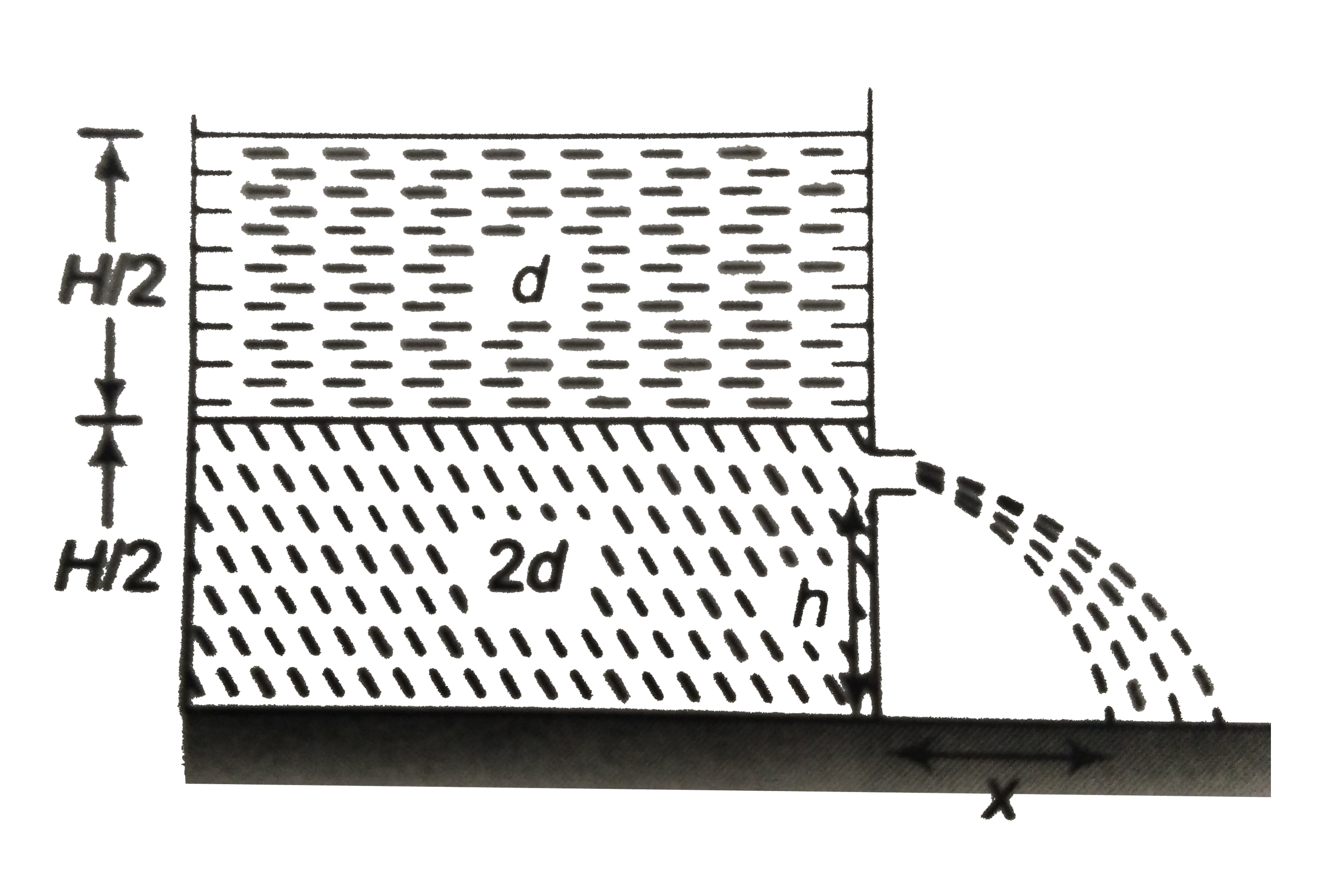
View SolutionQuestion 180
A container of large uniform cross-sectional area A resting on a horizontal surface, holes two immiscible, non-viscon and incompressible liquids of densities d and 2d each of height H/2 as shown in the figure. The lower density liquid is open to the atmosphere having pressure P0. A homogeneous solid cylinder of length L(L<H/2) and cross-sectional area A/5 is immeresed such that it floats with its axis vertical at the liquid-liquid interface with length L/4 in the denser liquid,
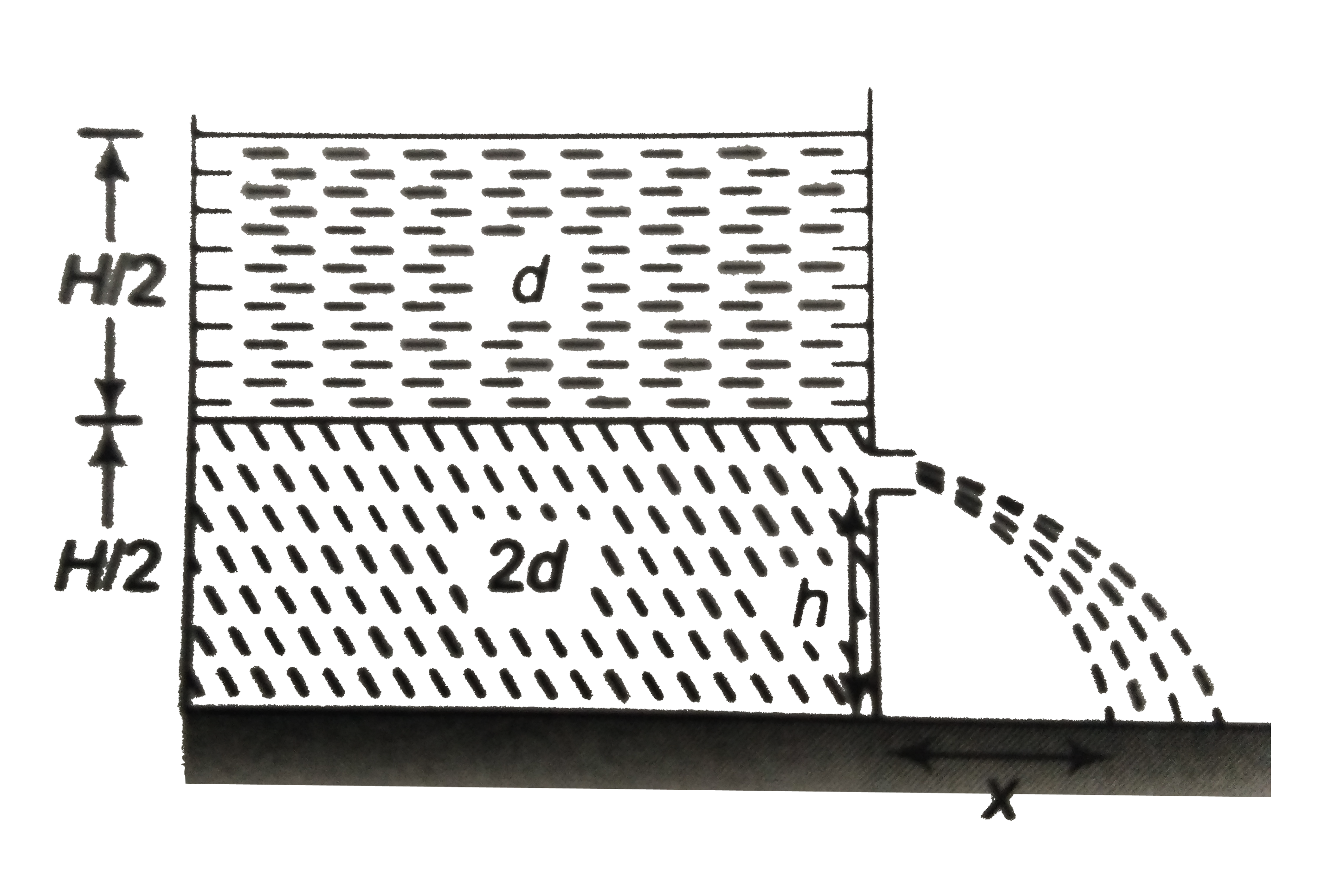
The cylinder is then removed and the original arrangement is restroed. a tiny hole of area s(s<<A) is punched on the vertical side of the container at a height h(h<H/2). As a result of this, liquid starts flowing out of the hole with a range x on the horizontal surface.
The initial speed of efflux without cylinder is View SolutionQuestion 181
A container of large uniform cross-sectional area A resting on a horizontal surface, holes two immiscible, non-viscon and incompressible liquids of densities d and 2d each of height H/2 as shown in the figure. The lower density liquid is open to the atmosphere having pressure P0. A homogeneous solid cylinder of length L(L<H/2) and cross-sectional area A/5 is immeresed such that it floats with its axis vertical at the liquid-liquid interface with length L/4 in the denser liquid,

The cylinder is then removed and the original arrangement is restroed. a tiny hole of area s(s<<A) is punched on the vertical side of the container at a height h(h<H/2). As a result of this, liquid starts flowing out of the hole with a range x on the horizontal surface.
The initial speed of efflux without cylinder is View SolutionQuestion 182
A container of large uniform cross-sectional area A resting on a horizontal surface, holes two immiscible, non-viscon and incompressible liquids of densities d and 2d each of height H/2 as shown in the figure. The lower density liquid is open to the atmosphere having pressure P0. A homogeneous solid cylinder of length L(L<H/2) and cross-sectional area A/5 is immeresed such that it floats with its axis vertical at the liquid-liquid interface with length L/4 in the denser liquid,
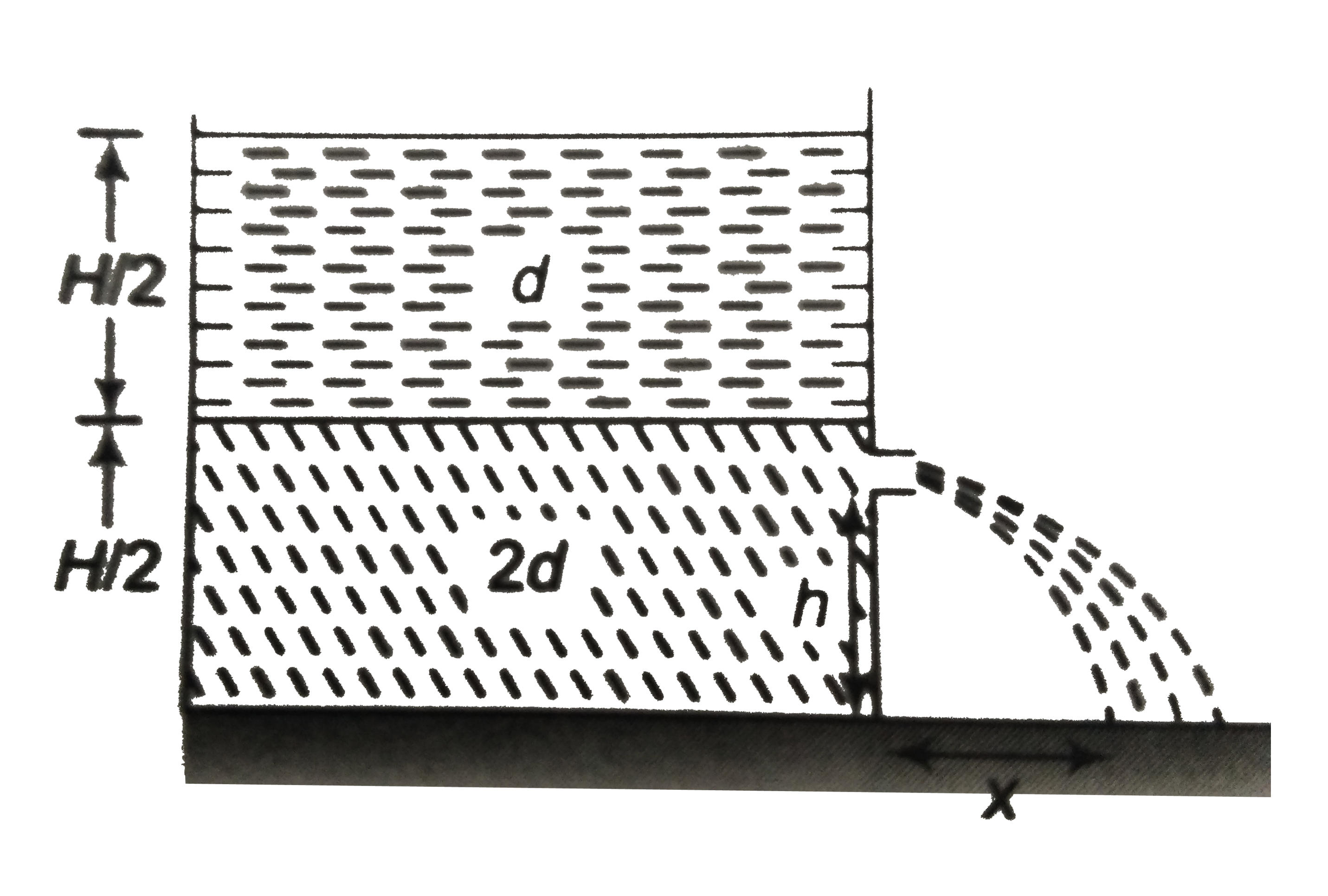
The cylinder is then removed and the original arrangement is restroed. a tiny hole of area s(s<<A) is punched on the vertical side of the container at a height h(h<H/2). As a result of this, liquid starts flowing out of the hole with a range x on the horizontal surface.
The initial value of x is View SolutionQuestion 183
A wooden plank of length 1m and uniform cross-section is hinged at one end to the bottom of a tank as shown in fig. The tank is filled with water upto a hight 0.5m. The specific gravity of the plank is 0.5. Find the angle θ that the plank makes with the vertical in the equilibrium position. (Exclude the case θ=θ∘)
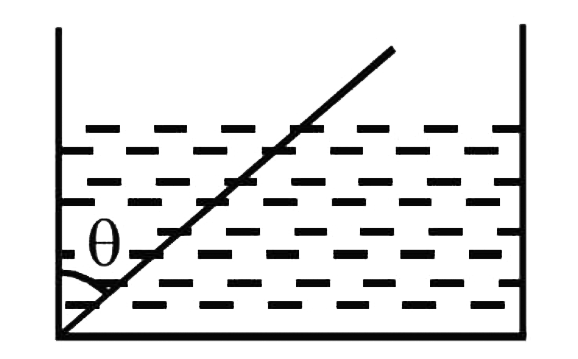 View Solution
View SolutionQuestion 184
A cubical block of wood of edge 3 cm floats in water. The lower surface of the cube just touches the free end of a vertical spring fixed at the bottom of the pot. Find the maximum weight that can be put on the block without wetting it. Density of wood =800kgm−3 and spring constant of the spring =50Nm−1Takeg=10ms−2.
 ,View Solution
,View SolutionQuestion 185
Figure shown a container having liquid of variable density. The density of liquid veriesas ρ=ρ0(4−3hh0). Here, h0 and ρ0 are constants and h is measured from bottom of the container. A solid block of small dimensions whose density is 52ρ0 and mass m is released from bottom of the tank. Prove that the block will execute simple harmonic motion. Find the frequency of oscillation.
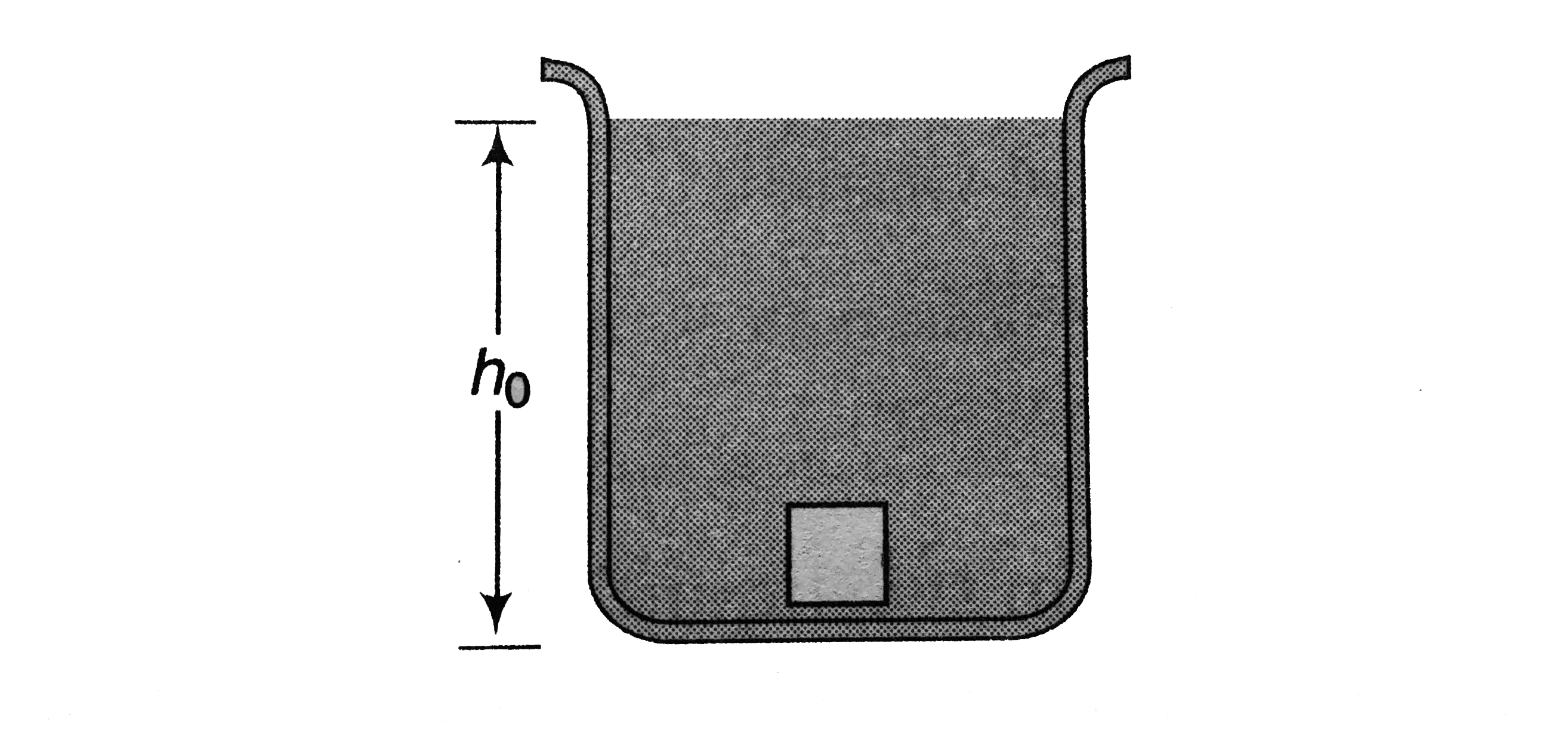 .View Solution
.View SolutionQuestion 186
_S01_030_Q01.png)
A cylinderical tank 1 m in radius rests on a plaform 5 m high. Initially the tank is filled with water upto a height of 5m a plug whose area is 10−4cm2 is removed from an orifice on the side of the tank at the bottom.
Calculate (a). Initial speed with which the water flows from the orifice
(b). Initial speed with which the water strikes the ground.View SolutionQuestion 190
A long cylindrical tank of cross-sectional area 0.5m2 is filled with water. It has a small hole at a height 50cm from the bottom. A movable piston of cross-sectional area almost equal to 0.5m2 is fitted on the top of the tank such that it can slide in the tank freely. A load of 20kg is applied on the top of the water by piston, as shown in the figure. Calculate the speed of the water jet with which it hits the surface when piston is 1m above the bottom. (Ignore the mass of the piston)
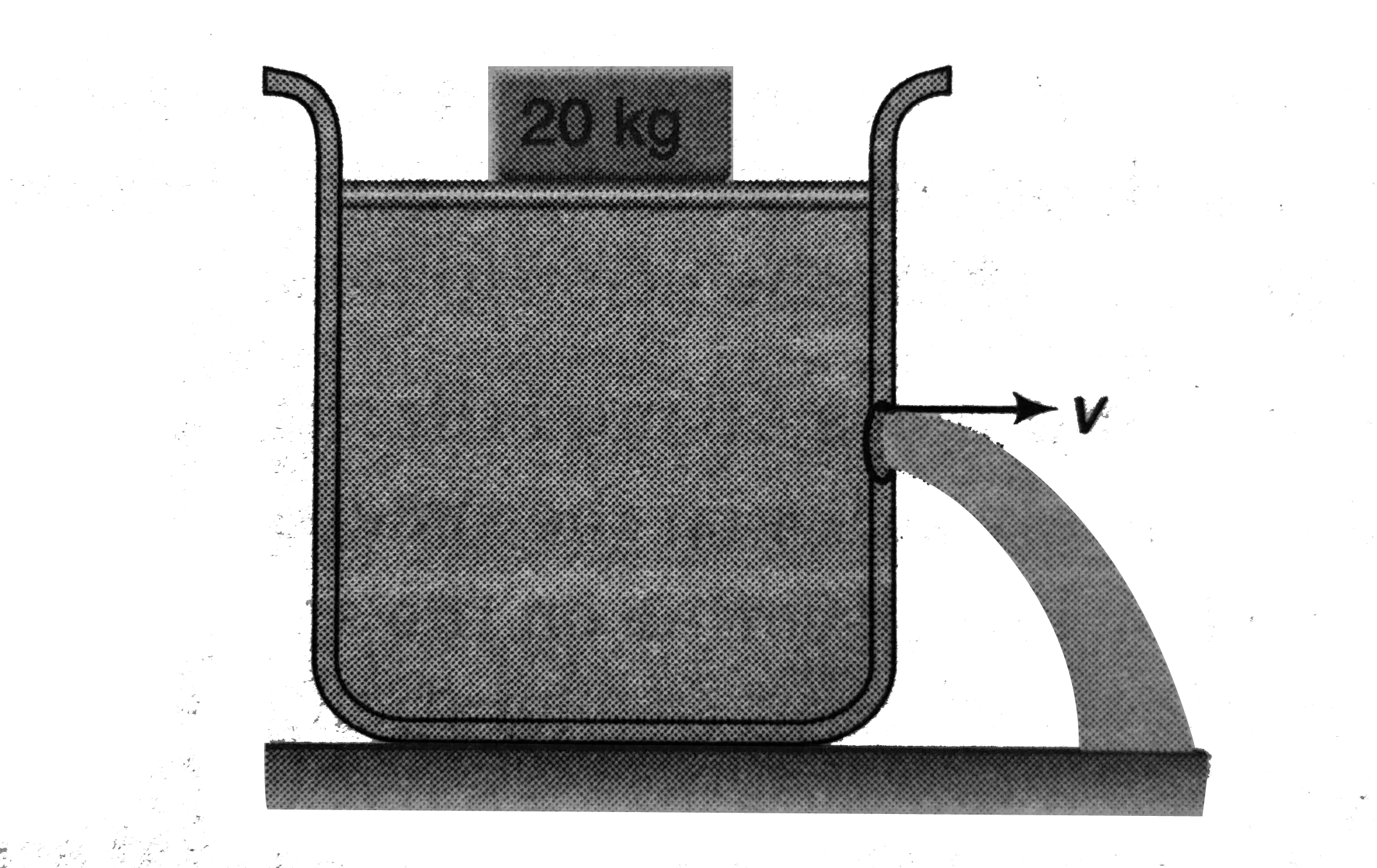 View Solution
View SolutionQuestion 191
The shape of an ancient water clock jug is such that water level descends at a constant rate at all time. If the water level falls by 4cm every hour, determine the shape of the jar, i.e. specify x as a function of y. The radius of drain hole in 2mm and can be assumed to be very small compared to x.
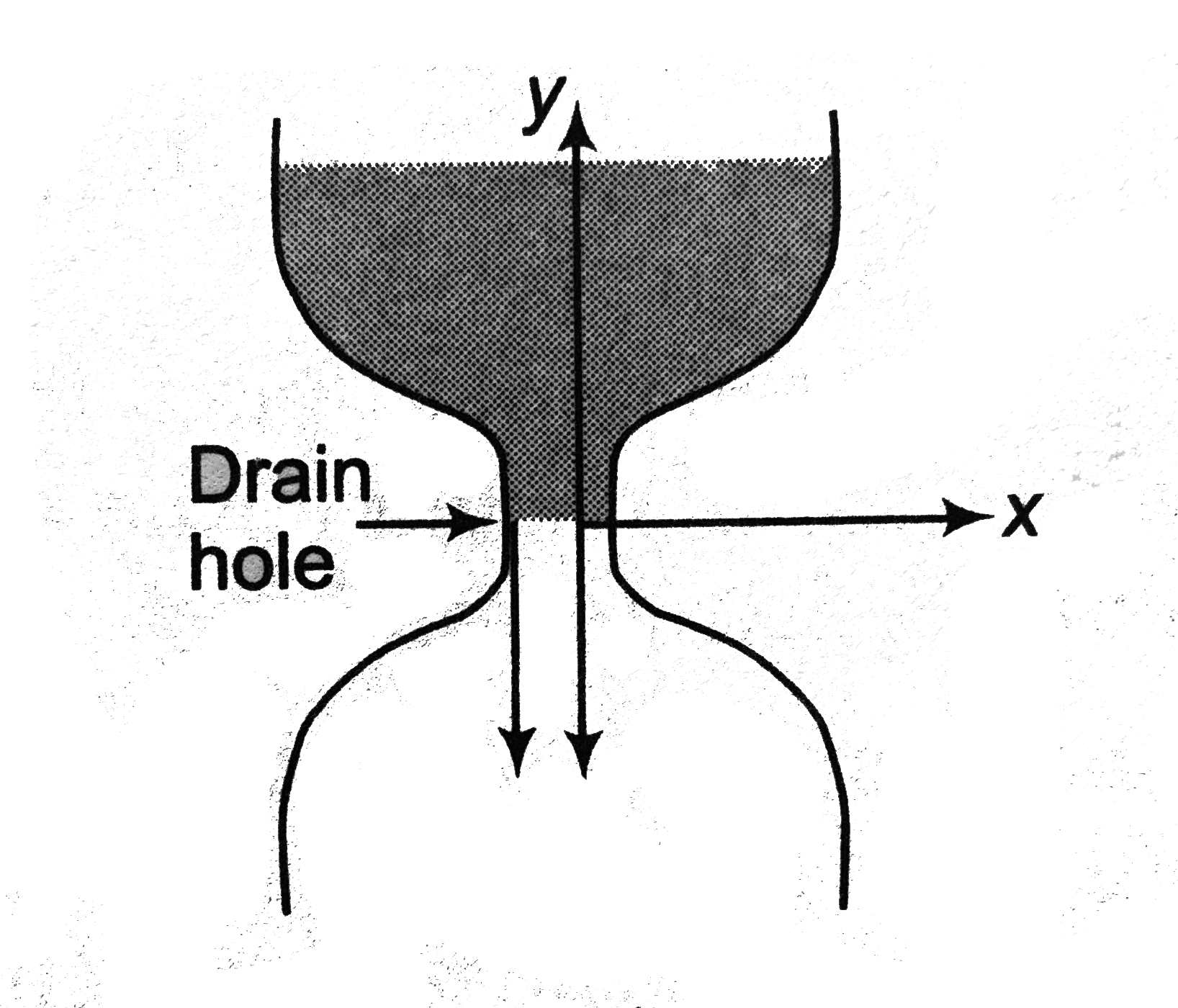 View Solution
View SolutionQuestion 192
A spring is attached to the bottom of an swimming pool, with the axis of the spring oriented vertically. An 8.00 kg block of wood (ρ=840kh/m3) is fixed to the top of the spring and compressed it. Then the pool is filled with water, completely covering the block. the spring is now observed to be stretched twice as much as it had been conpressed. Determine the percentage of the block's total volume that is hollow. Ignore any air in the hollow space. View SolutionQuestion 193
A rectangular tank of height 10m filled with water, is placed near the bottom of a plane inclined at an angle 30∘ with horizontal. At height h form bottom a small hole is made (as shown in figure) such that the stream coming out from hole, strikes the inclined plane normally. Calculate h.
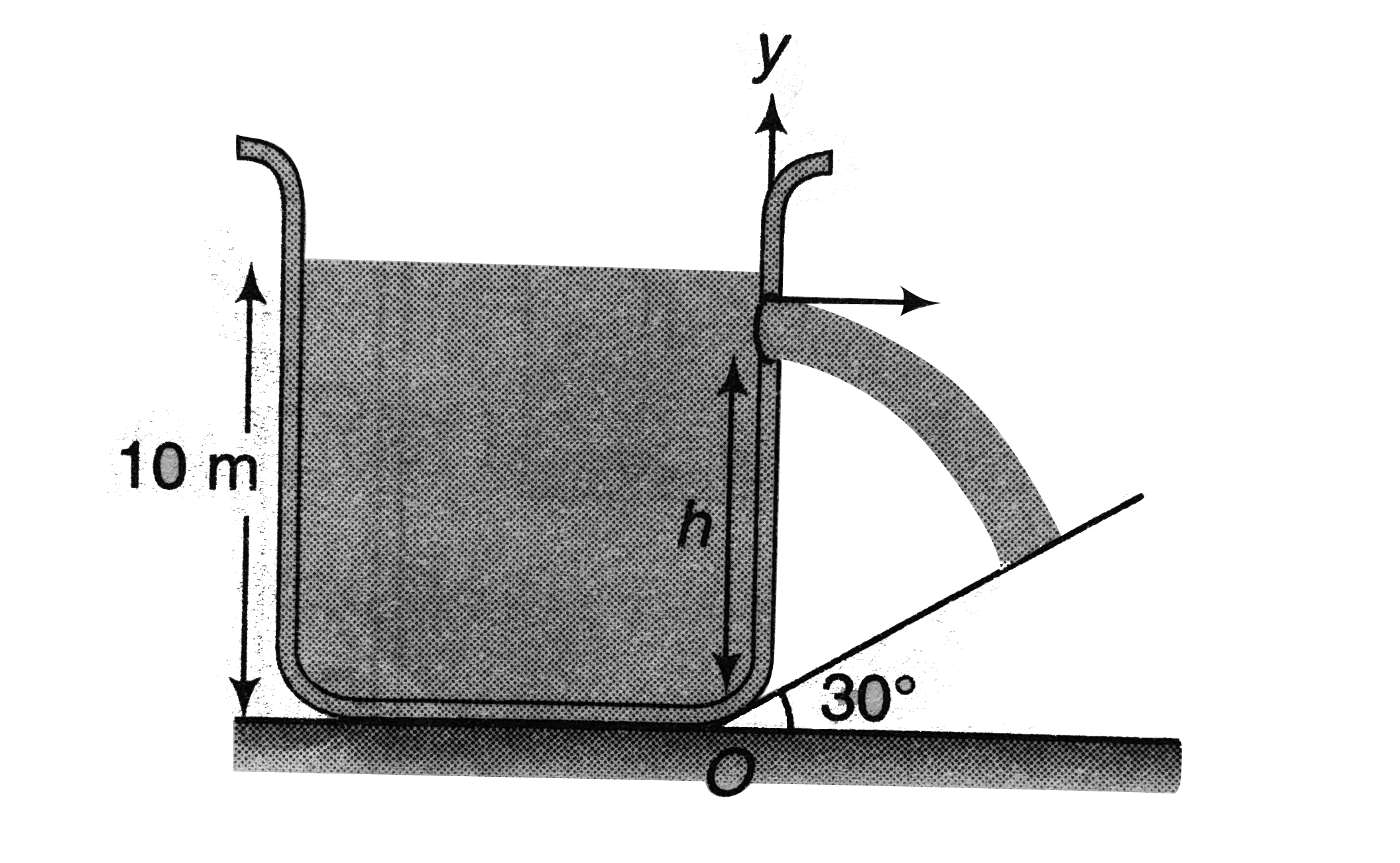 View Solution
View SolutionQuestion 194
A ball of density d is dropped on to a horizontal solid surface. It bounces elastically from the surface and returns to its original position in a time t1. Next, the ball is released and it falls through the same height before striking the surface of a liquid of density of dL
(a) If d<dL, obtain an expression (in terms of d, t1 and dL) for the time t2 the ball takes to come back to the position from which it was released.
(b) Is the motion of the ball simple harmonic?
(c) If d=dL, how does the speed of the ball depend on its depth inside the liquid? Neglect all frictional and other dissipative forces. Assume the depth of the liquid to be large.View SolutionQuestion 196
A metal sphere of radius 1 mm and mass 50 mg falls vertically in glycerine. Find (a) the viscous force exerted by the glycerine on the sphere when the speed of the sphere is 1 cm s-1, (b) the hydrostatic force exerted by the glycerine on the sphere and (c) the terminal velocity with which the sphere will move down without acceleration. Density of glycerine =1260kgm−3 and its coefficient of viscosity at room temperature = 8.0 poise.View SolutionQuestion 197
A wire forming a loop is dipped into soap solution and taken out so that a film of soap solution is formed. A loop of 6.28 cm long thread is gently put on the film and the film is pricked with a needle inside the loop. The thread loop takes the shape of a circle. Find the tension in the thread. Surface tension of soap solution =0.030Nm−1.View SolutionQuestion 198
A cylindrical vessel is filled with water upto a height of 1m. The cross-sectional area of the orifice at the bottom is (1/400) that of the vessel.
(a) What is the time required to empty the tank through the orifice at the bottom?
(b) What is the time required for the same amount of water to flow out if the water level in tank is maintained always at a height of 1m from orifice?View SolutionQuestion 199
A tank with a small orifice contains oil on top of water. It is immersed in a large tank of the same oil. Water flows through the hole. Assuming the level of oil outside the tank above orifice does not change.
a. What is the velocity of this flow initially?
b. When the flow stops, what would be the position of the oil-water interface in the tank?
c. Determine the time at which the flow stops. Density,of oil 800kg/m3.
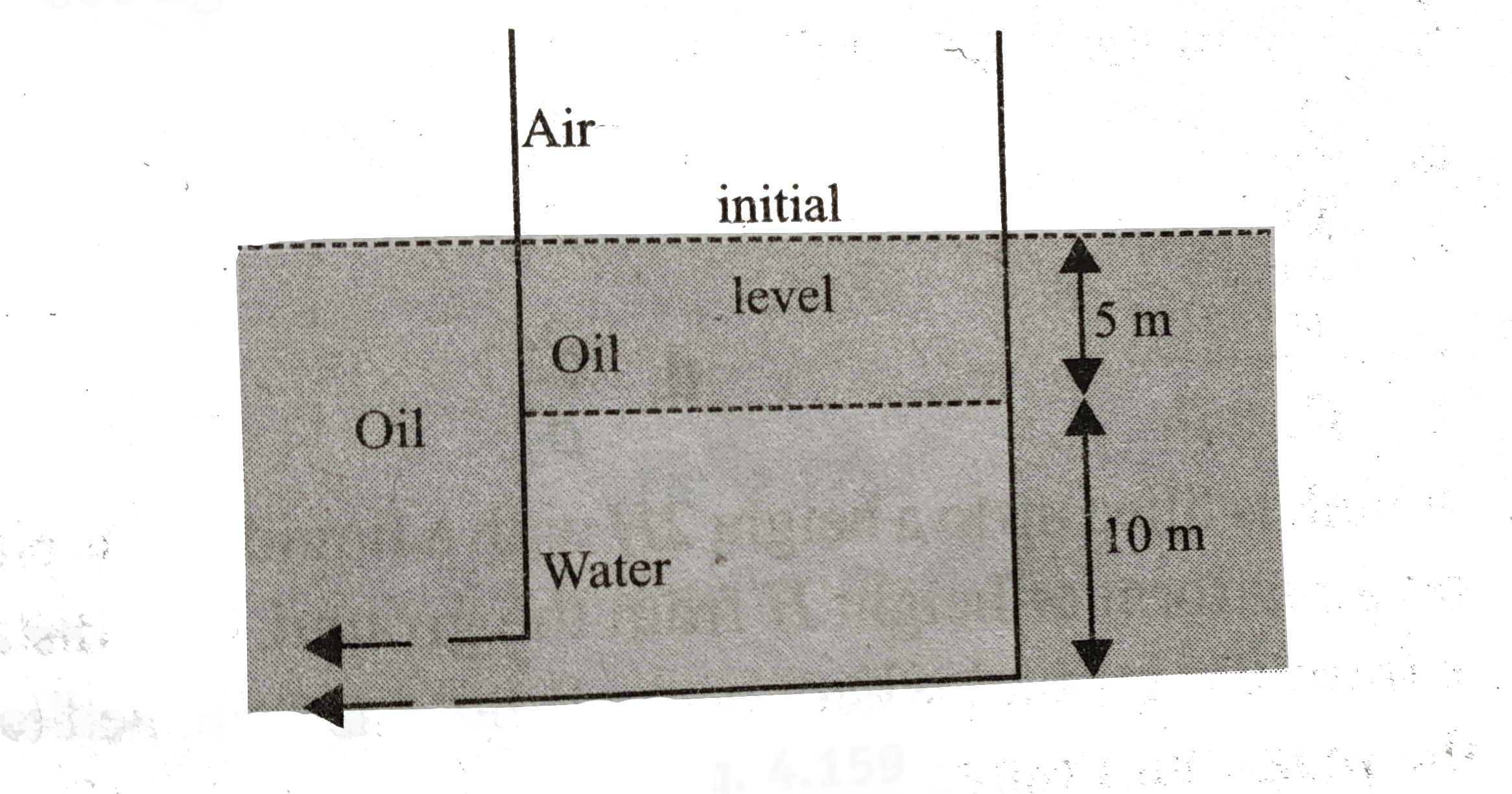 View Solution
View SolutionQuestion 200
What work should be done in order to squeeze all water from a horizontally located cylinder (figure) during the time t by means of a constant force acting on the piston? The volume of water in the cylinder is equal to V, the cross-sectional area of the orifice is s, with s being considerably less than the piston area. The friction and viscosity are negligibly small. Density of water is ρ
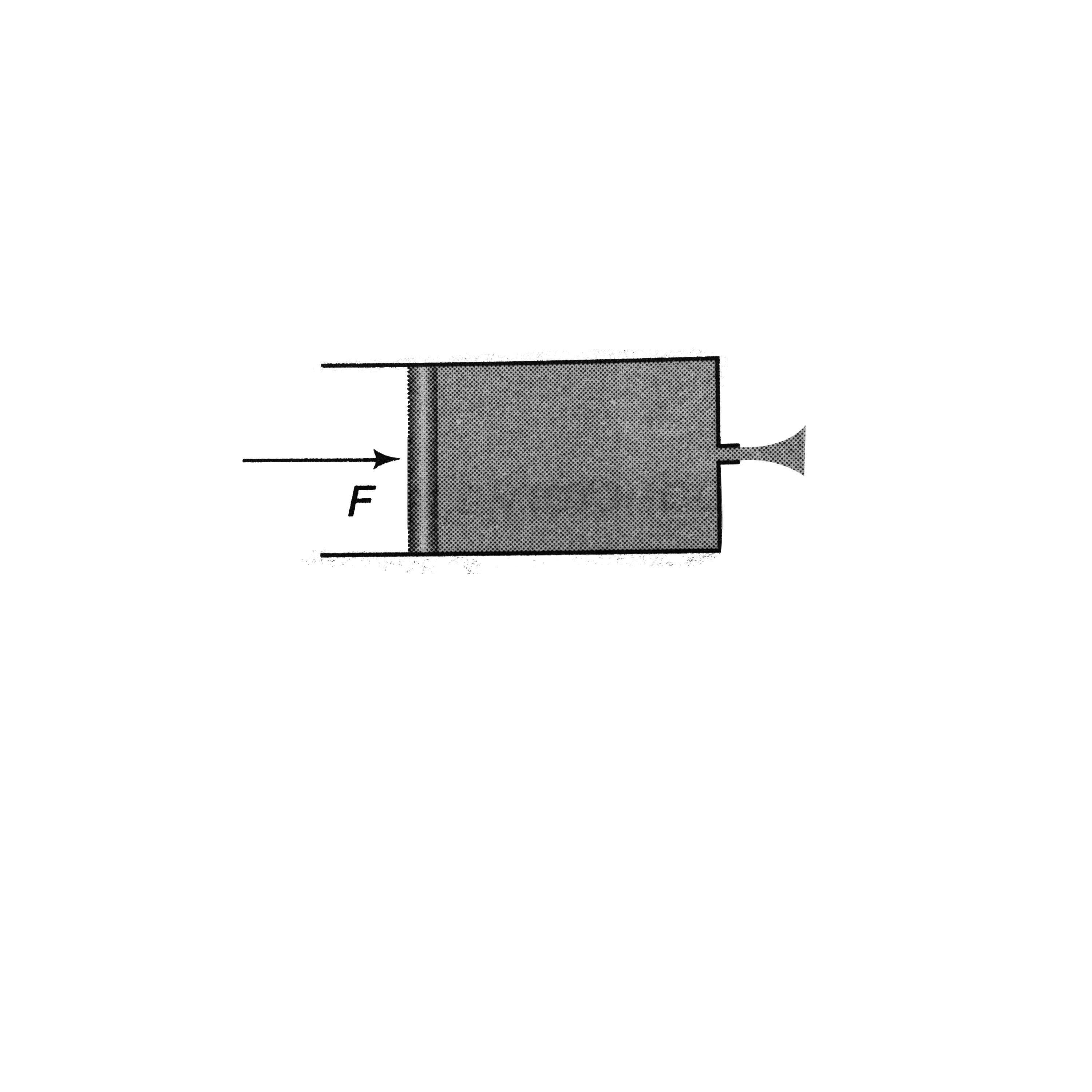 View Solution
View SolutionQuestion 201
A cylinder is fitted with a piston, beneath which is a spring, as in the figure. The cylinder is open at the top. Friction is absent. The spring is 3600N/m. The piston has a negligible mass and a radius of 0.025m (a) when air beneath the piston is completely pumped out, how much does the atmospheric pressure cause the spring to compress? (b) How much work does the atmospheric pressure do in compressing the spring?
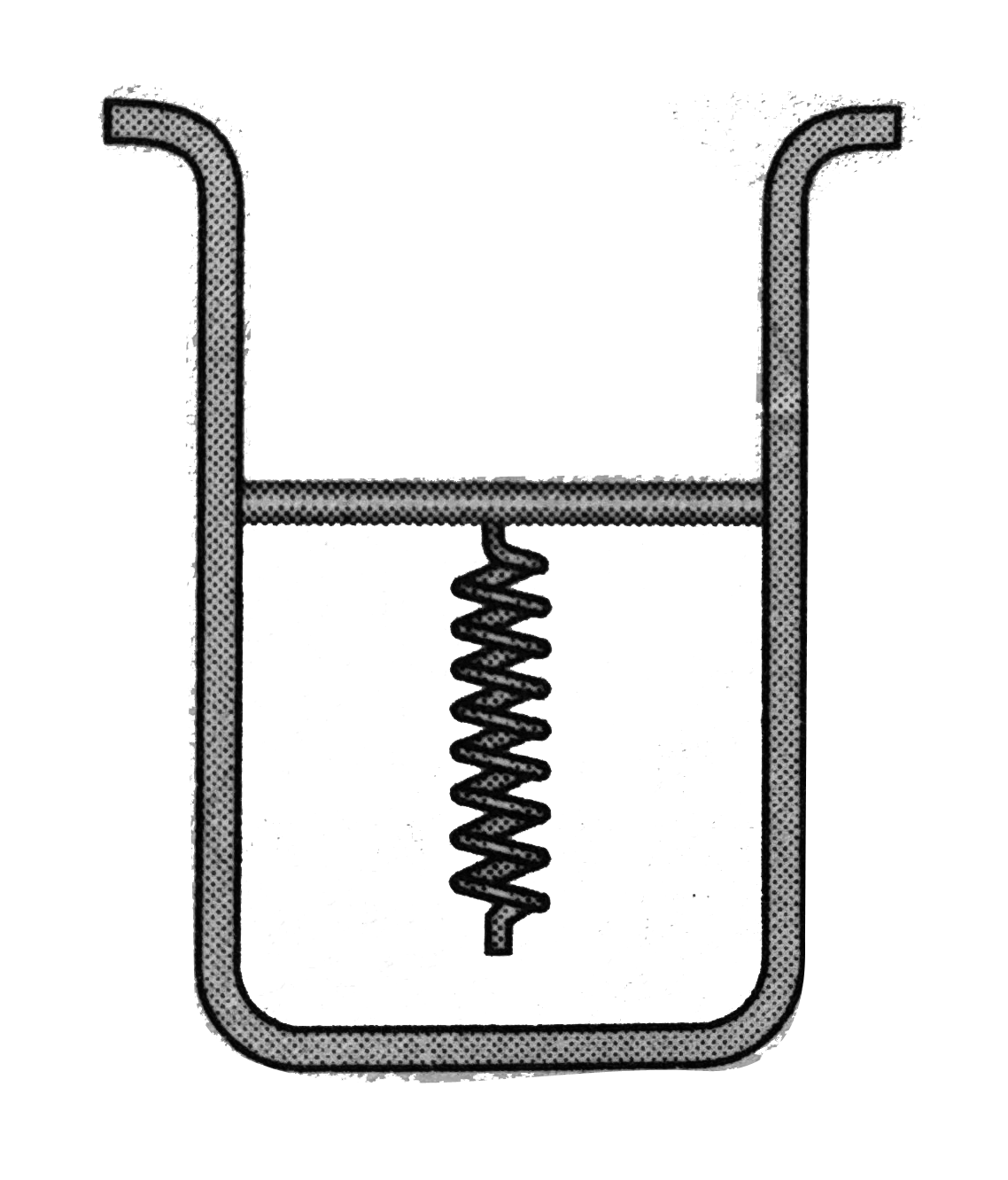 View Solution
View SolutionQuestion 202
A non-viscous liquid of constant density 1000kg/m3 flows in a streamline motion along a tube of variable cross section. The tube is kept inclined in the vertical plane as shown in Figure. The area of cross section of the tube two point P and Q at heights of 2 metres and 5 metres are respectively 4×10−3m2 and 8×10−3m2. The velocity of the liquid at point P is 1m/s. Find the work done per unit volume by the pressure and the gravity forces as the fluid flows from point P to Q.
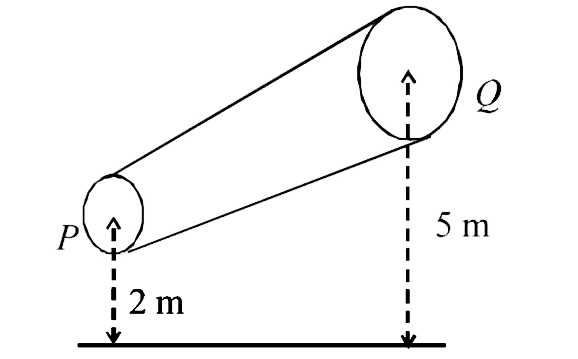 View Solution
View SolutionQuestion 204
Two narrow bores of diameters 3.0mm and 6.0 mm are joined together to form a U-shaped tube open at both ends. If th U-tube contains water, what is the difference in its levels in the two limbs of the tube? Surface tension of water at the temperature of the experiment is 7.3×10−2Nm−1. Take the angle of contact to be zero. and density of water to be 1.0×103kg/m3.
(g=9.8ms−2)View SolutionQuestion 205
Two identical soap bubbles each of radius r and of the same surface tension T combine to form a new soap bubble of radius R. The two bubbles contain air at the same temperature. If the atmospheric pressure is p0 then find the surface tension T of the soap solution in terms of p0, r and R. Assume process is isothermal. View Solution
All Exercises from DC PANDEY ENGLISH Class 11 PHYSICS FLUID MECHANICS
- ASSERTION AND REASON
- B) MEDICAL ENTRANCE SPECIAL FORMAT QUESTION
- CHECK POINT 13.1
- CHECK POINT 13.2
- CHECK POINT 13.3
- CHECK POINT 13.4
- EXERCISE16.1
- EXERCISE16.2
- EXERCISE16.3
- EXERCISE16.4
- EXERCISE16.5
- EXERCISE16.6
- EXERCISE16.7
- EXERCISE16.8
- INTRODUCTORY EXERCISE
- LEVEL 1 ASSERTION AND REASON
- LEVEL 1 SINGLE CORRECT
- LEVEL 1 SUBJECTIVE
- LEVEL 2 COMPREHENSION BASED
- LEVEL 2 MORE THAN ONE CORRECT
- LEVEL 2 SINGLE CORRECT
- MATCH THE COLUMNS
- MEDICAL ENTRANES GALLERY
- SUBJECTIVE
- SUBJECTIVE QUESTION
- TAKING IT TOGETHER
- EXAMPLE
- EXAMPLE 13.1
- EXAMPLE 13.10
- EXAMPLE 13.11
- EXAMPLE 13.12
- EXAMPLE 13.13
- EXAMPLE 13.14
- EXAMPLE 13.15
- EXAMPLE 13.16
- EXAMPLE 13.17
- EXAMPLE 13.18
- EXAMPLE 13.19
- EXAMPLE 13.2
- EXAMPLE 13.20
- EXAMPLE 13.21
- EXAMPLE 13.22
- EXAMPLE 13.23
- EXAMPLE 13.24
- EXAMPLE 13.25
- EXAMPLE 13.26
- EXAMPLE 13.27
- EXAMPLE 13.28
- EXAMPLE 13.29
- EXAMPLE 13.3
- EXAMPLE 13.30
- EXAMPLE 13.31
- EXAMPLE 13.32
- EXAMPLE 13.33
- EXAMPLE 13.34
- EXAMPLE 13.35
- EXAMPLE 13.4
- EXAMPLE 13.5
- EXAMPLE 13.6
- EXAMPLE 13.7
- EXAMPLE 13.8
- EXAMPLE 13.9
- MISCELLANEOUS EXAMPLES
- SOLVED EXAMPLES
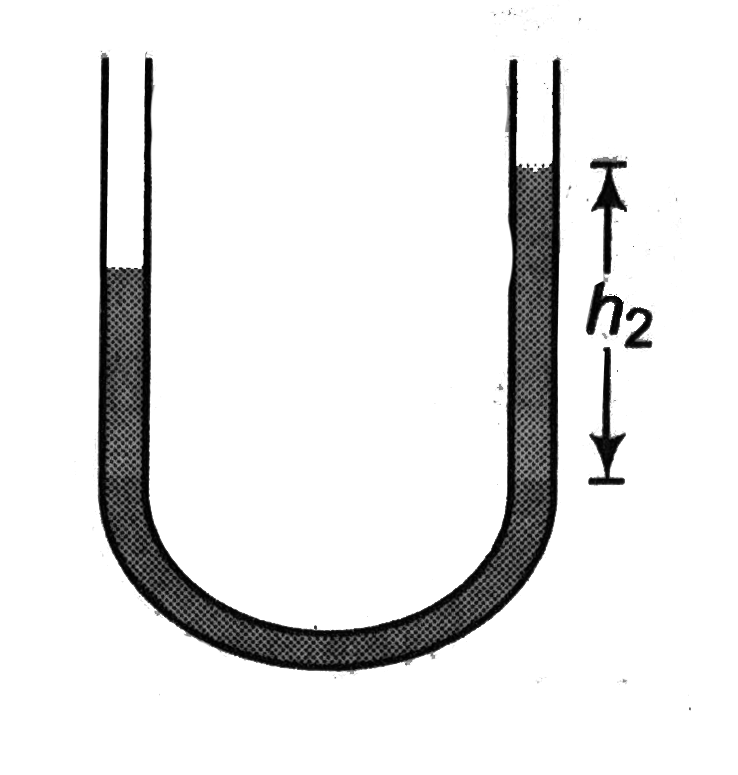 .
.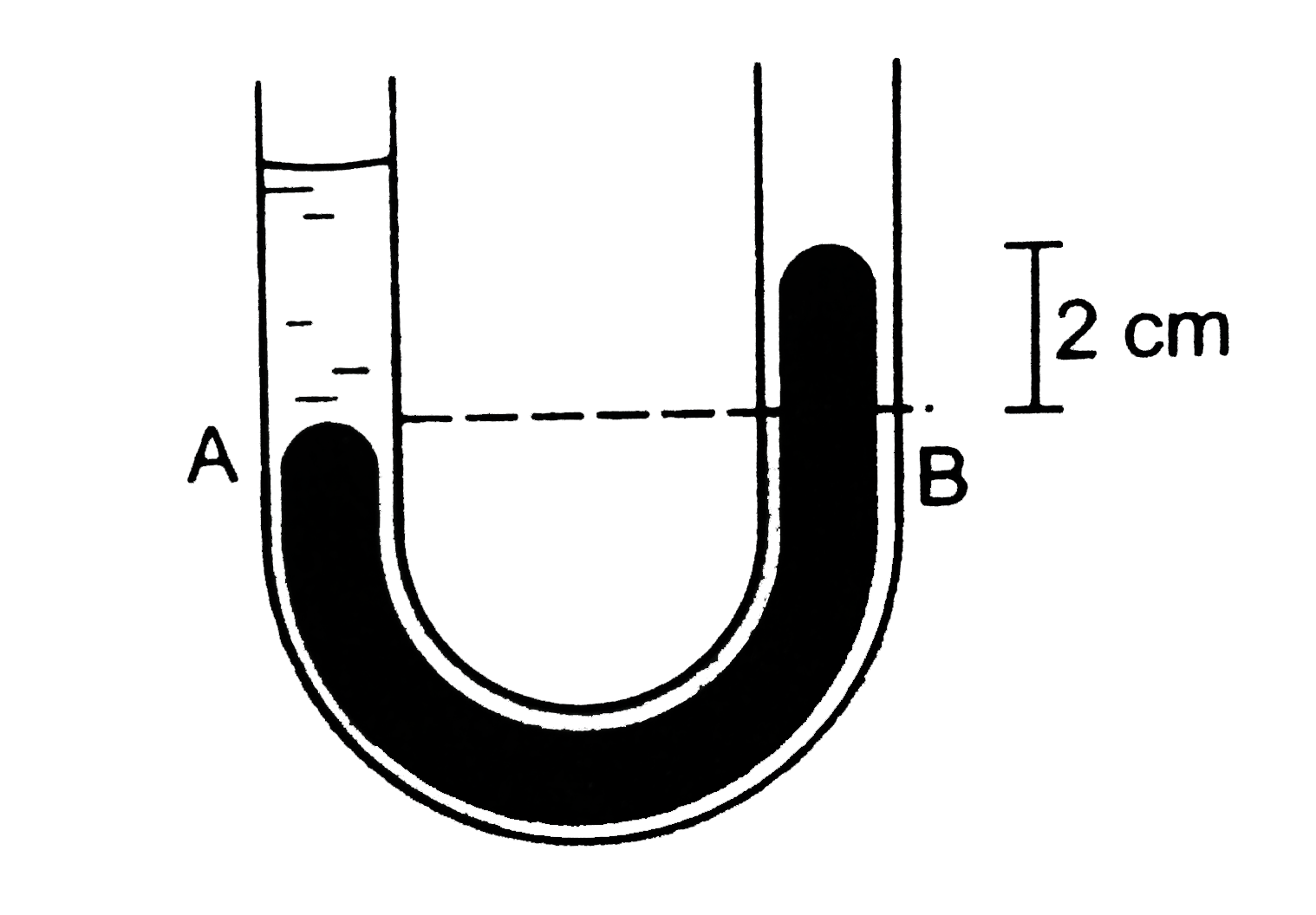 ,
,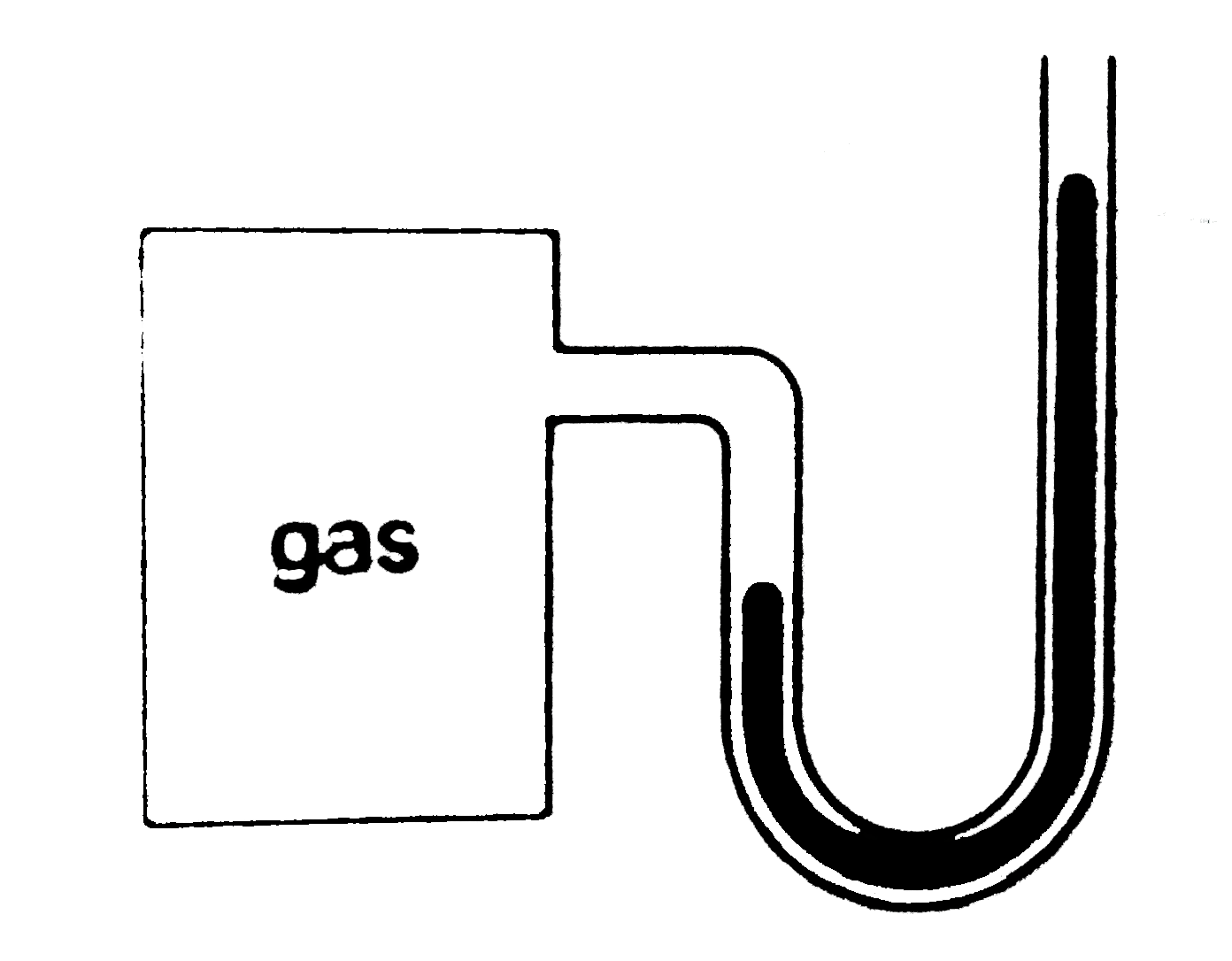
 ,
, ,
,
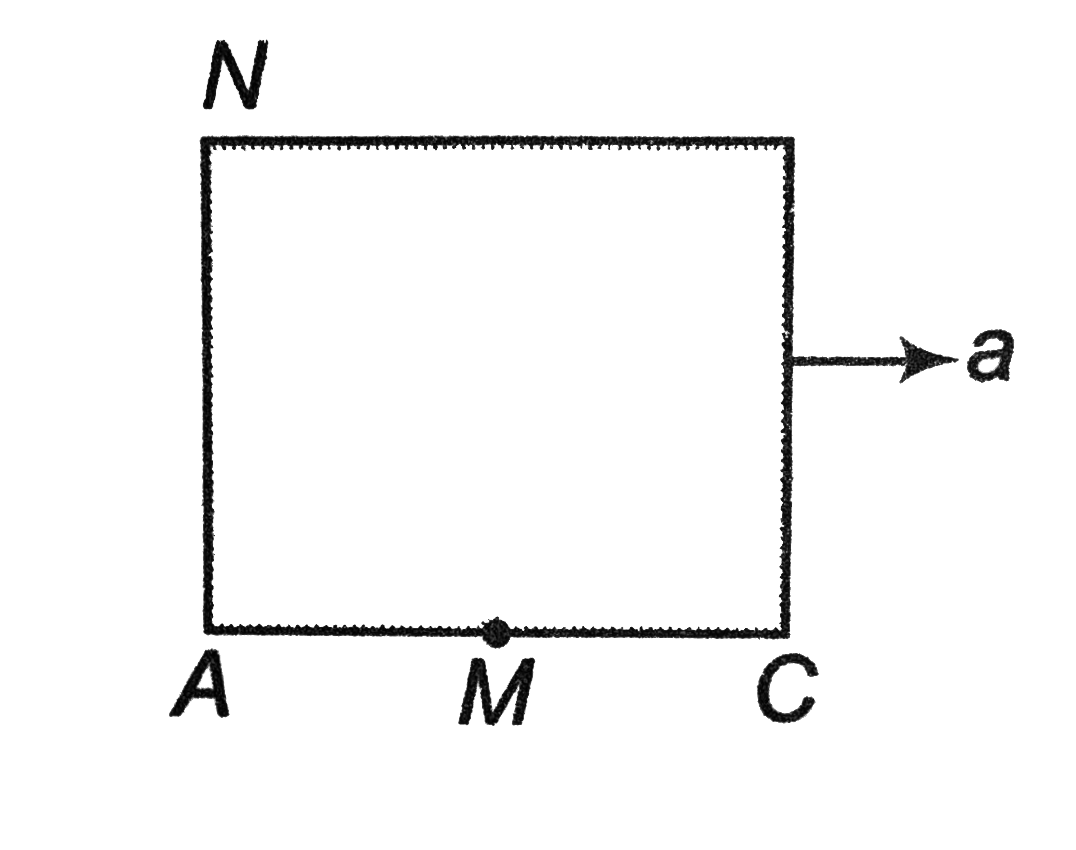 .
.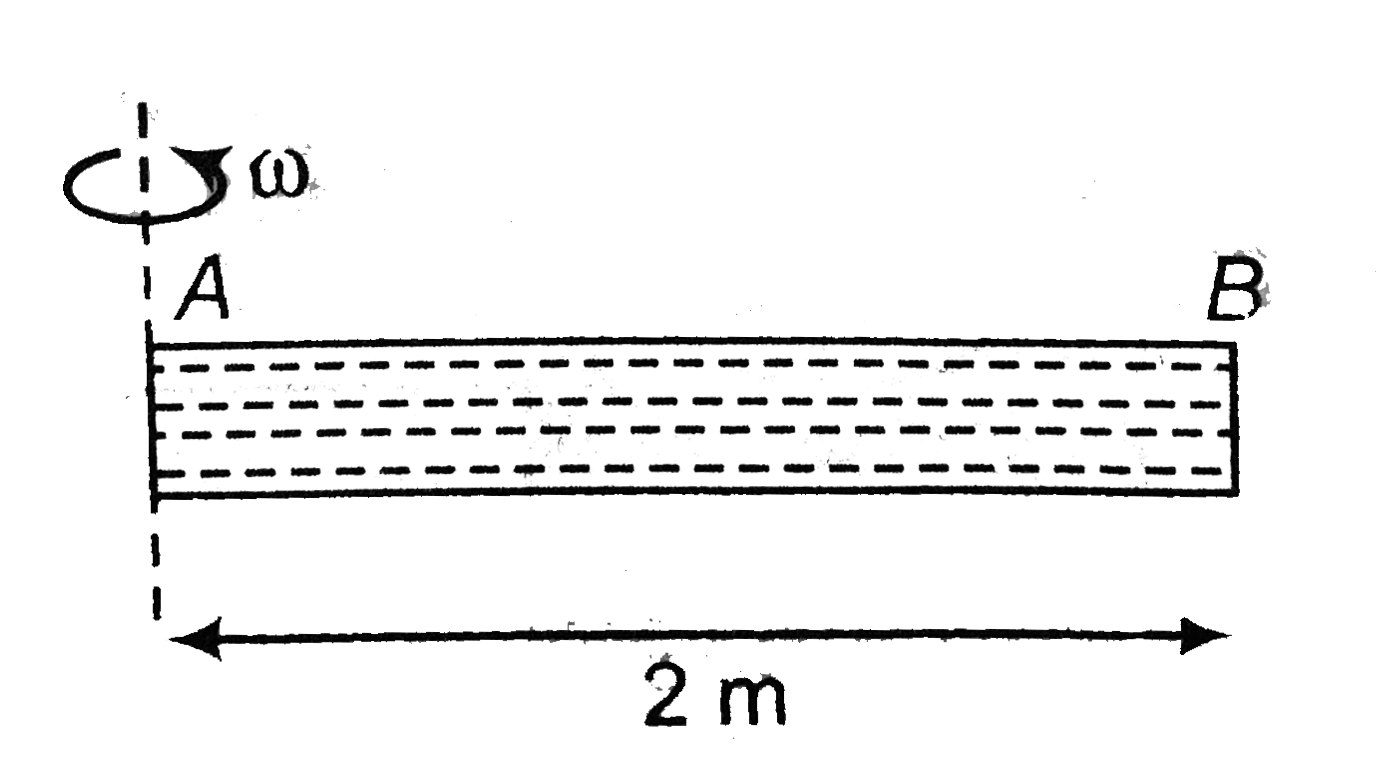 .
.
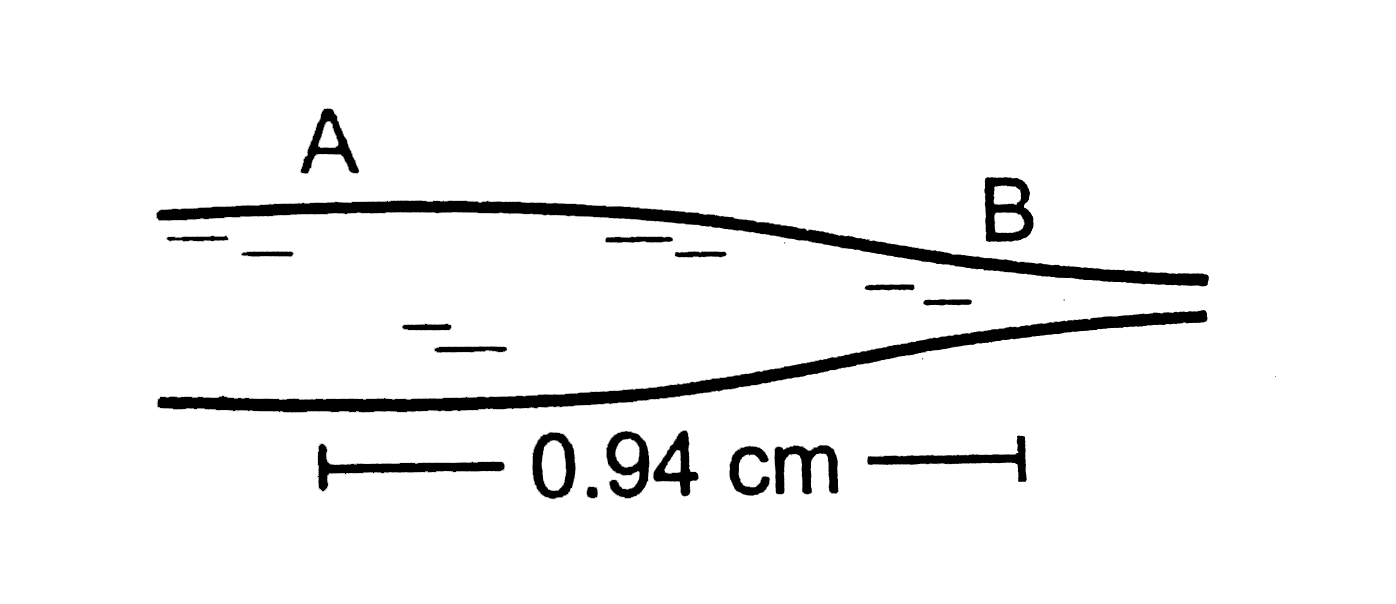
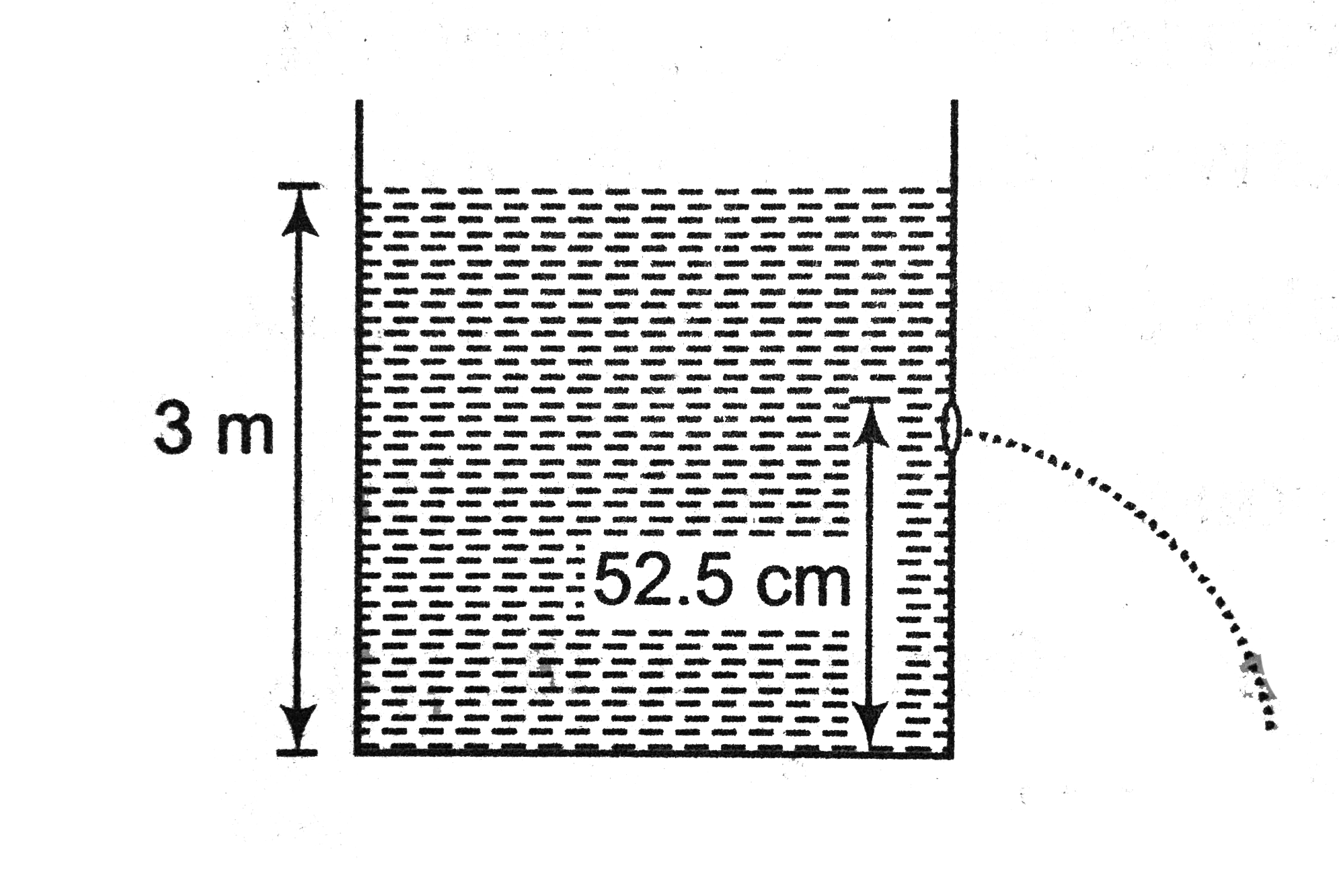
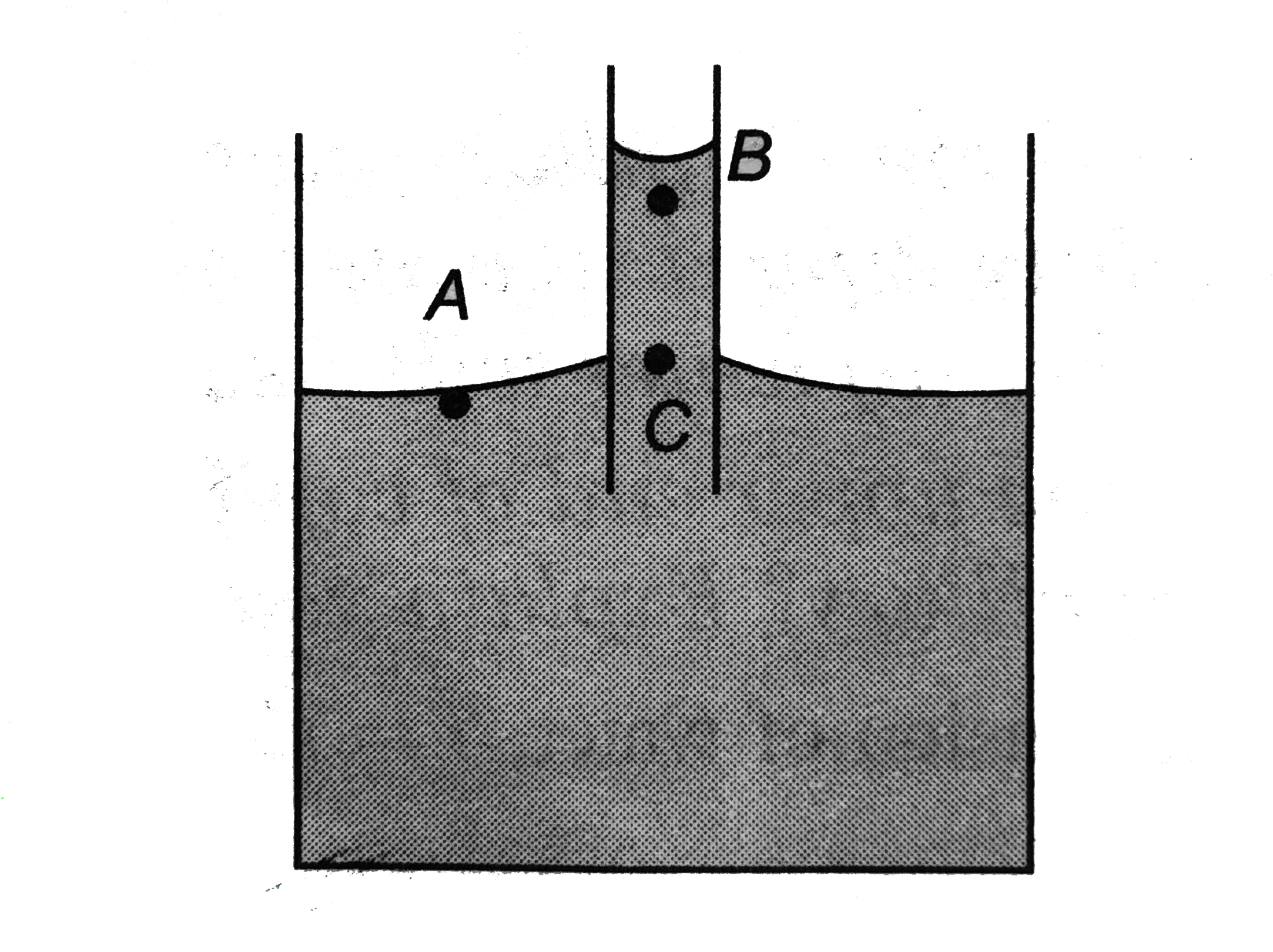
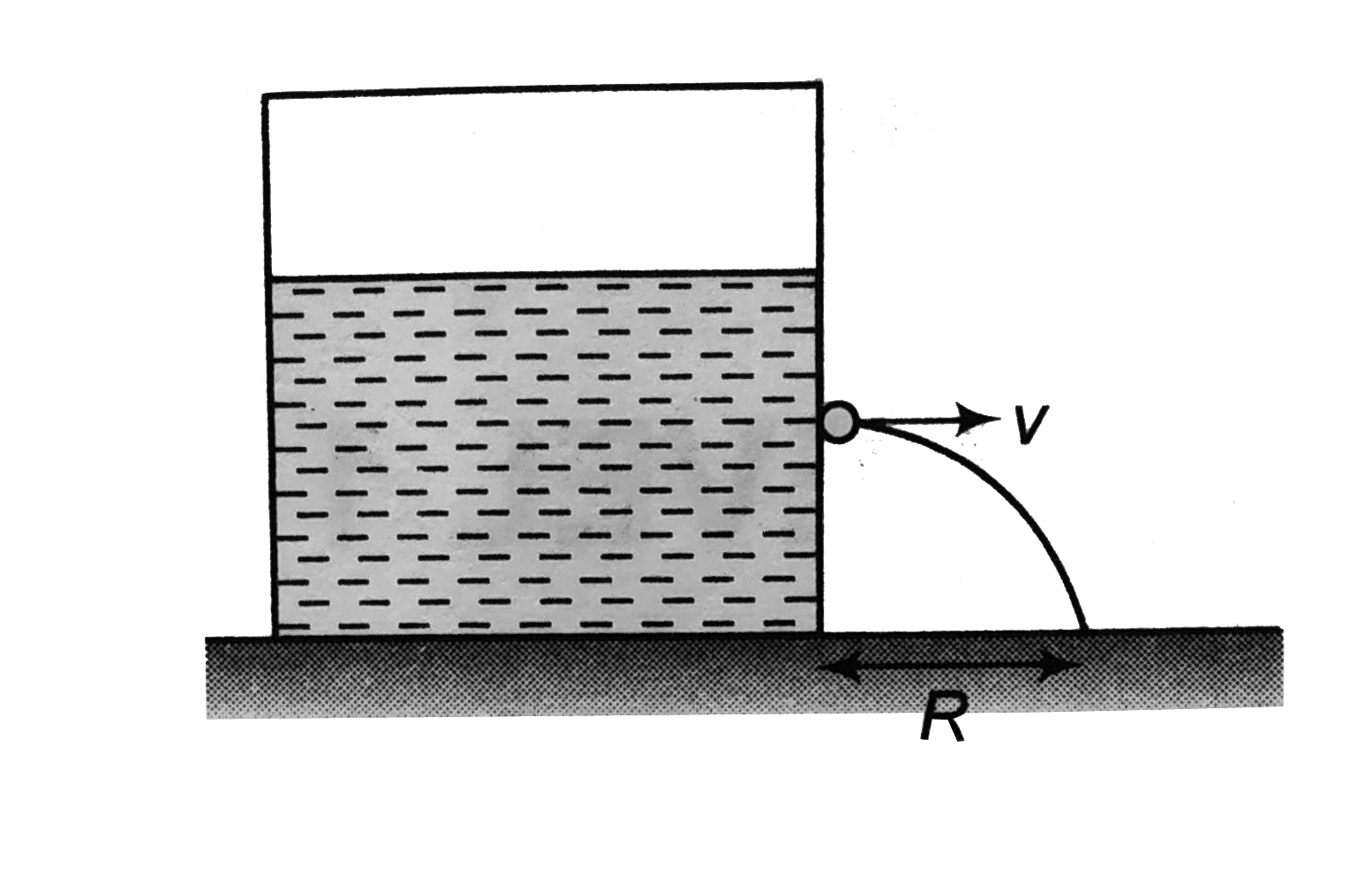 Reason: Value of v or R is independent of density of liquid.
Reason: Value of v or R is independent of density of liquid.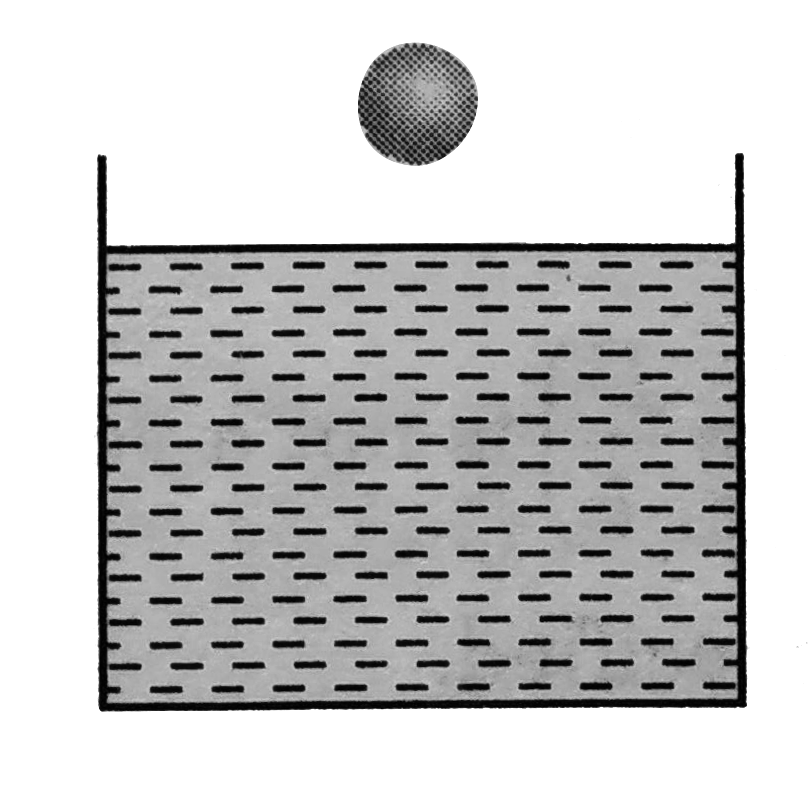

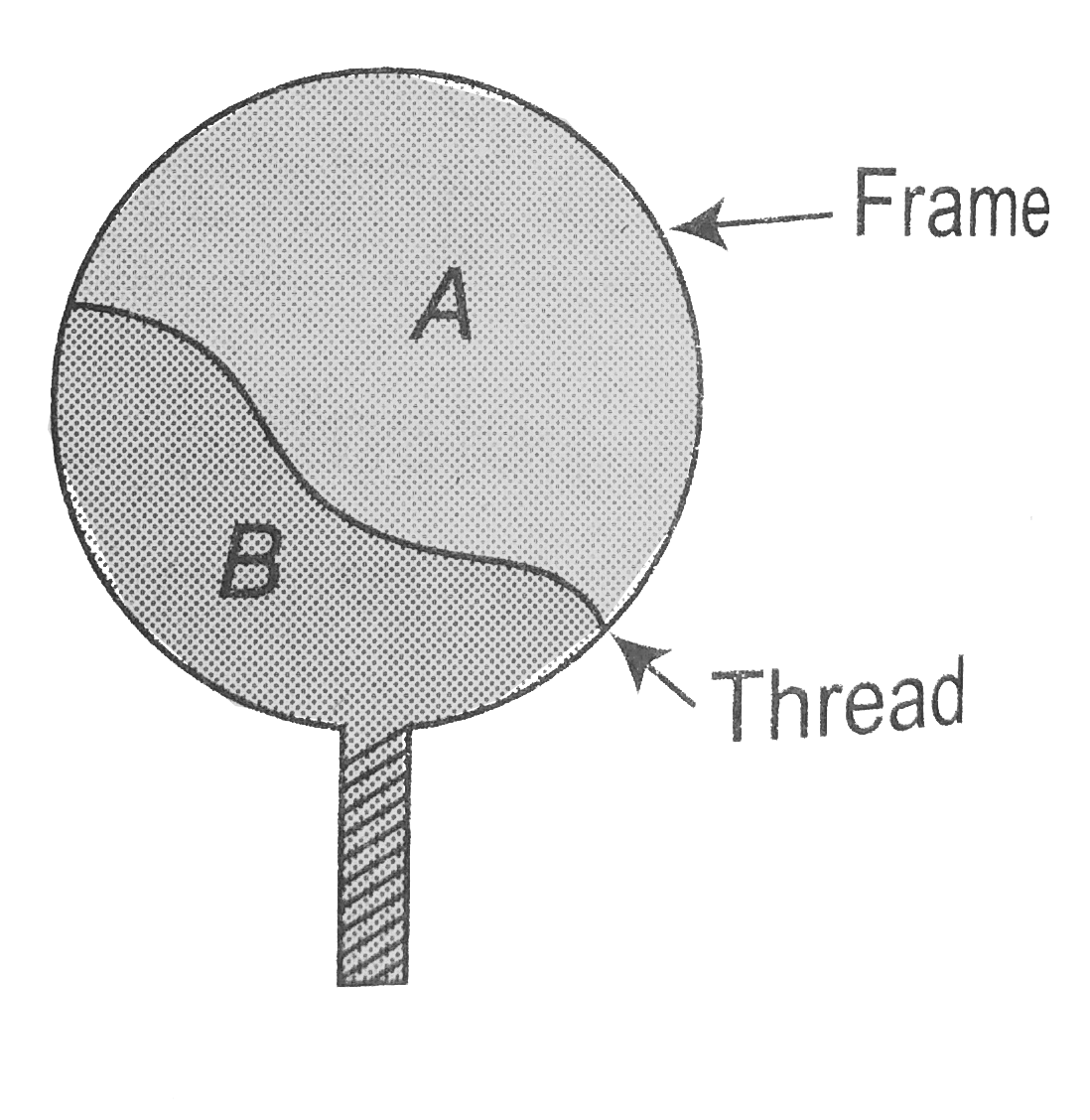
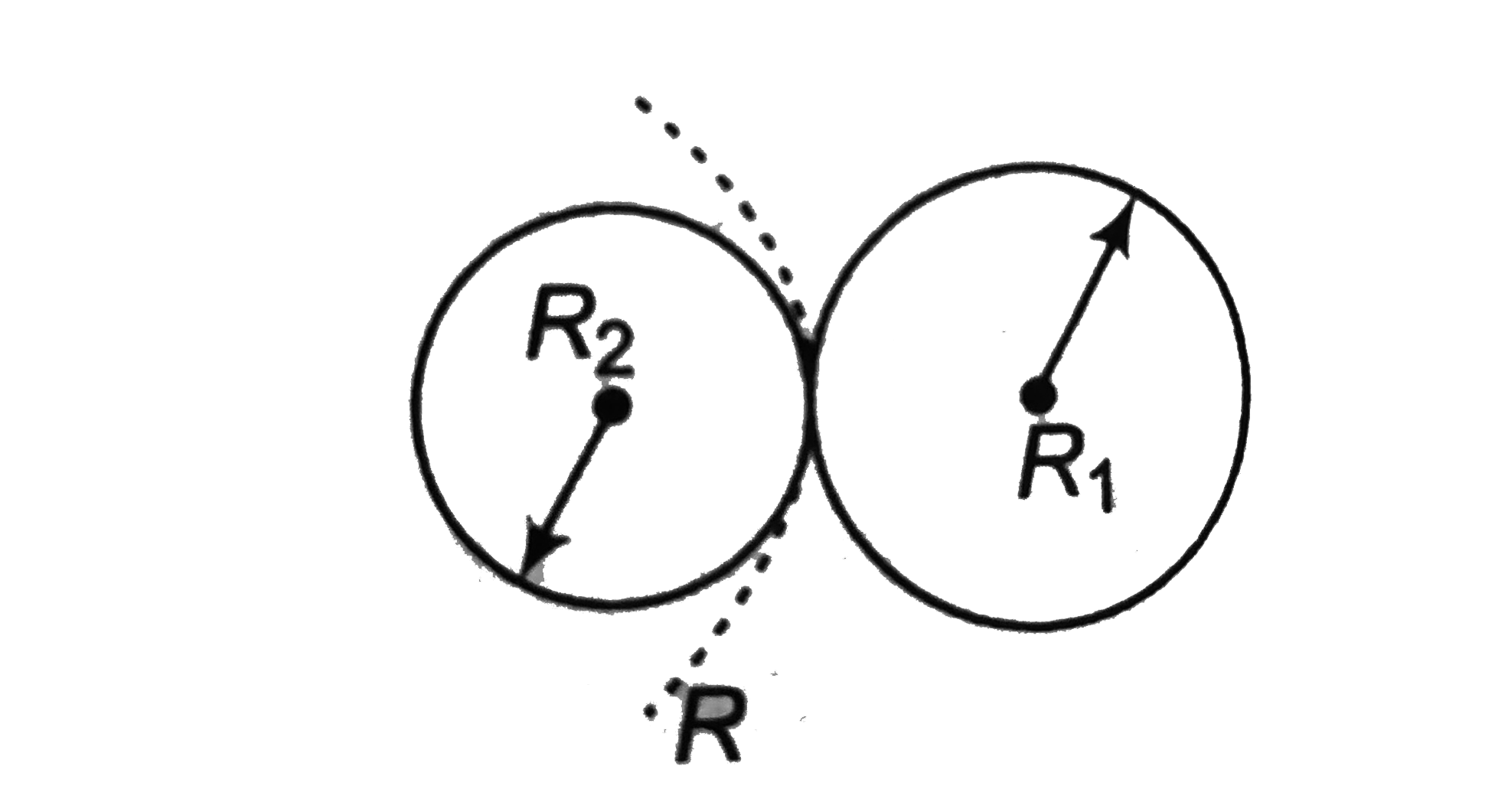 .
.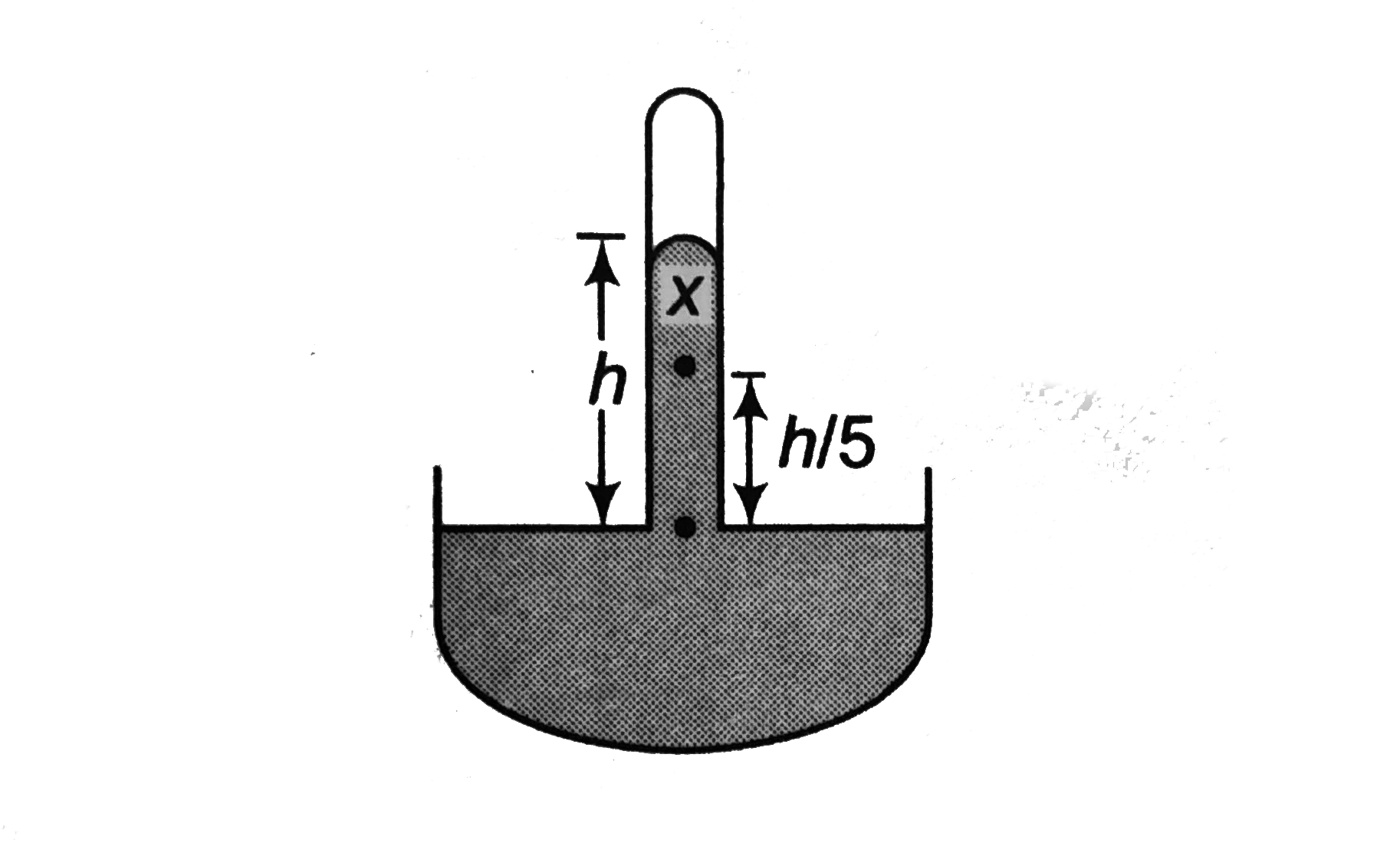
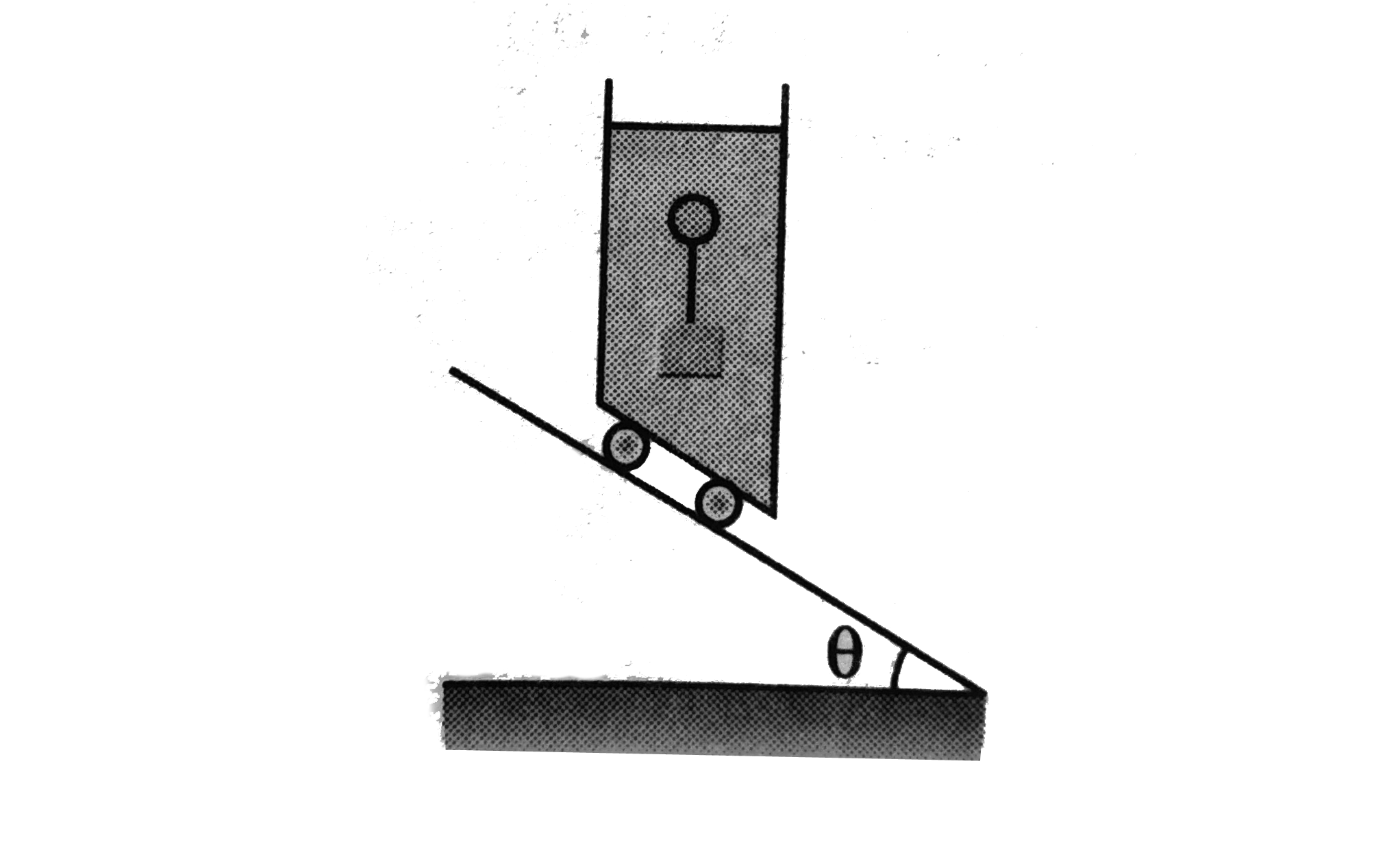
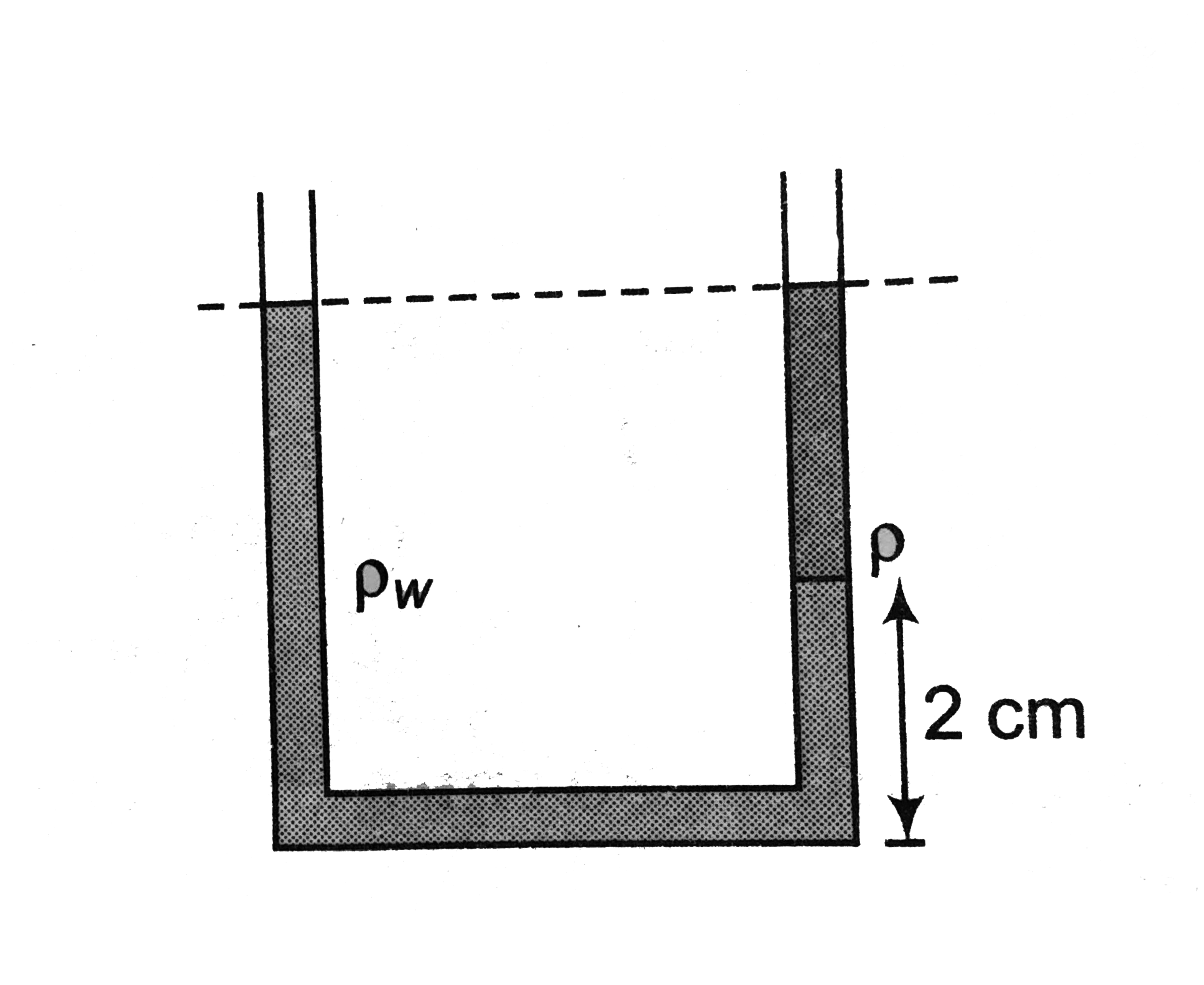 .
.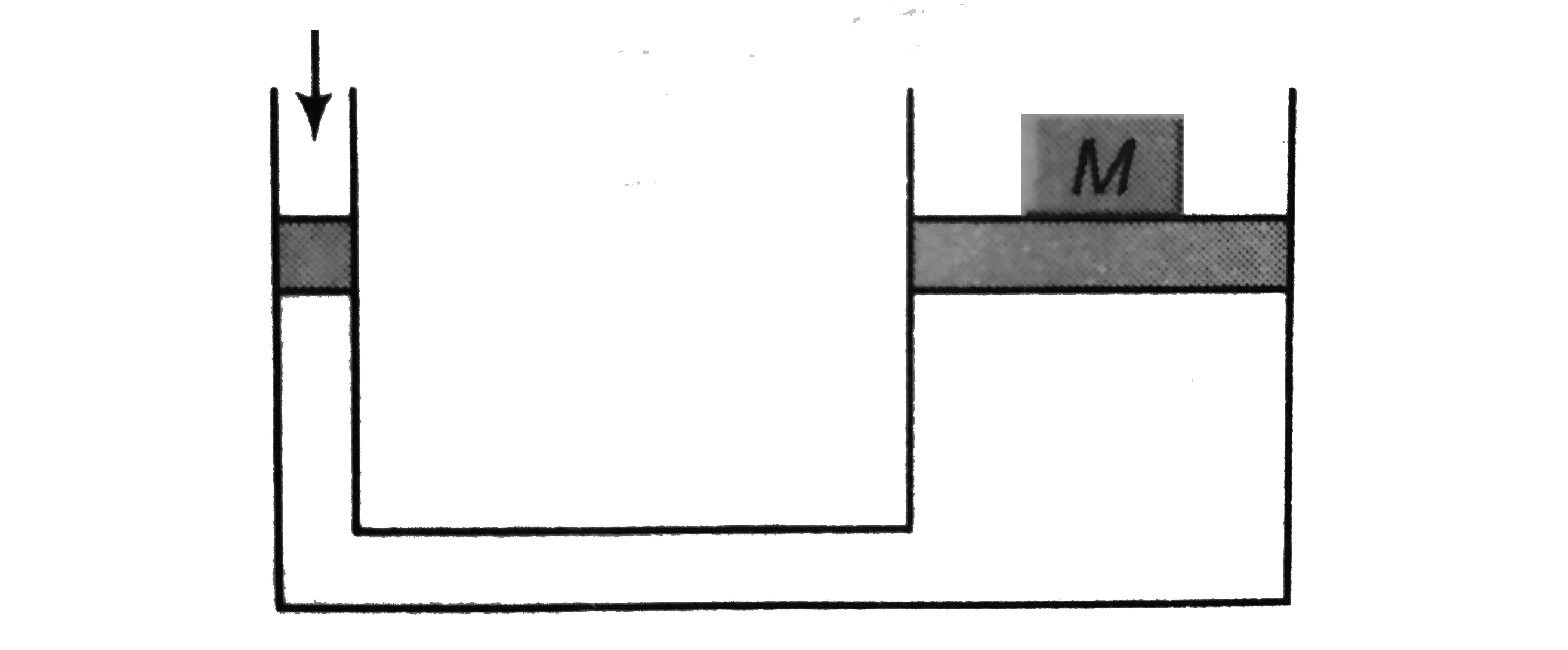
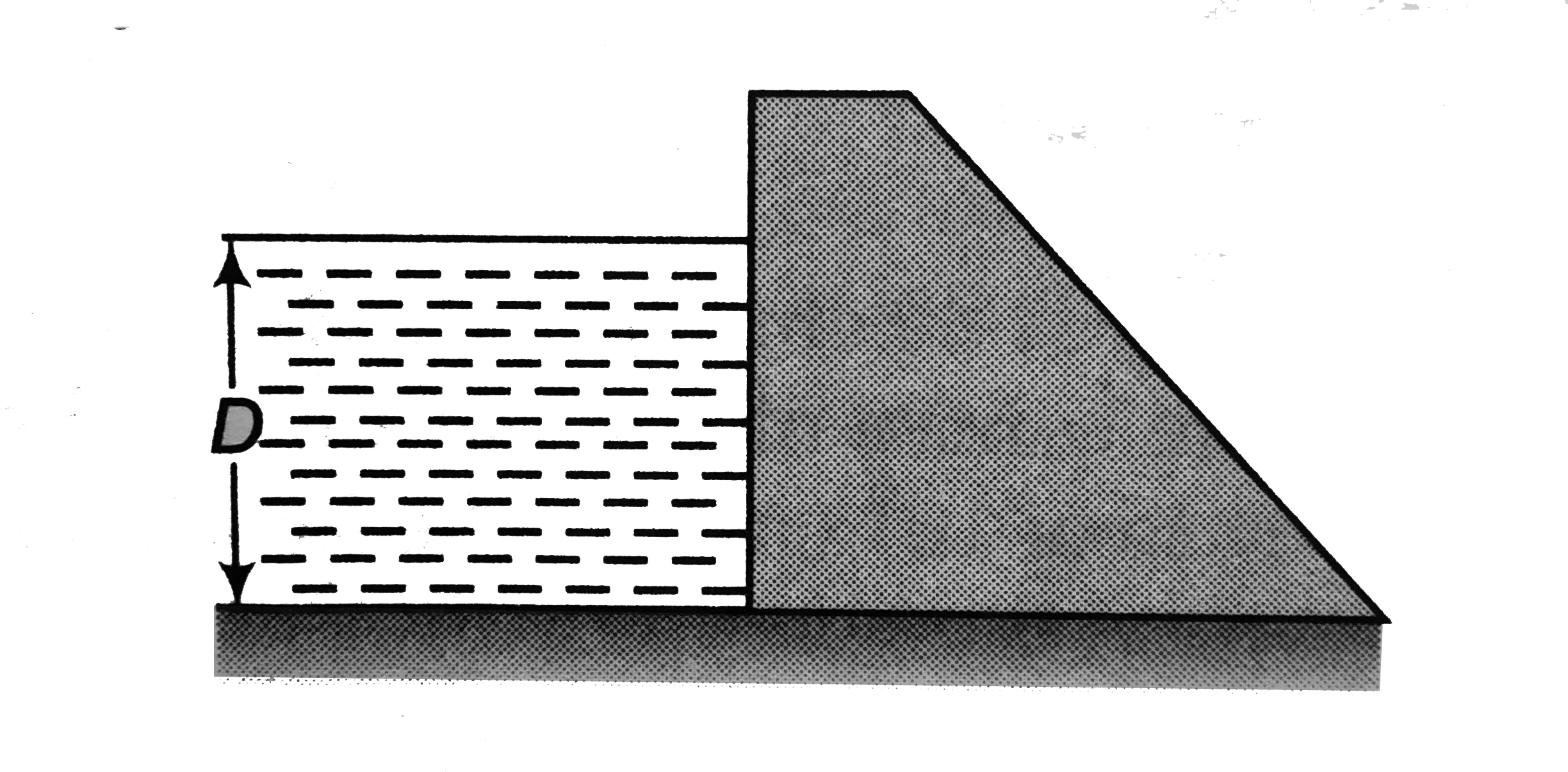
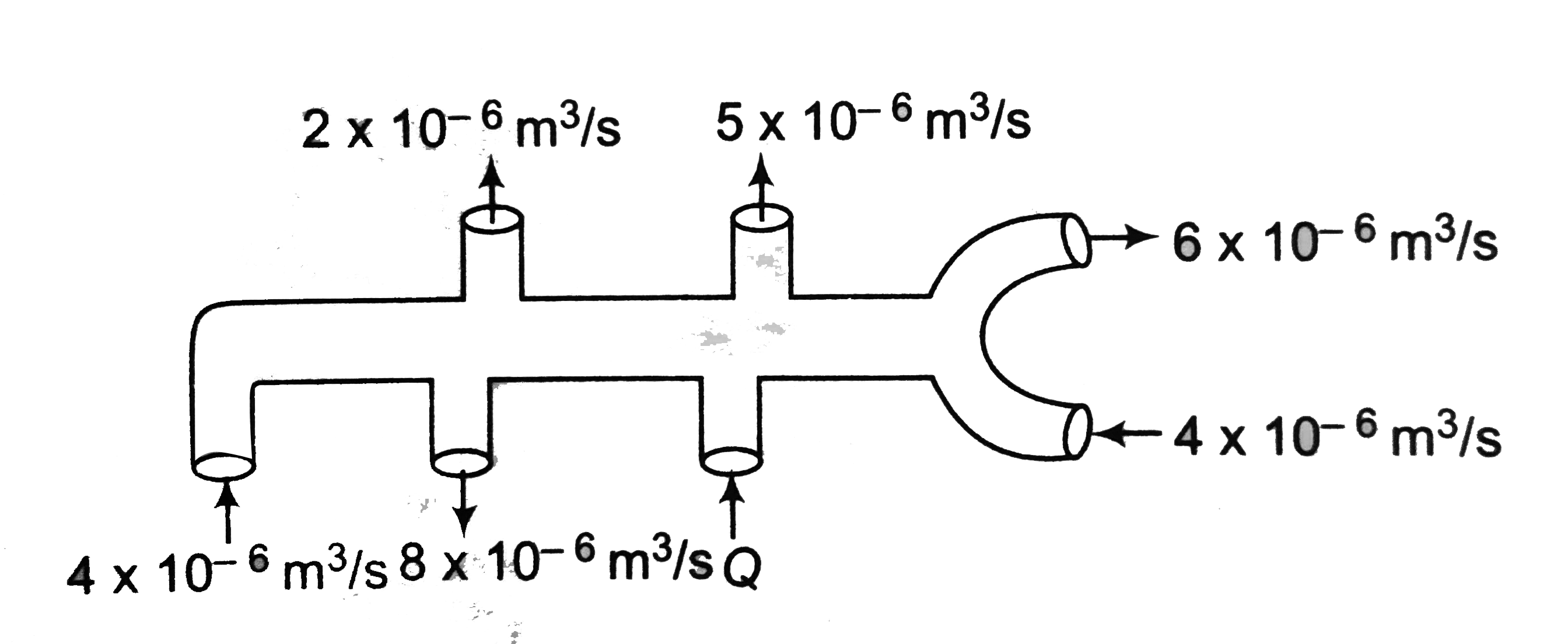
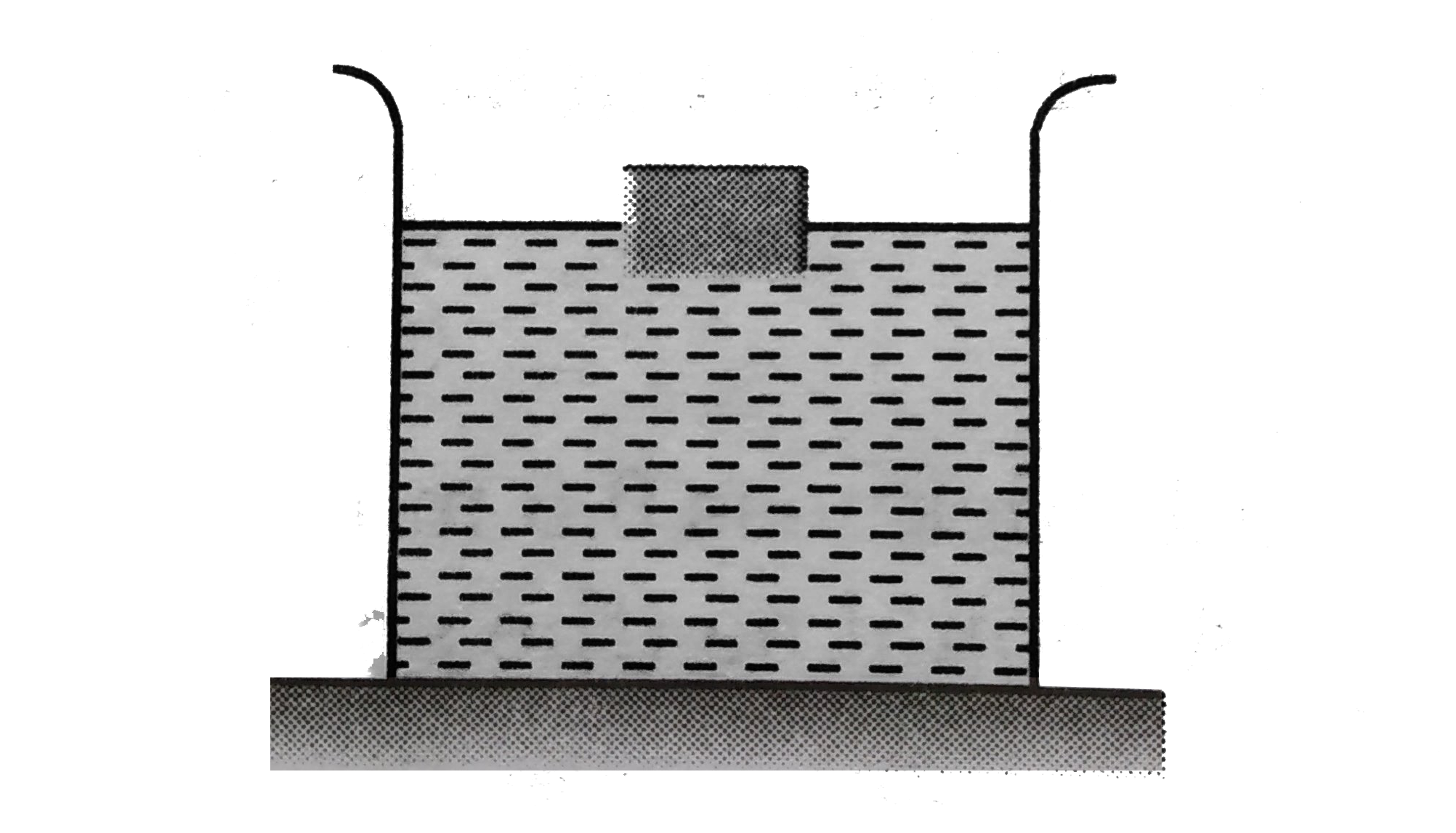
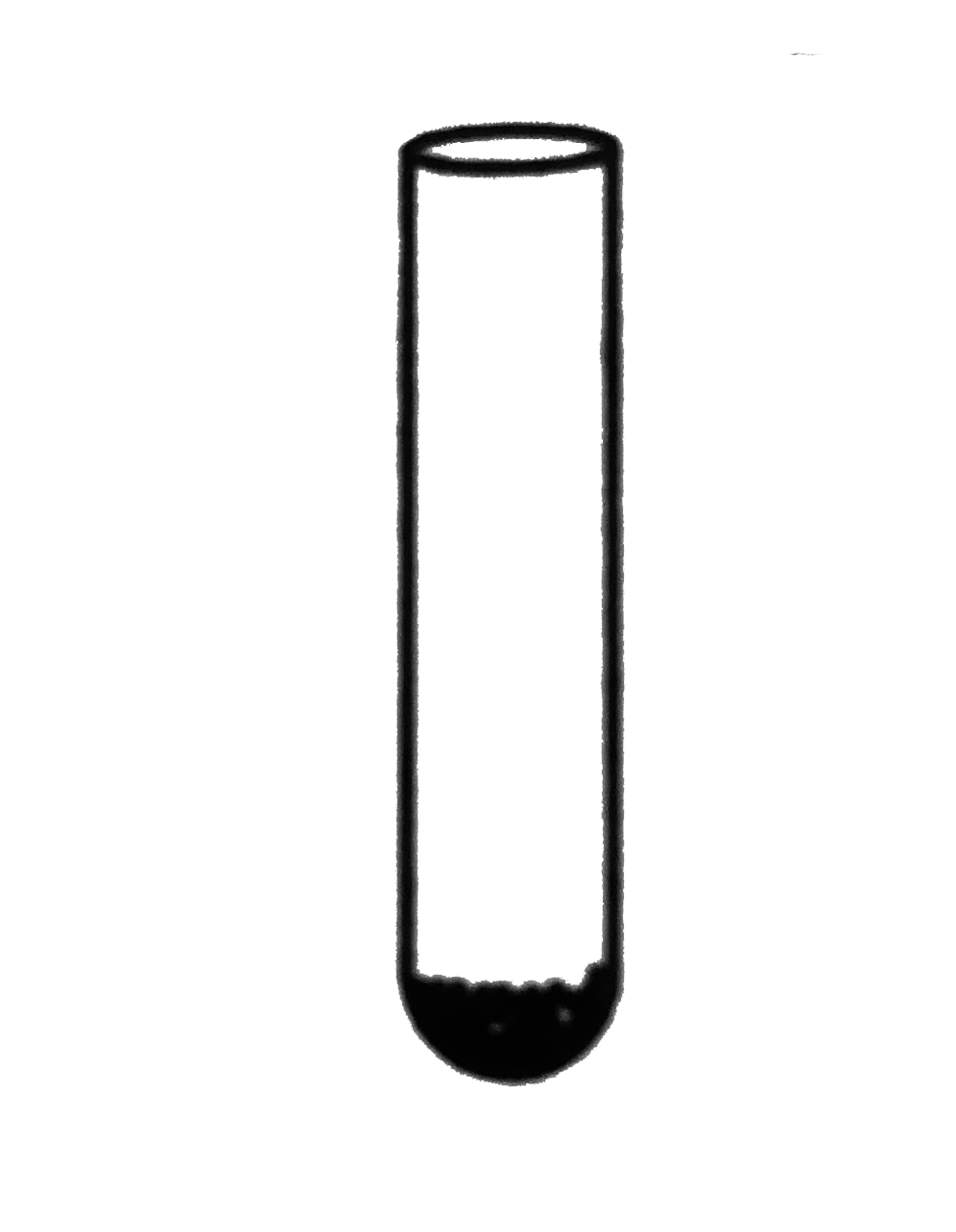
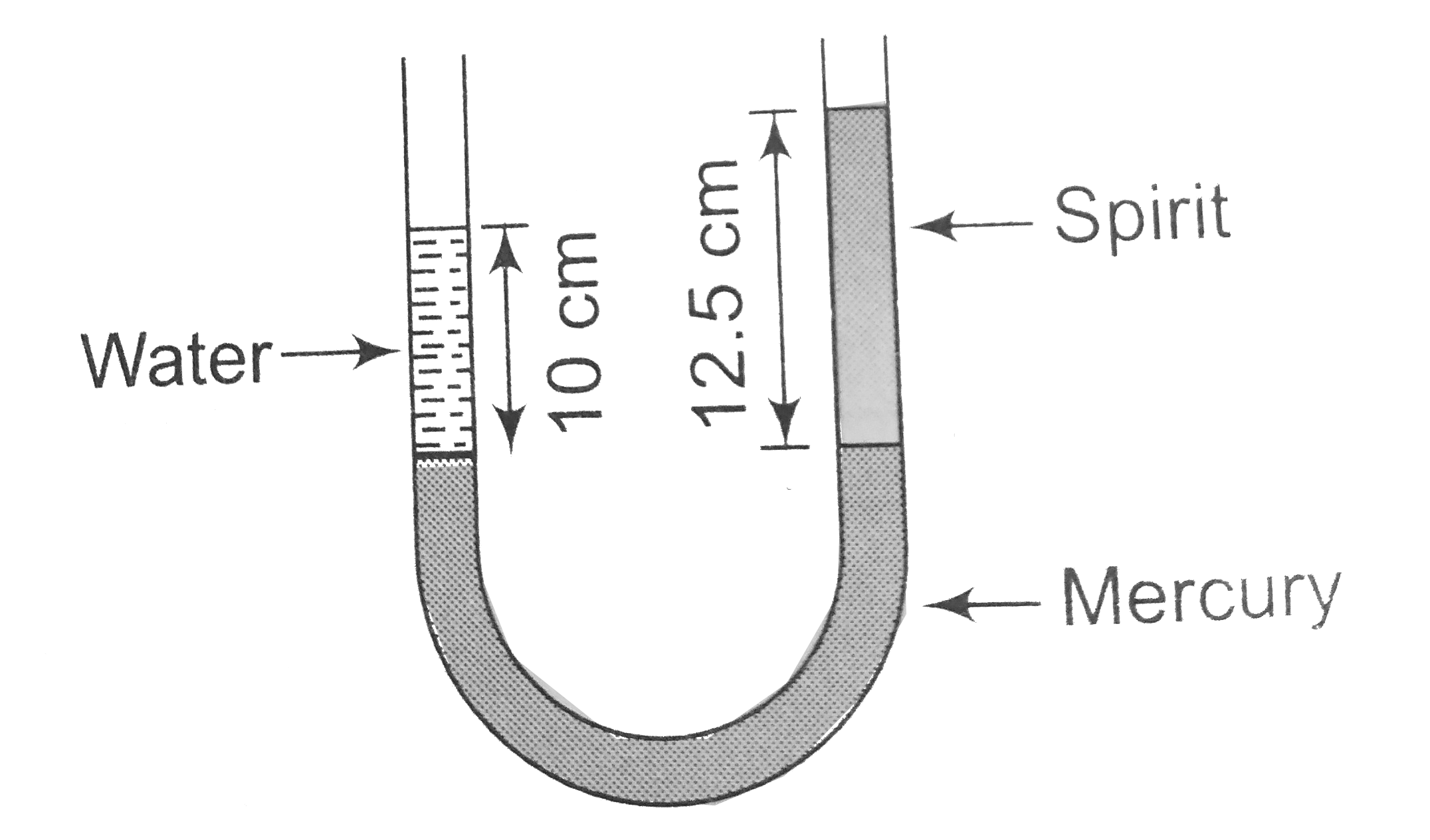
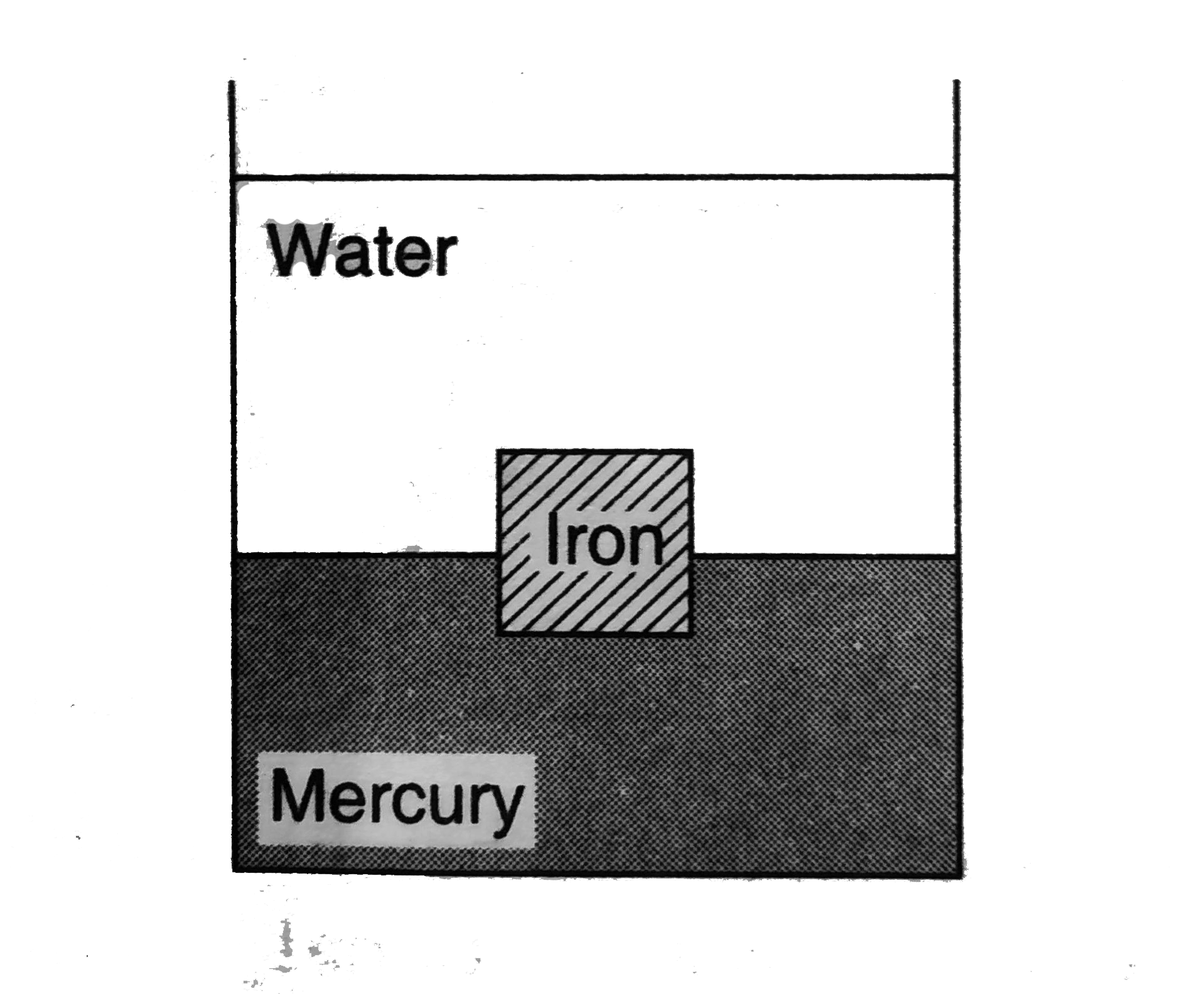
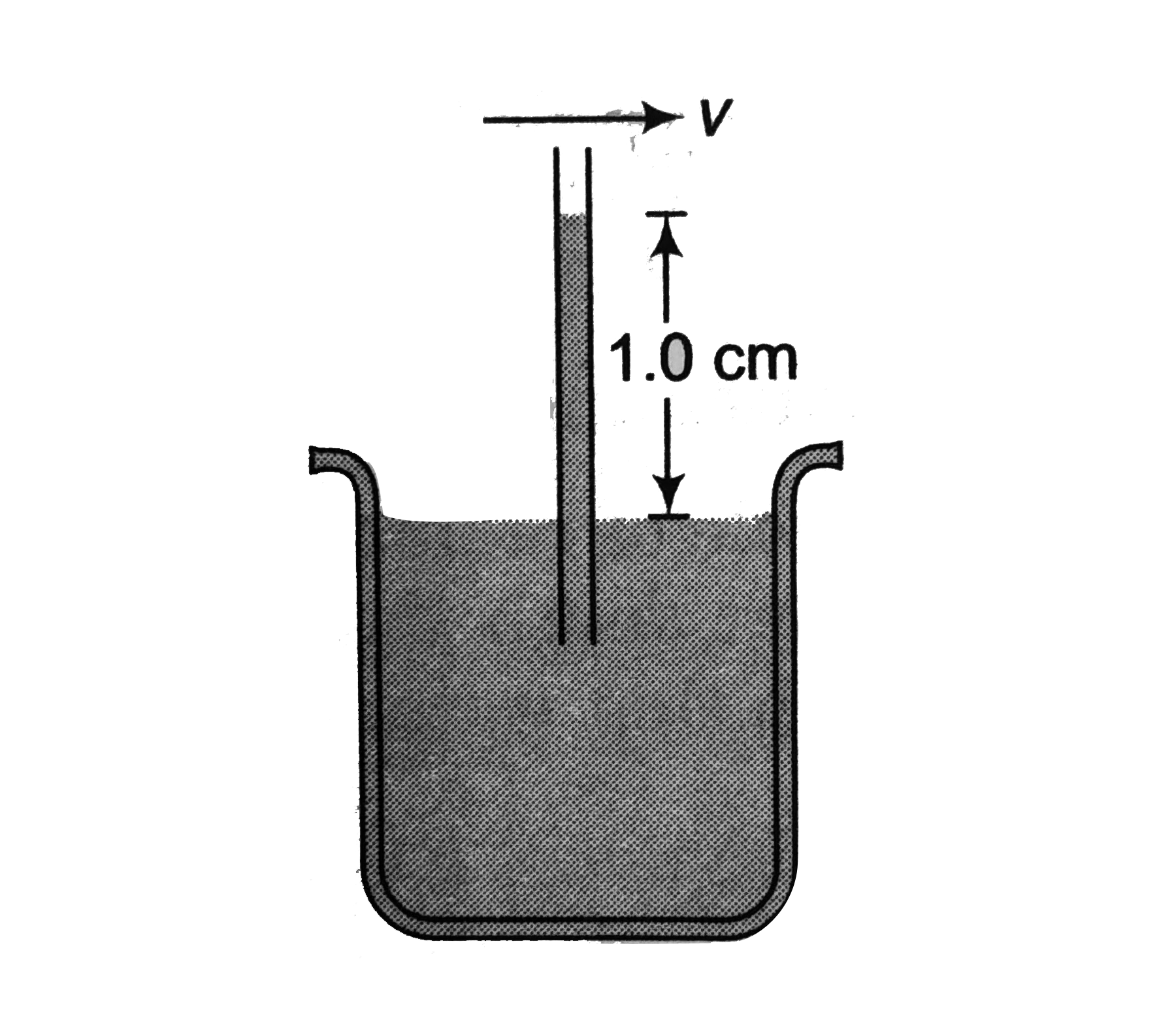
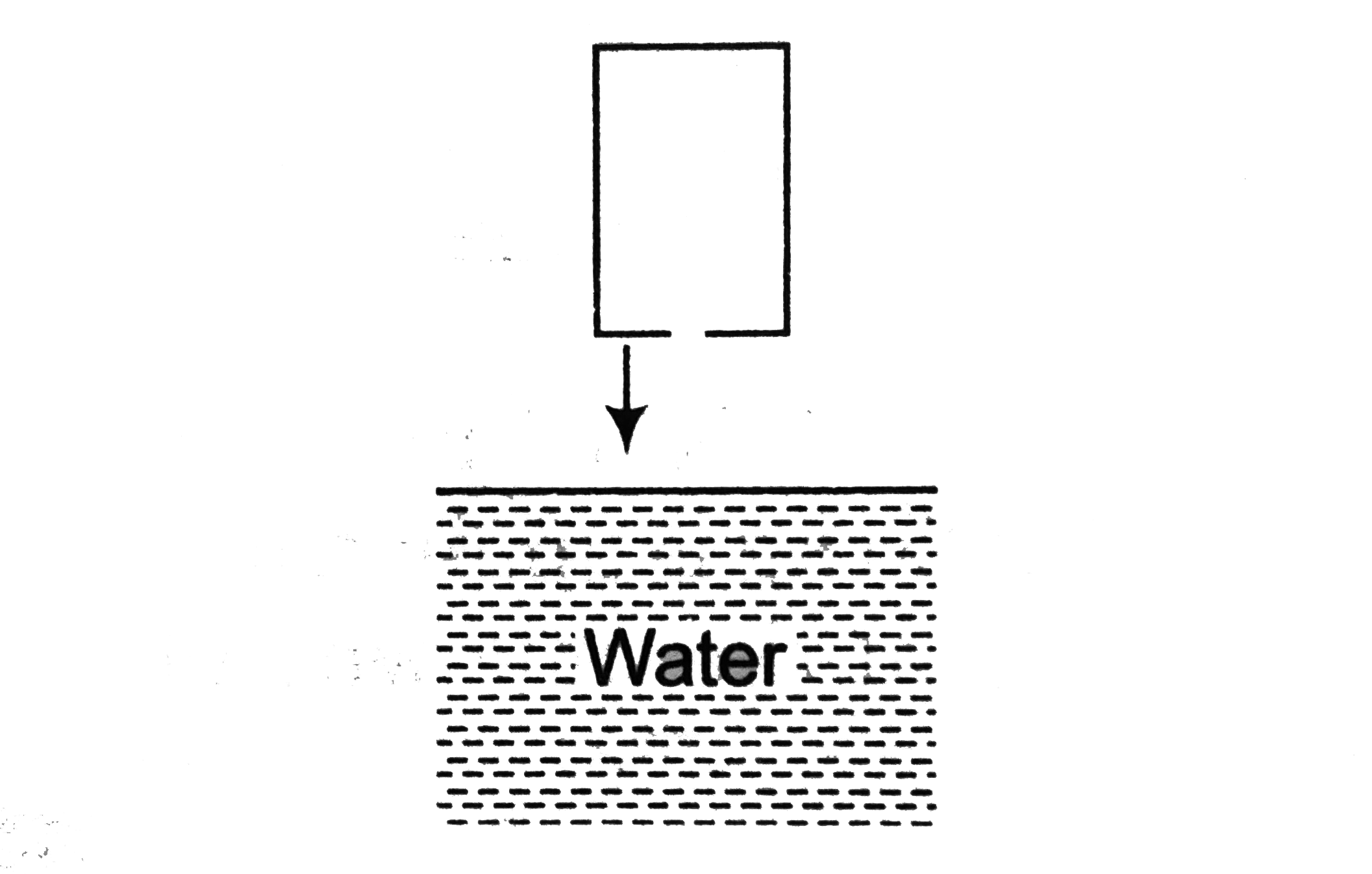
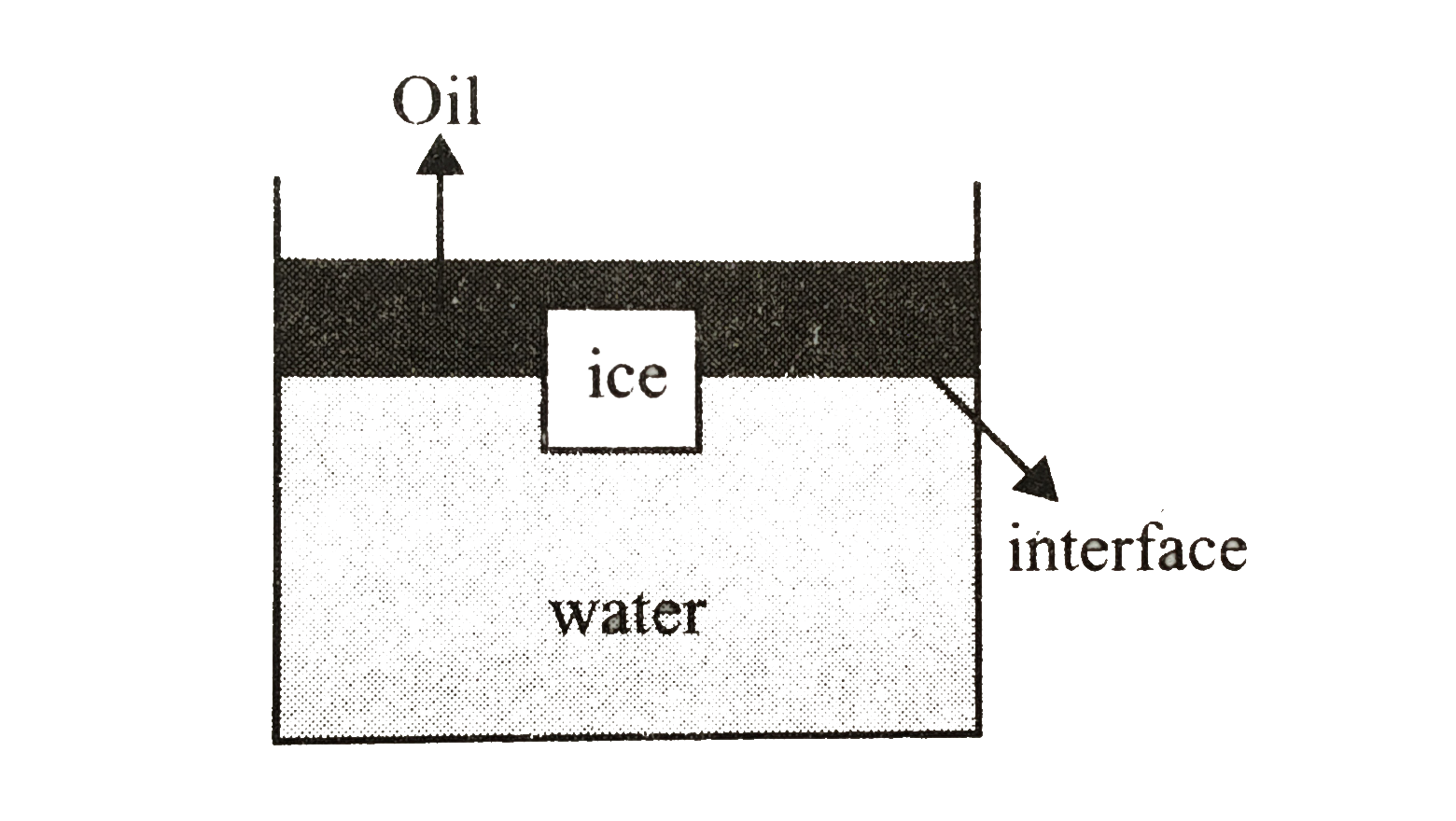
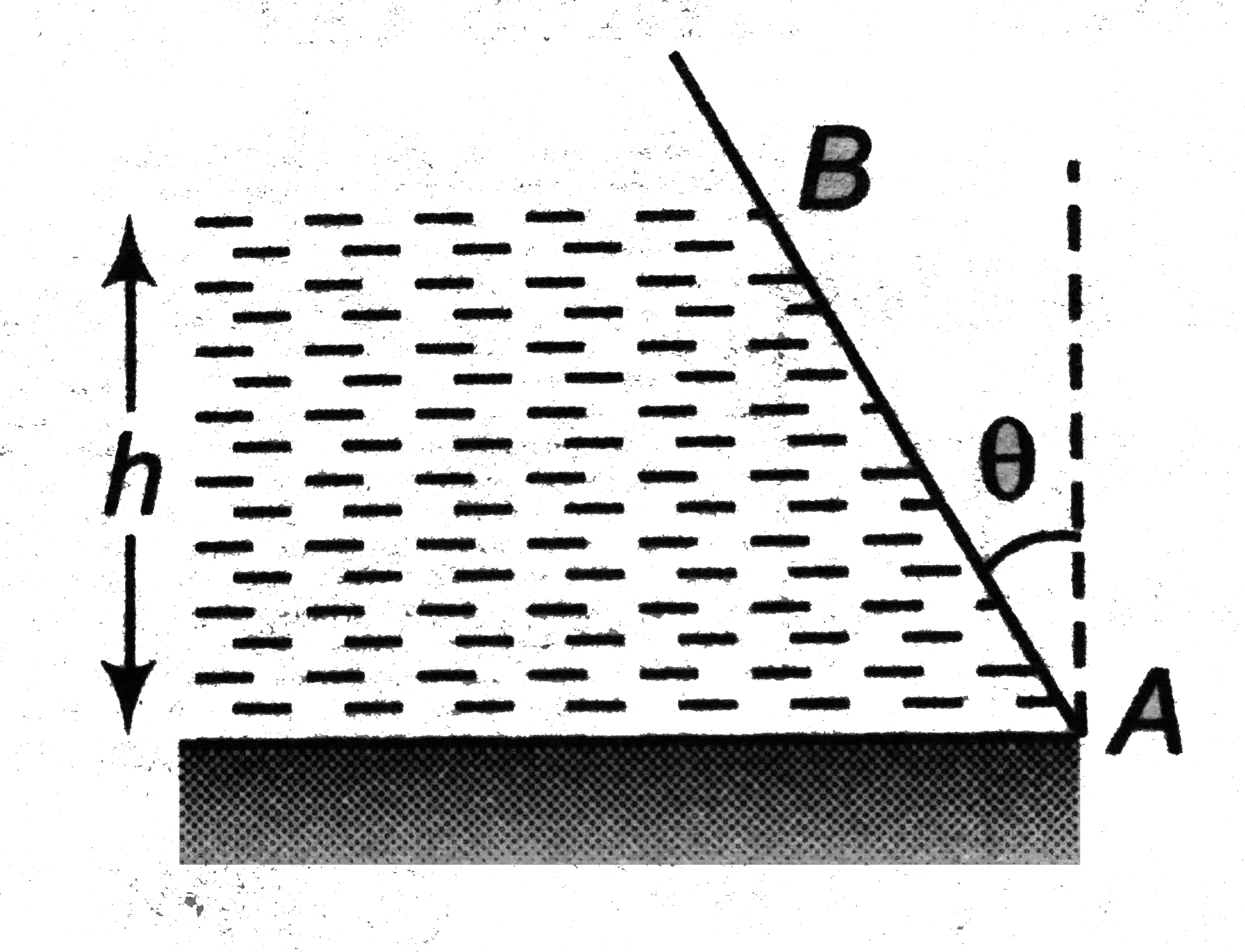
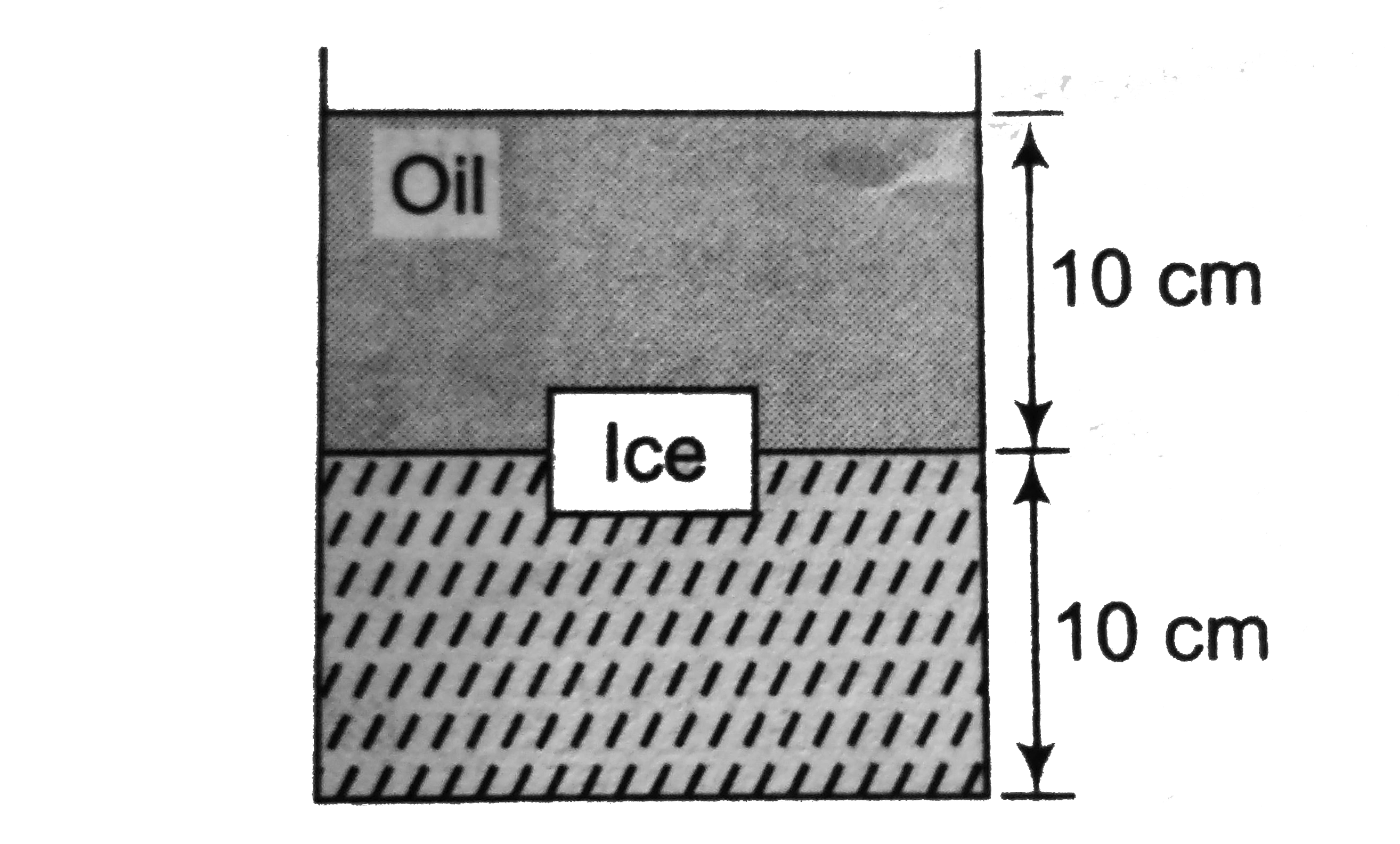
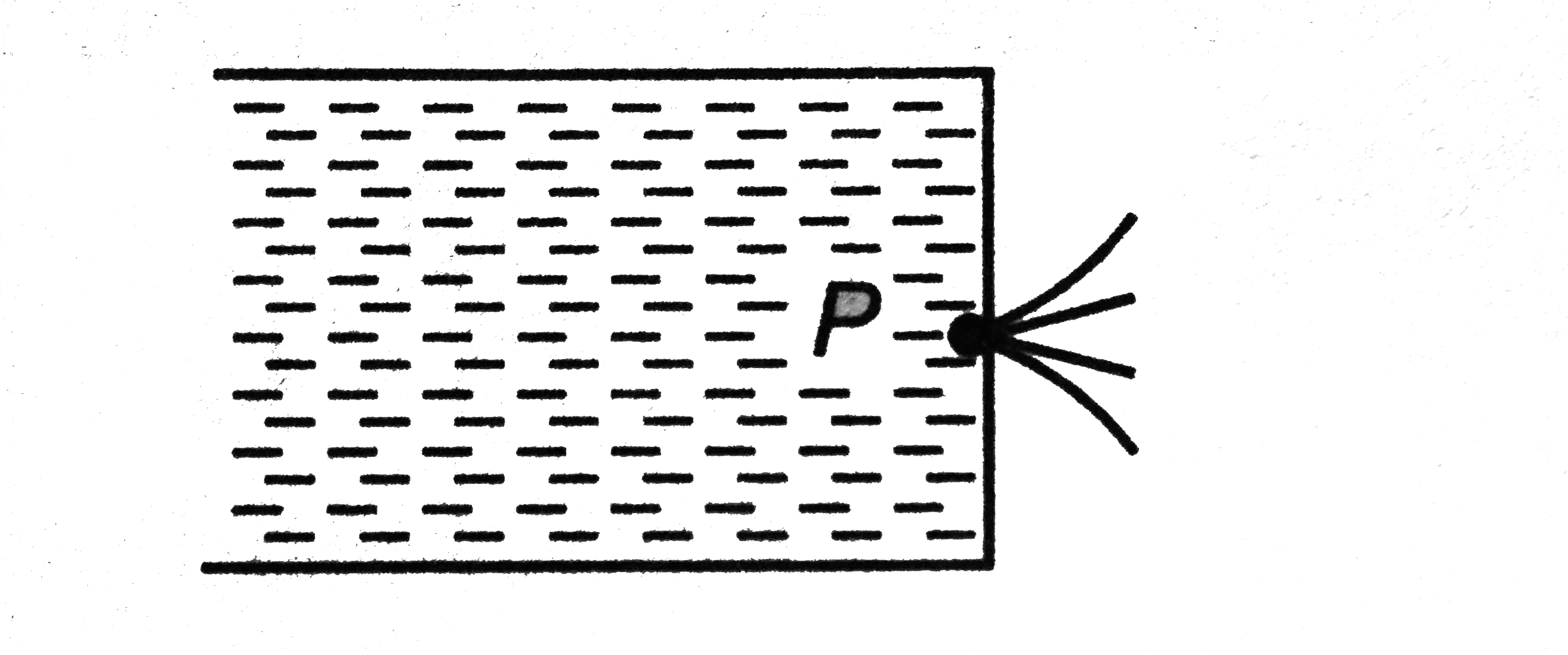
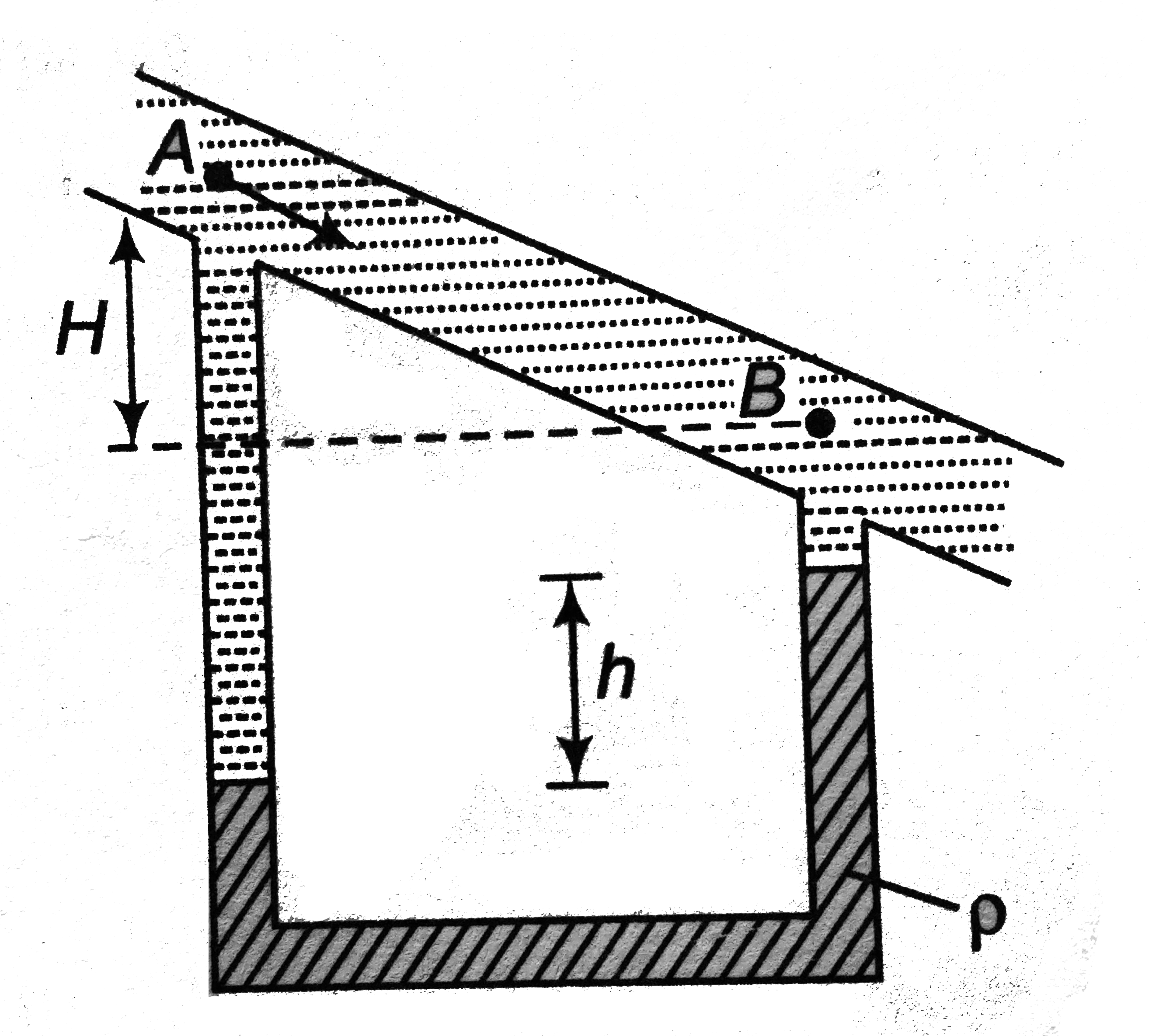
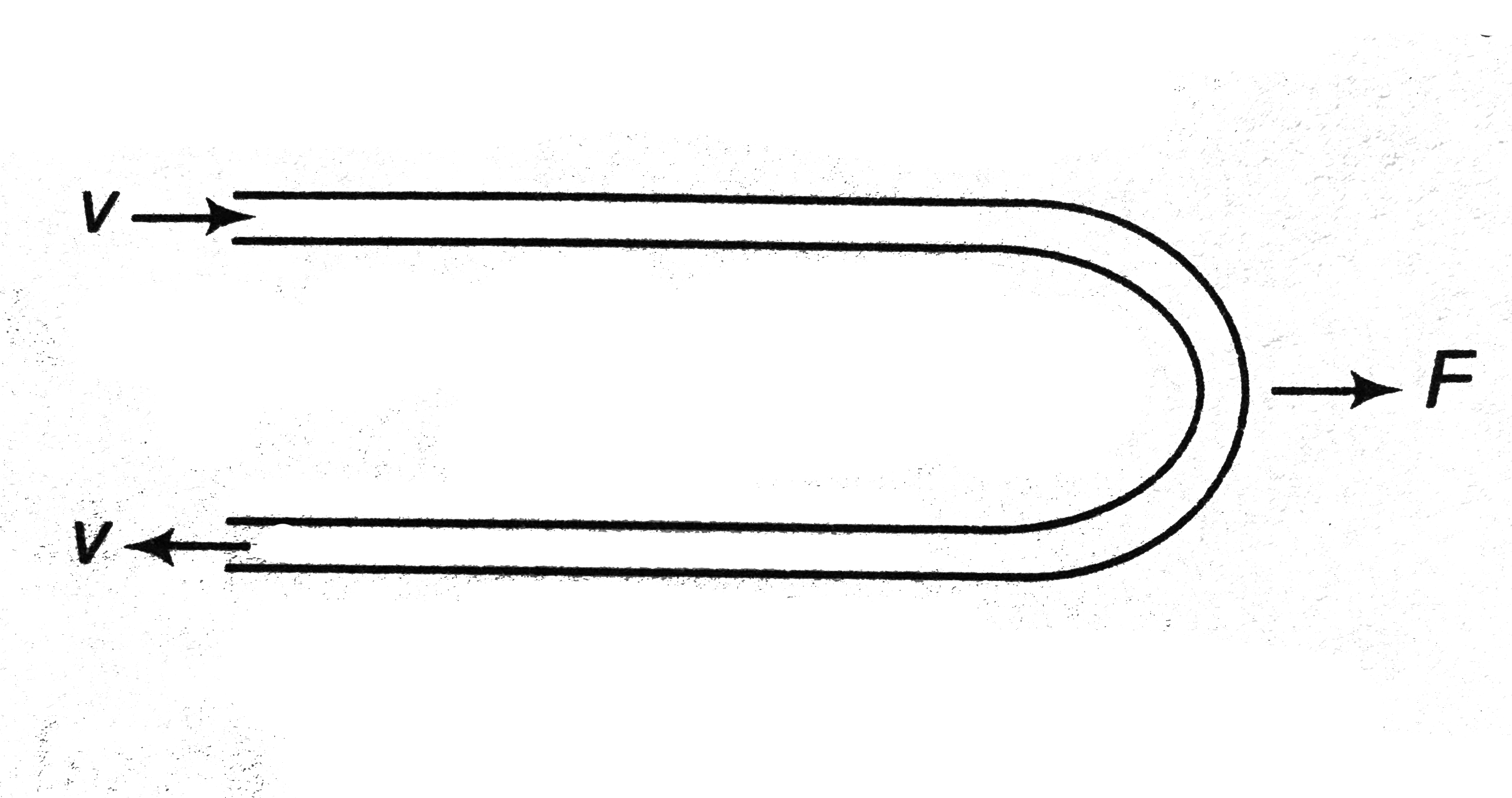
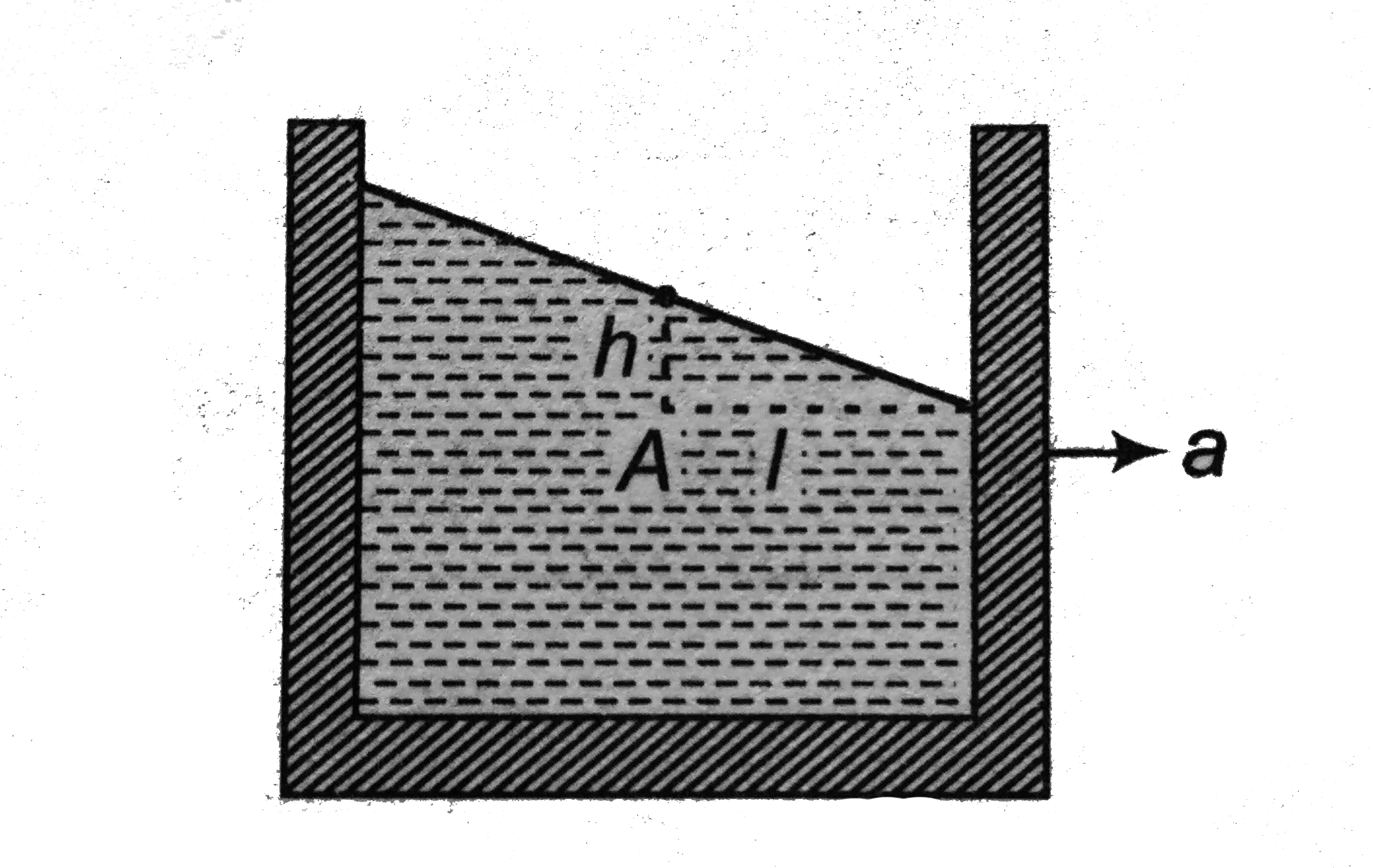
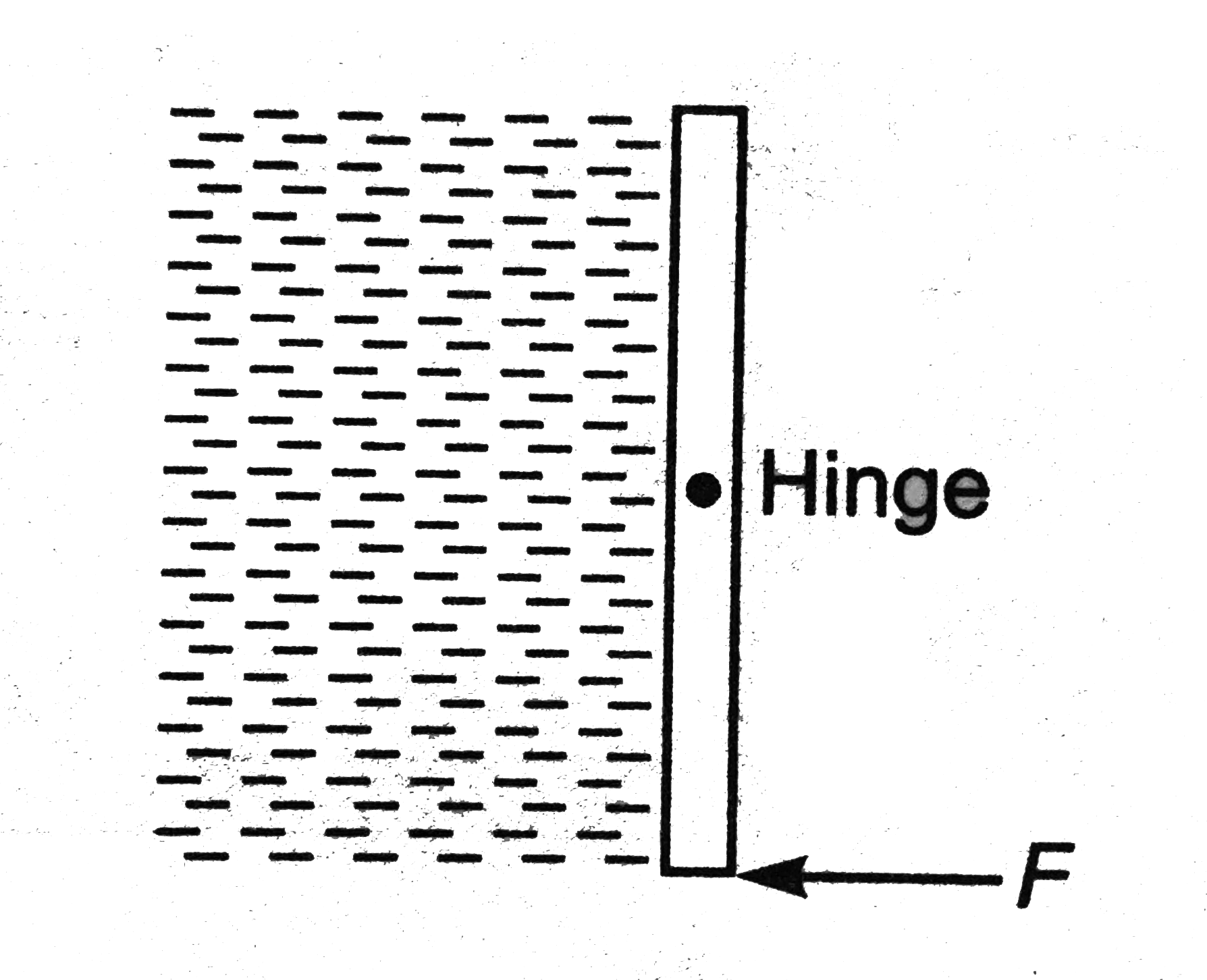
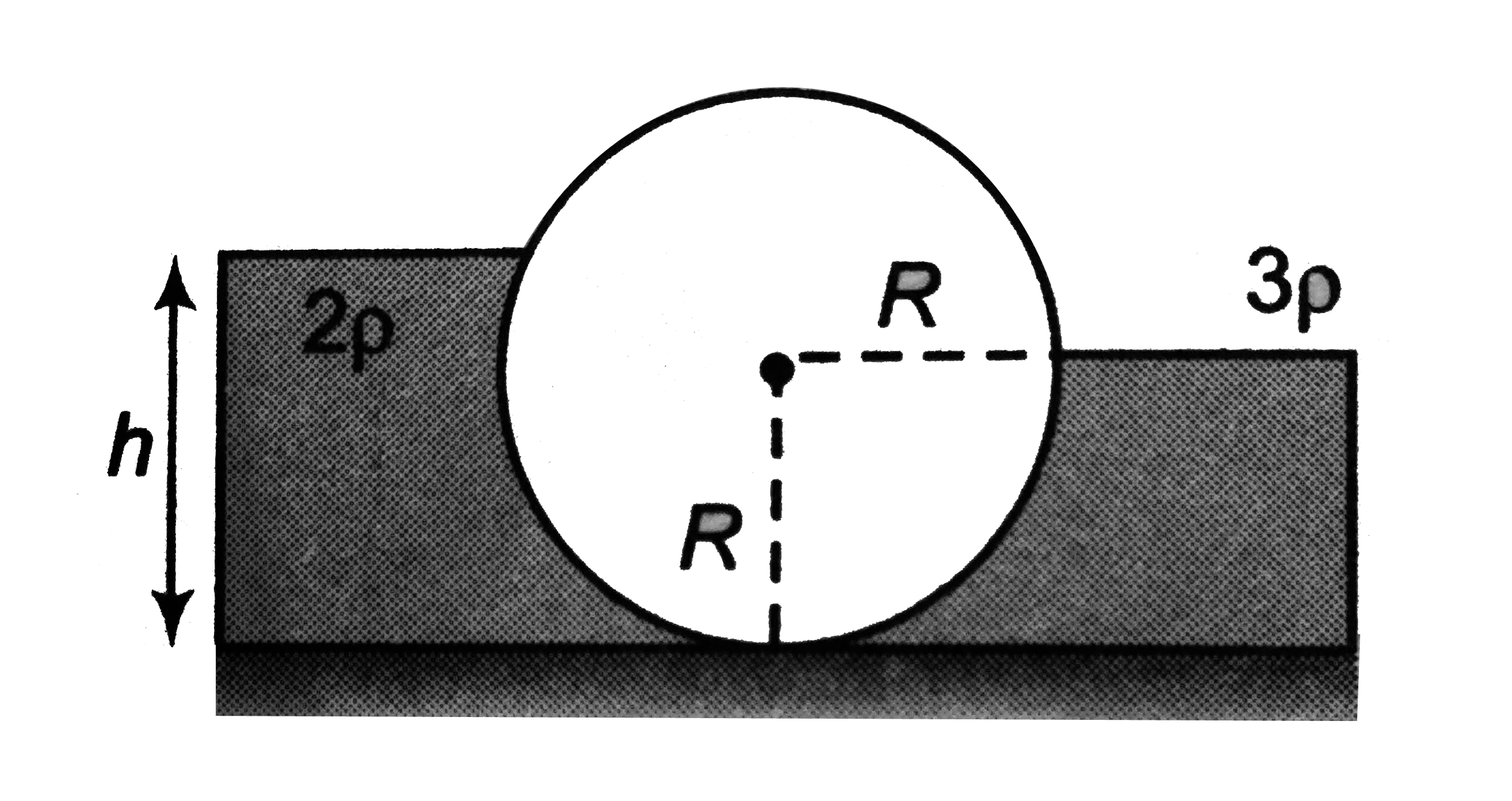
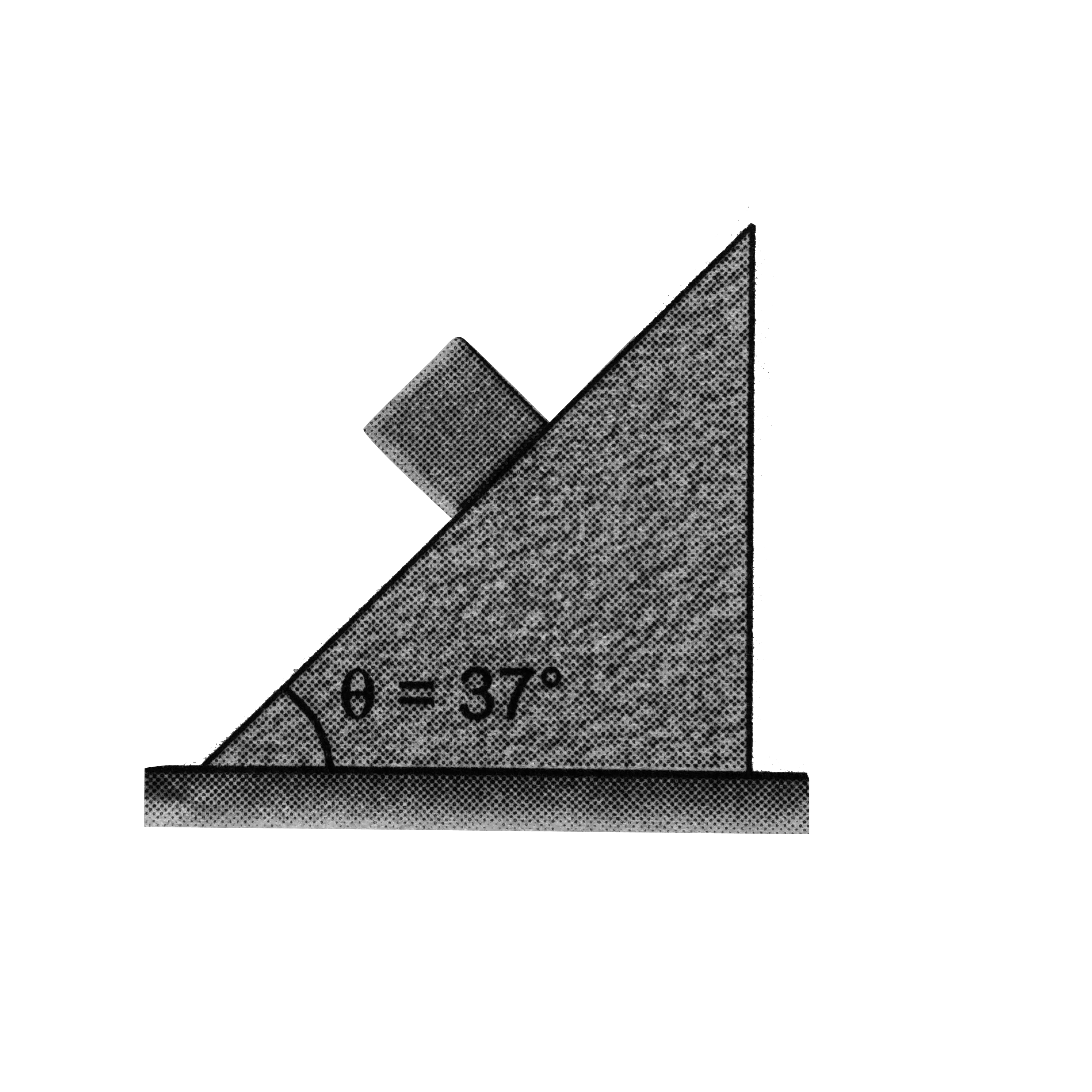
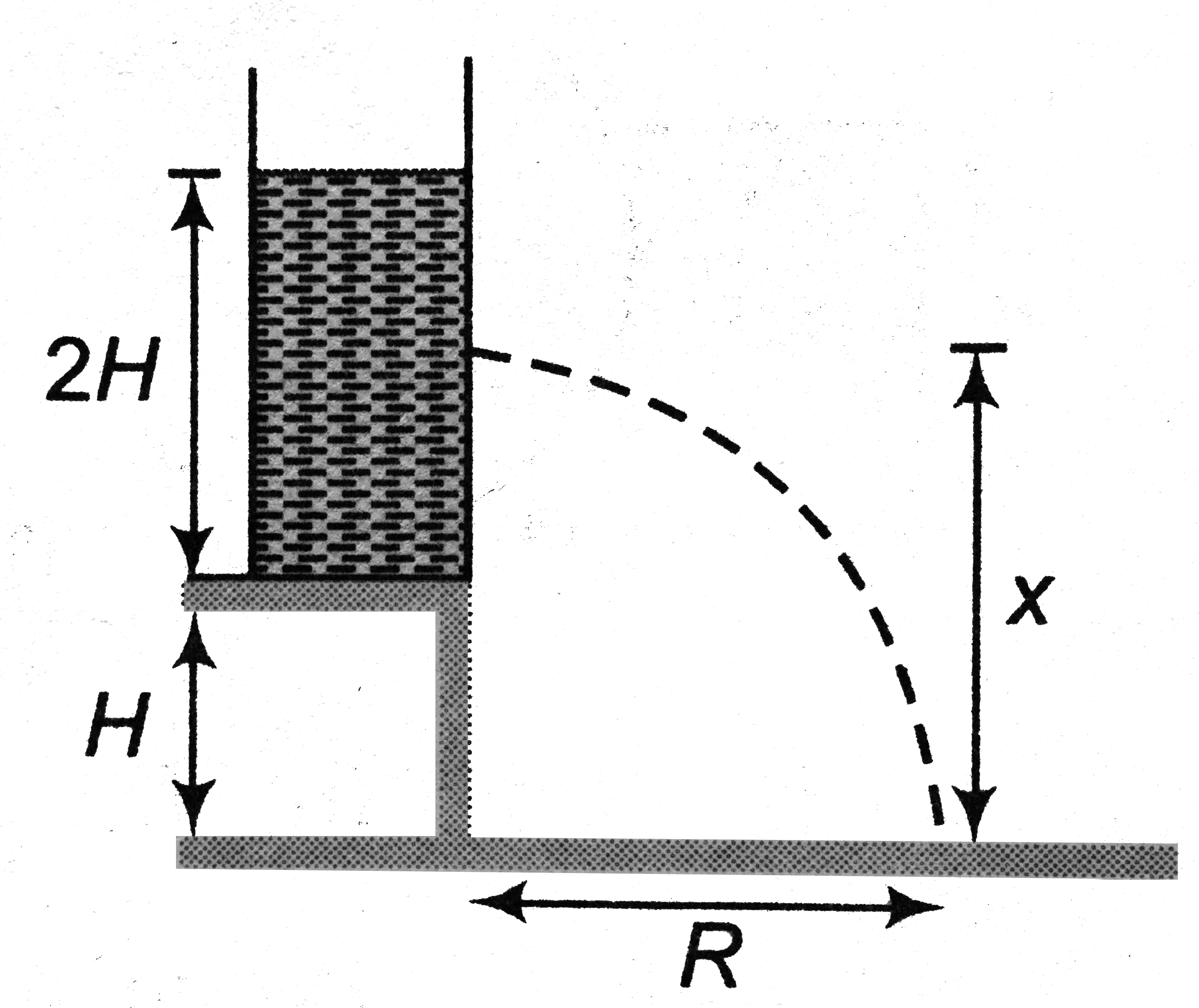 .
.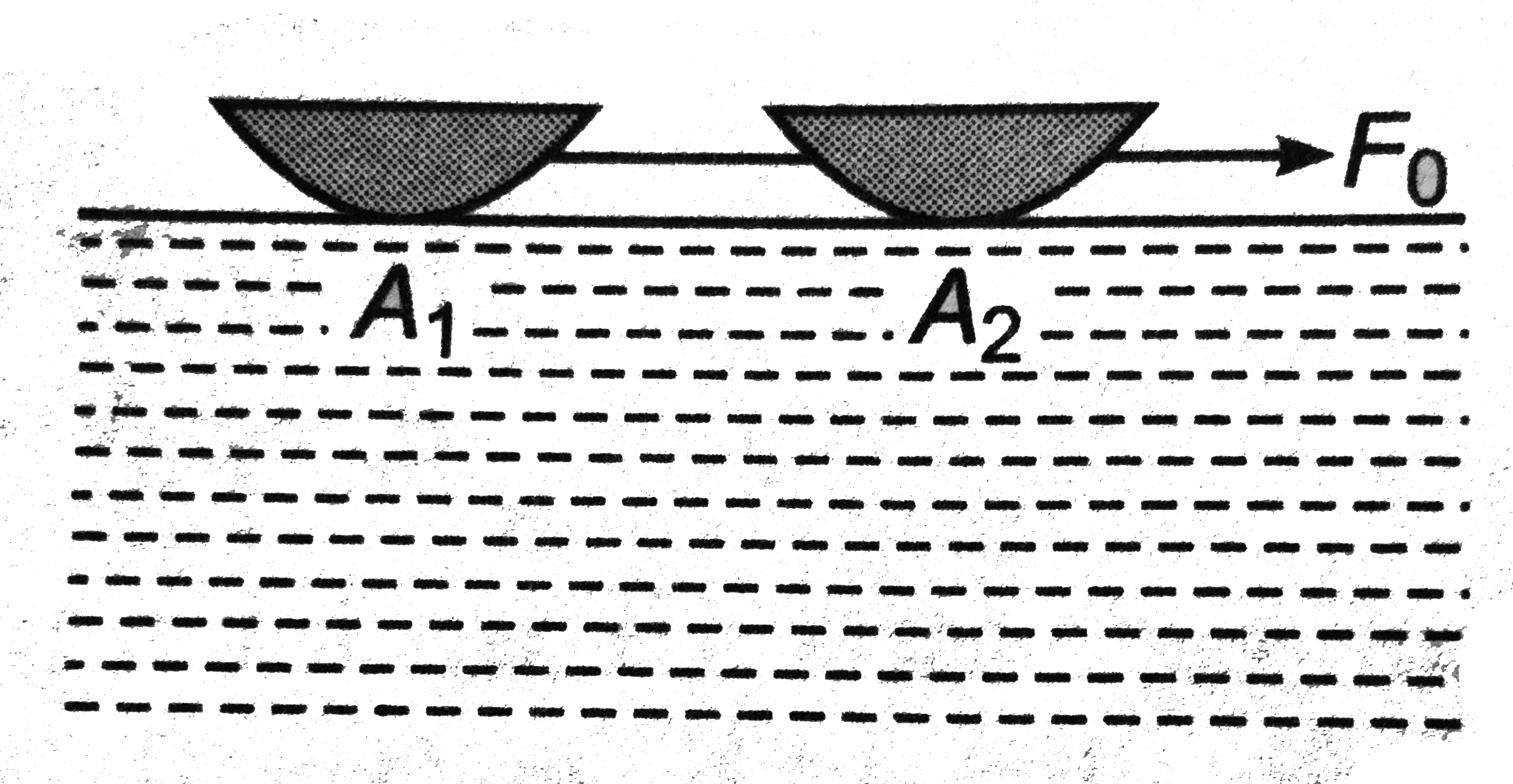
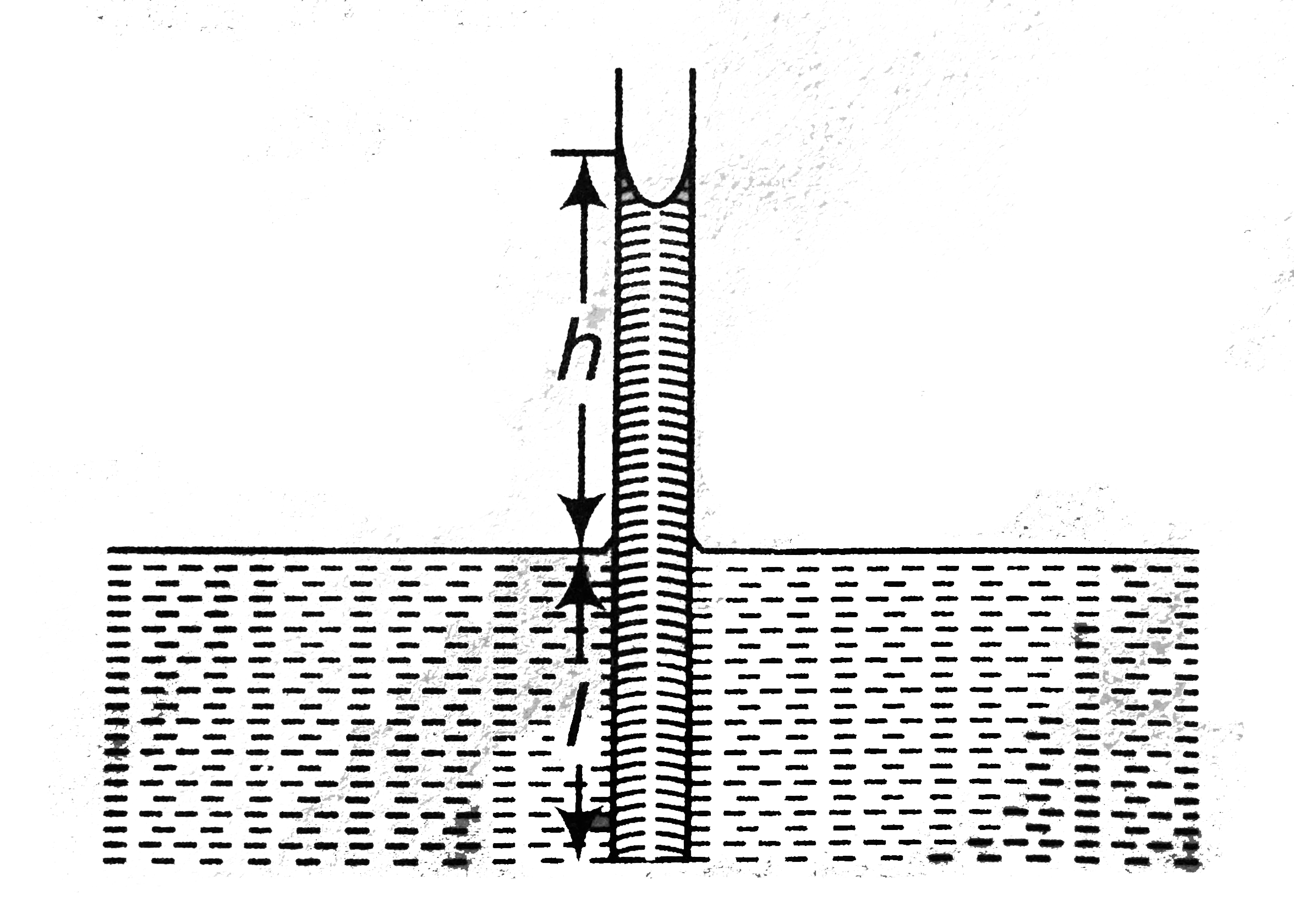 .
.